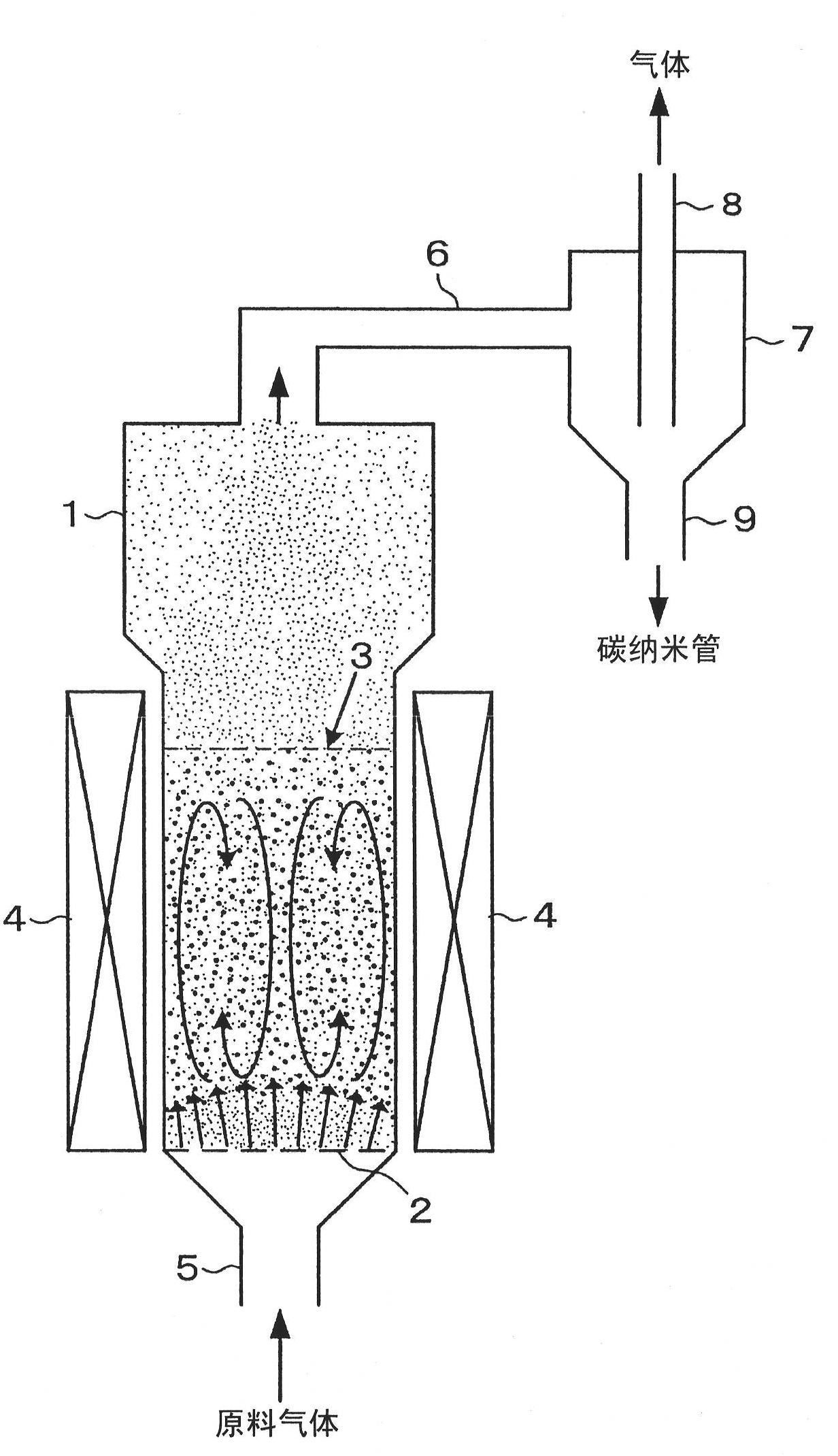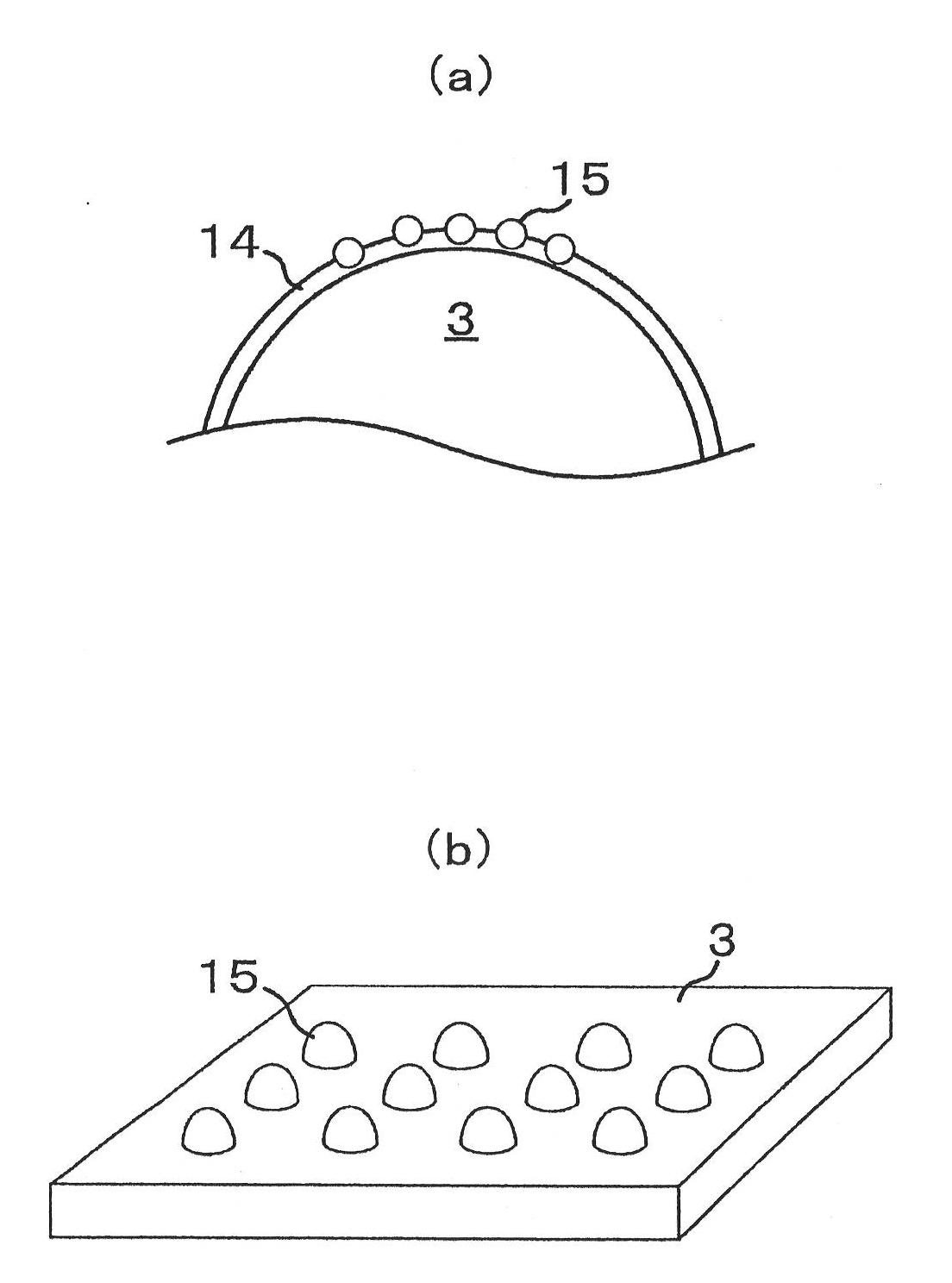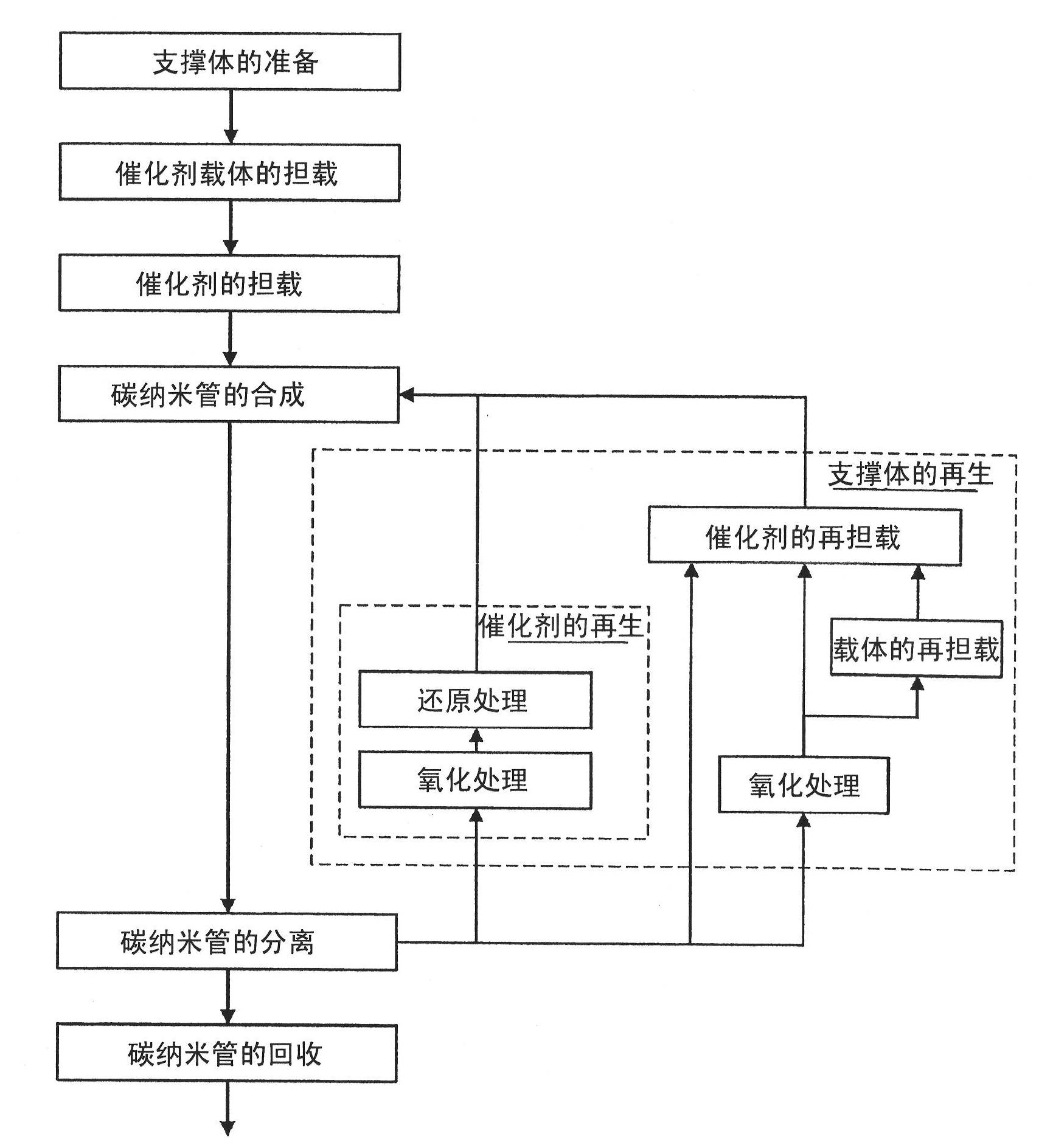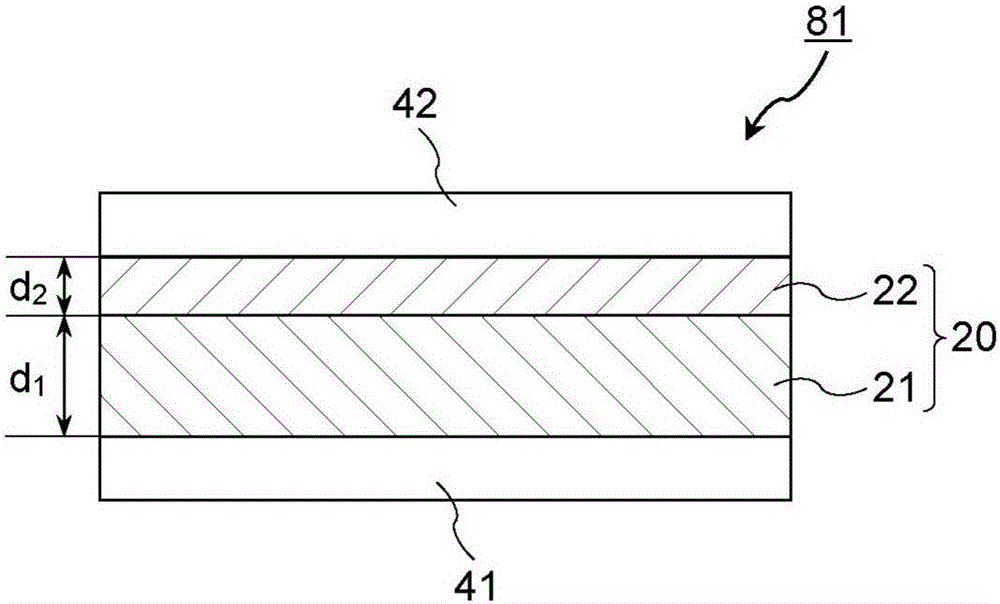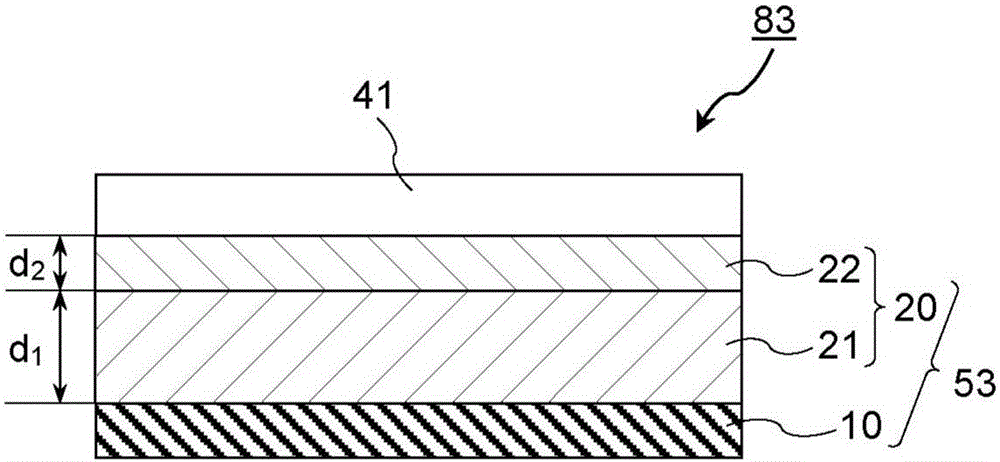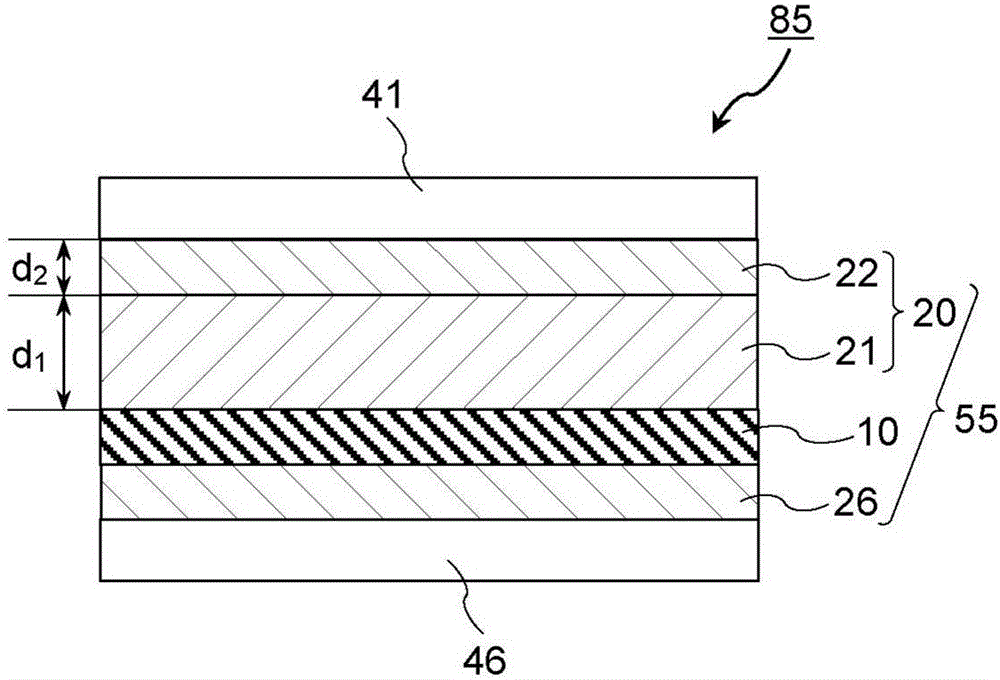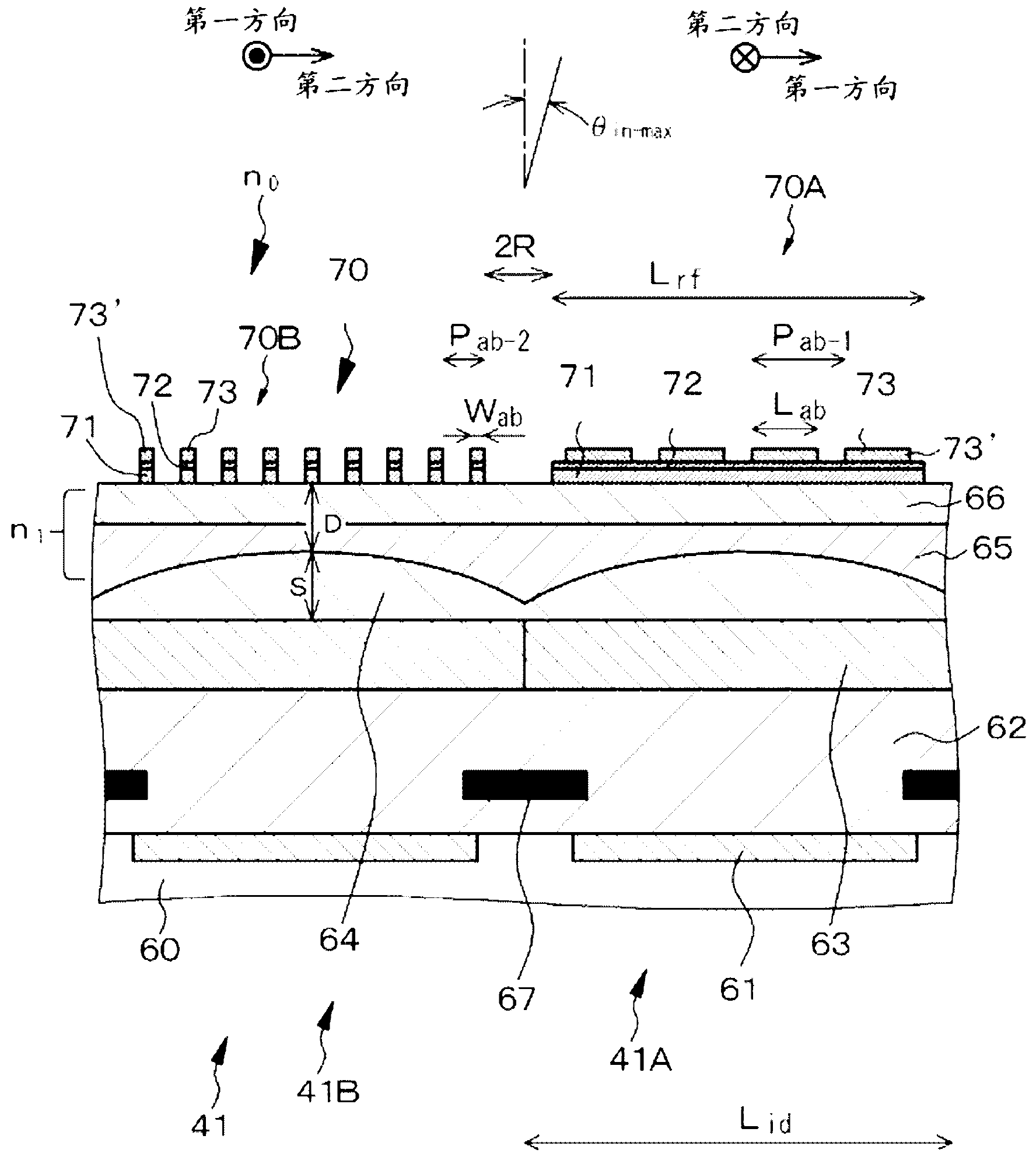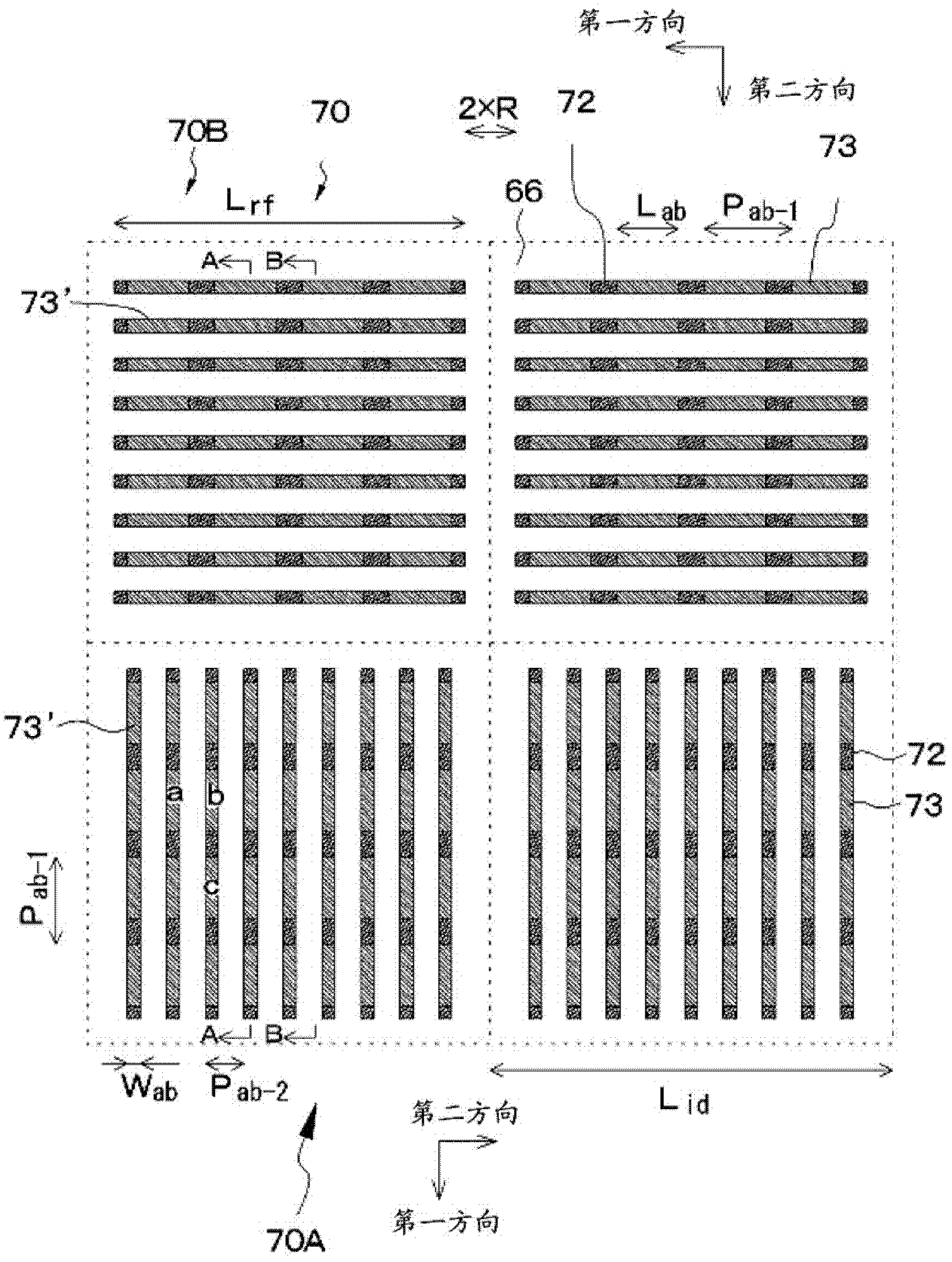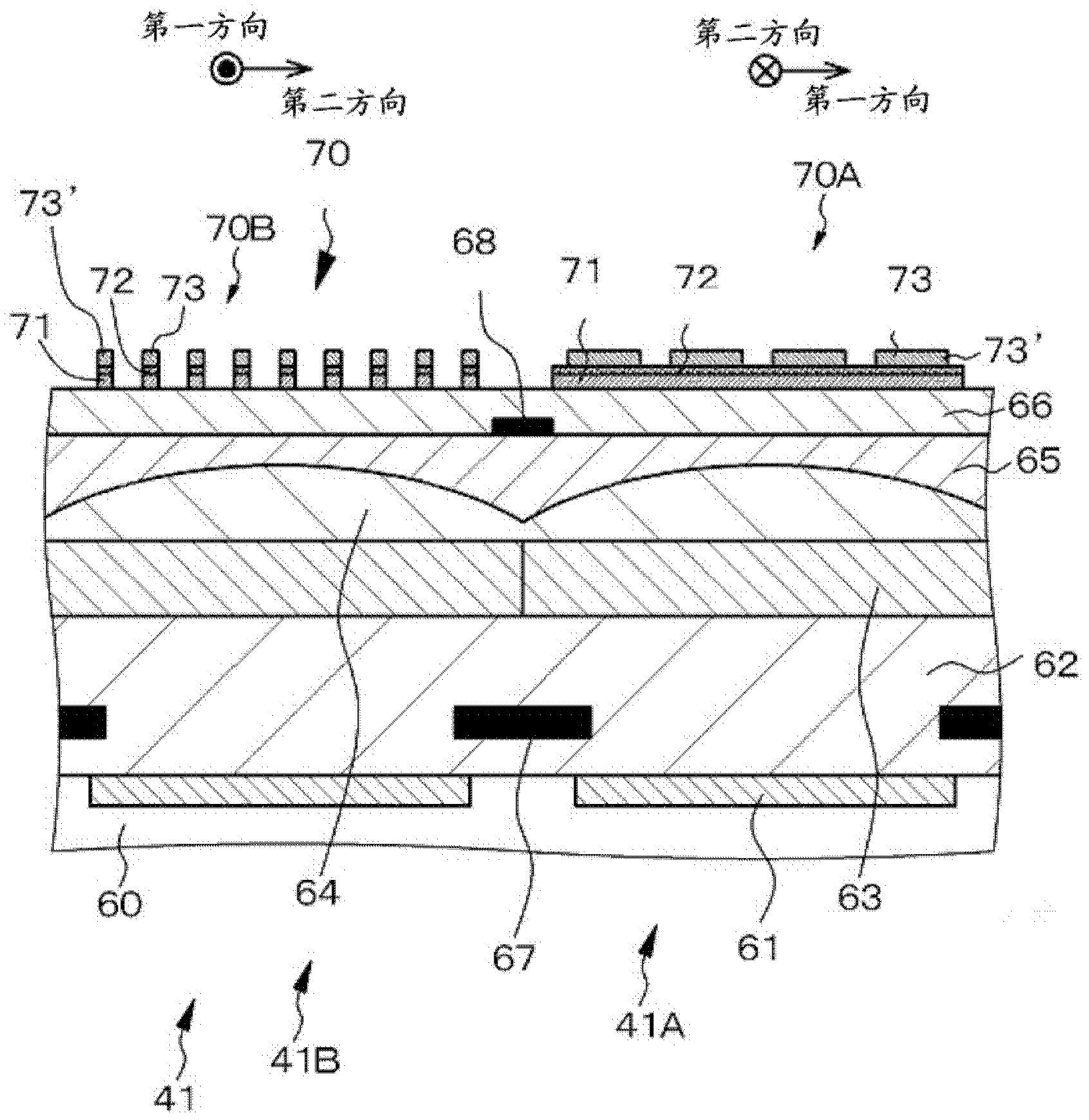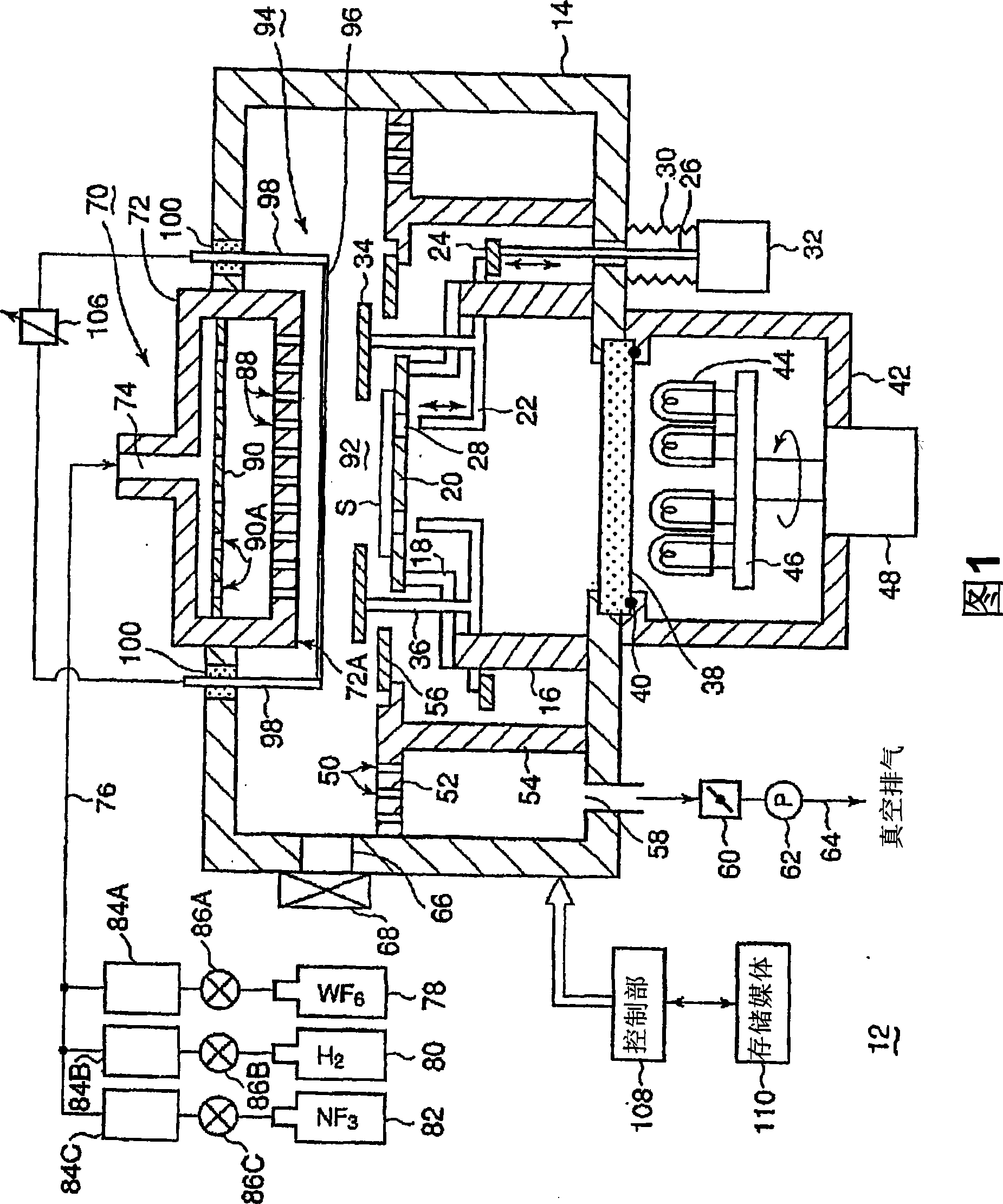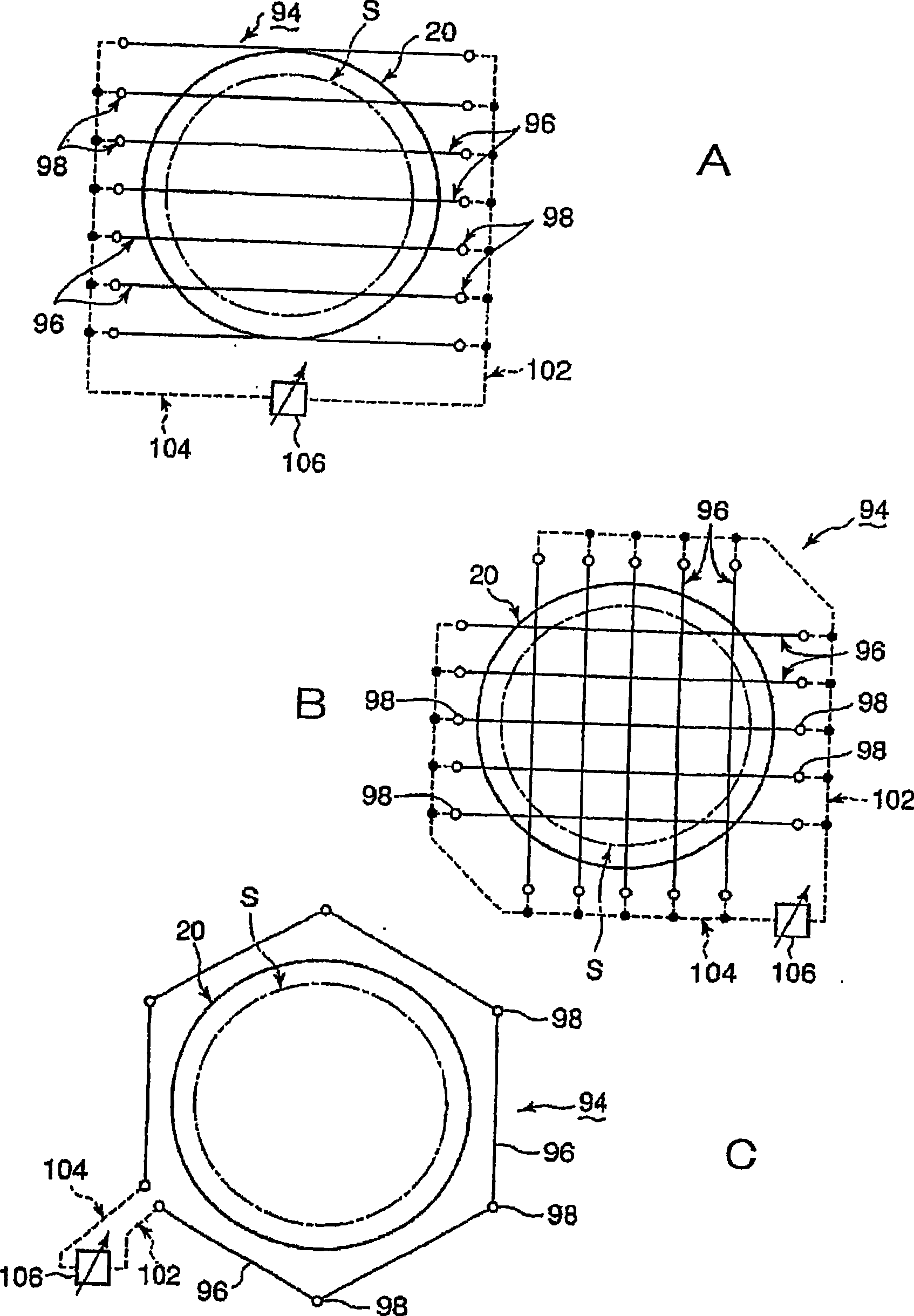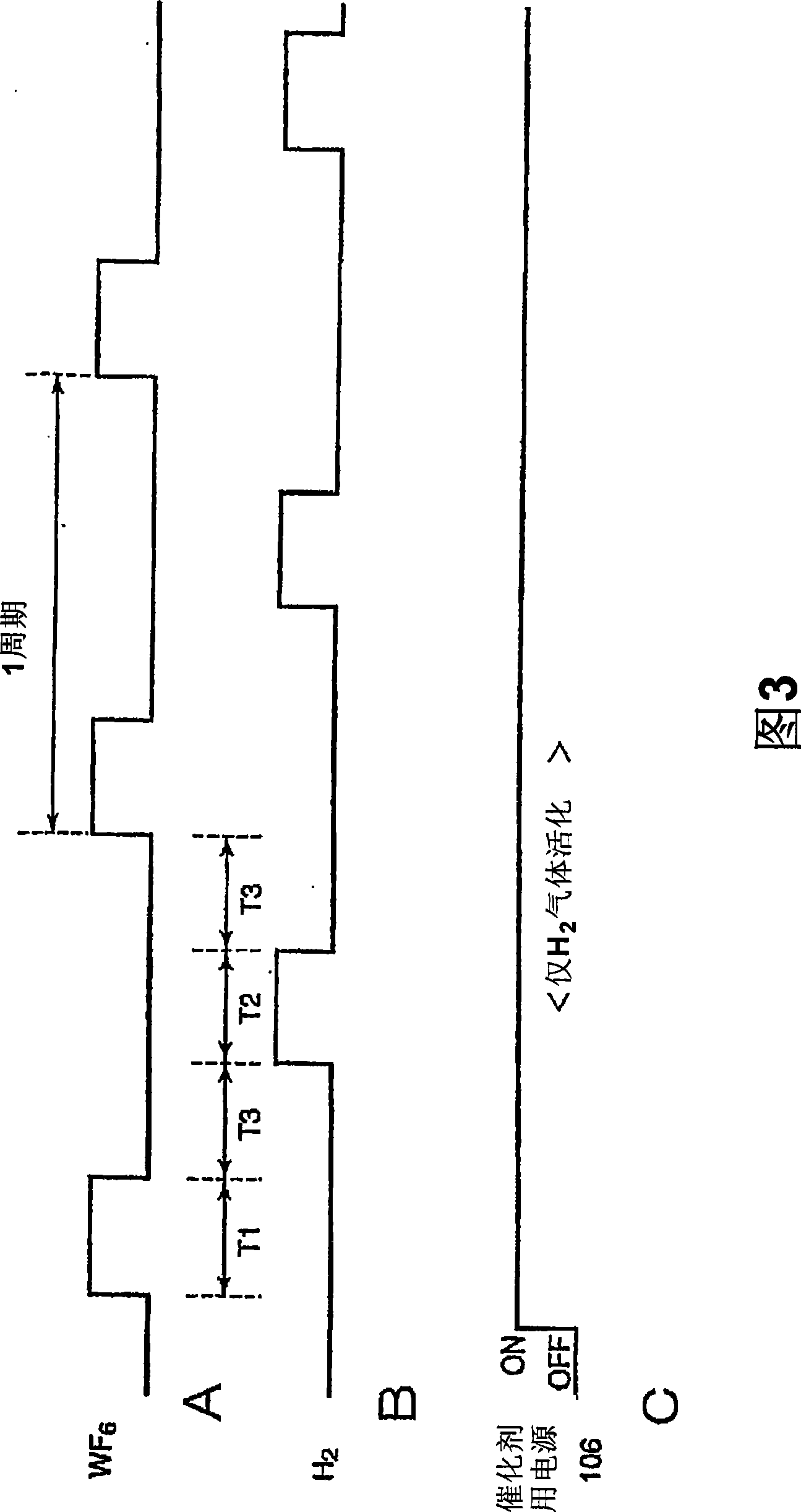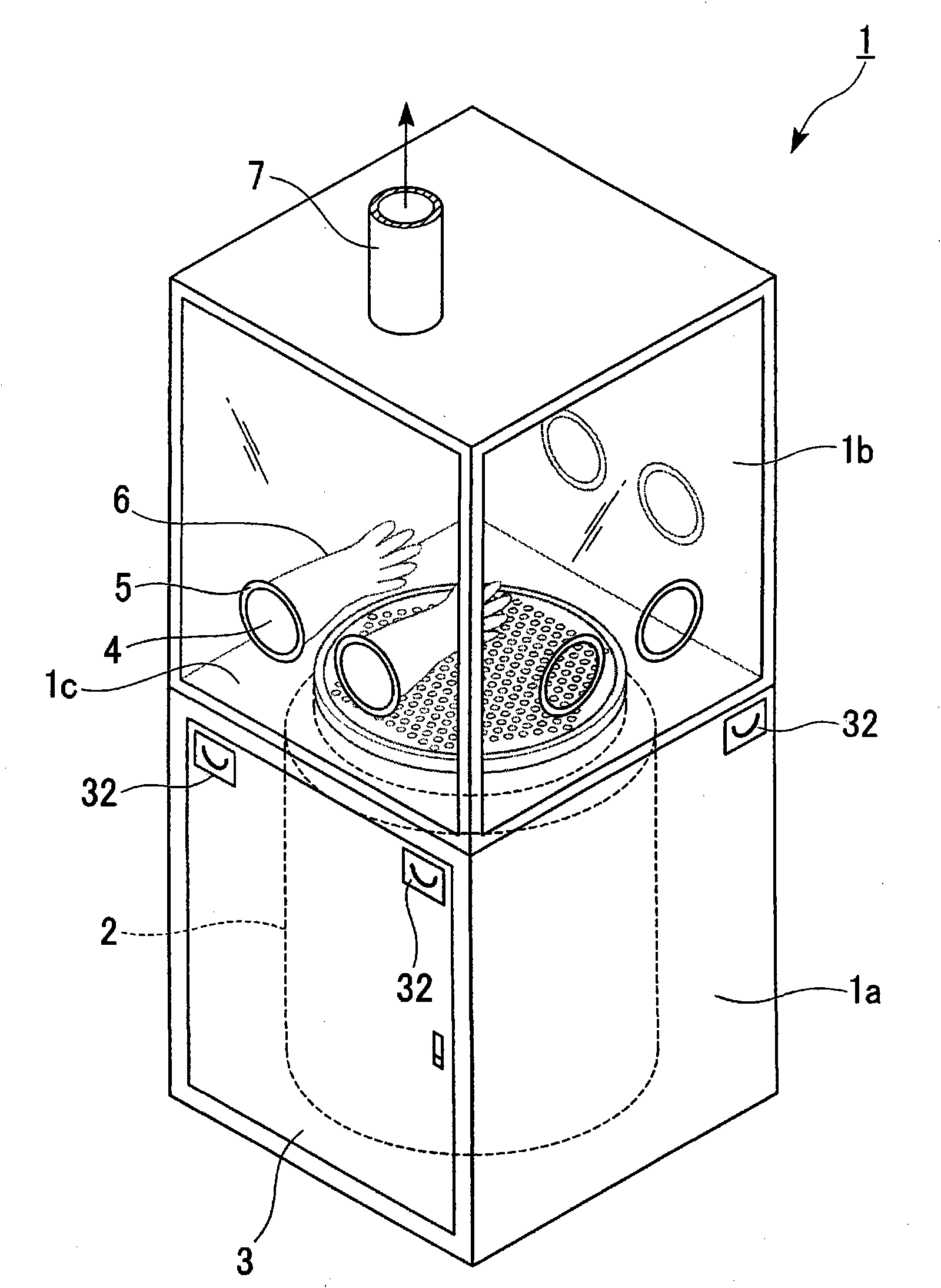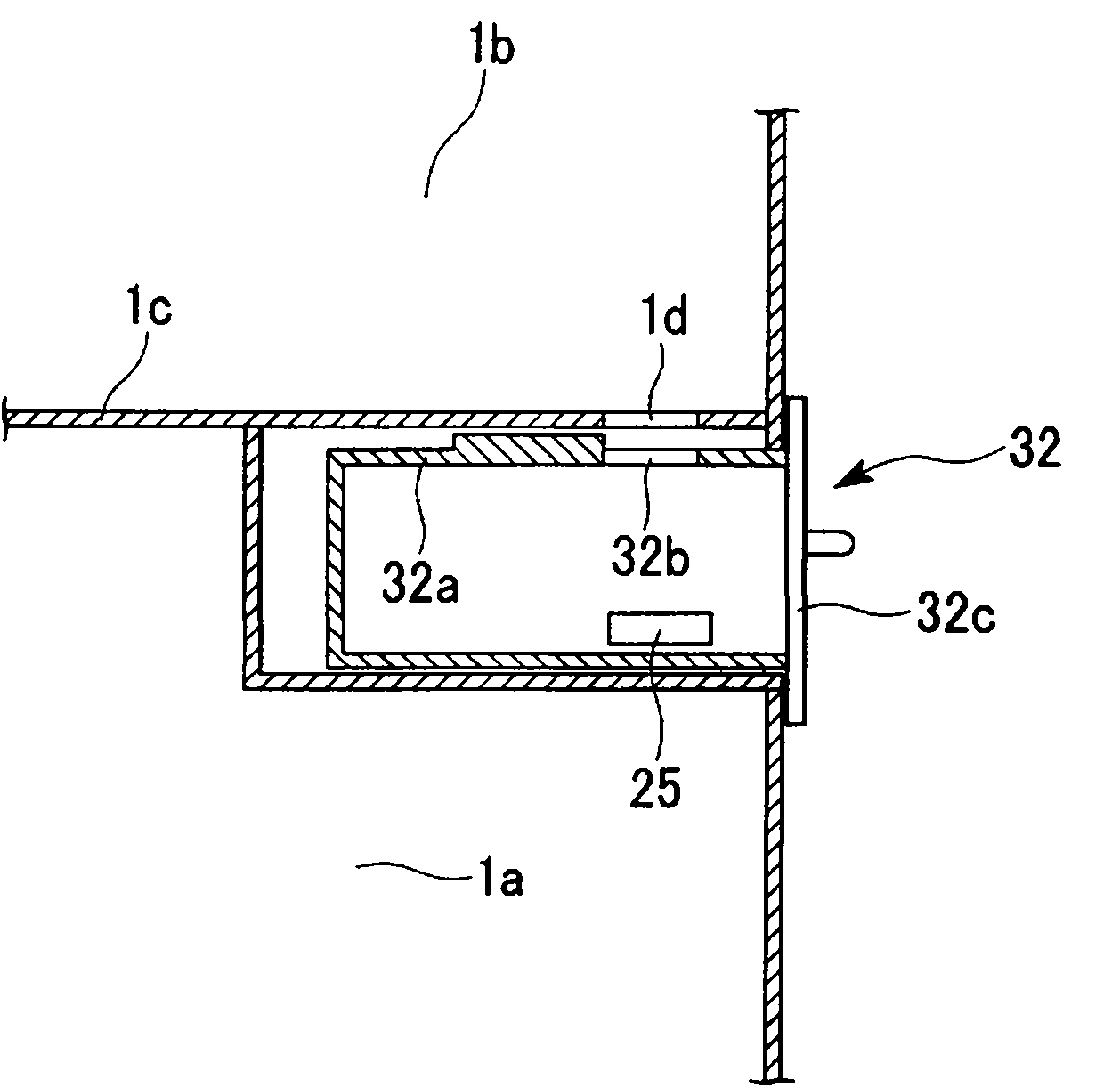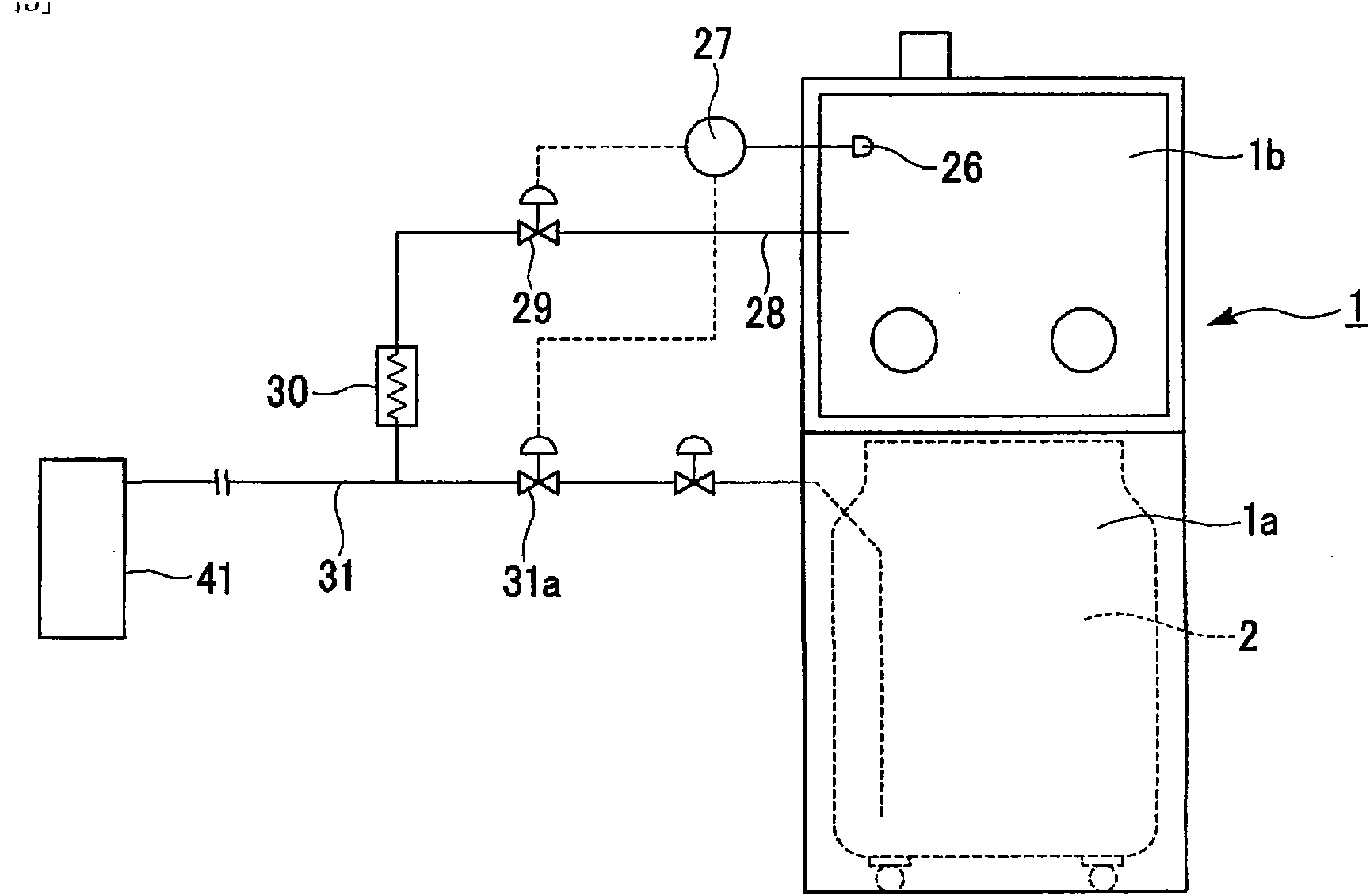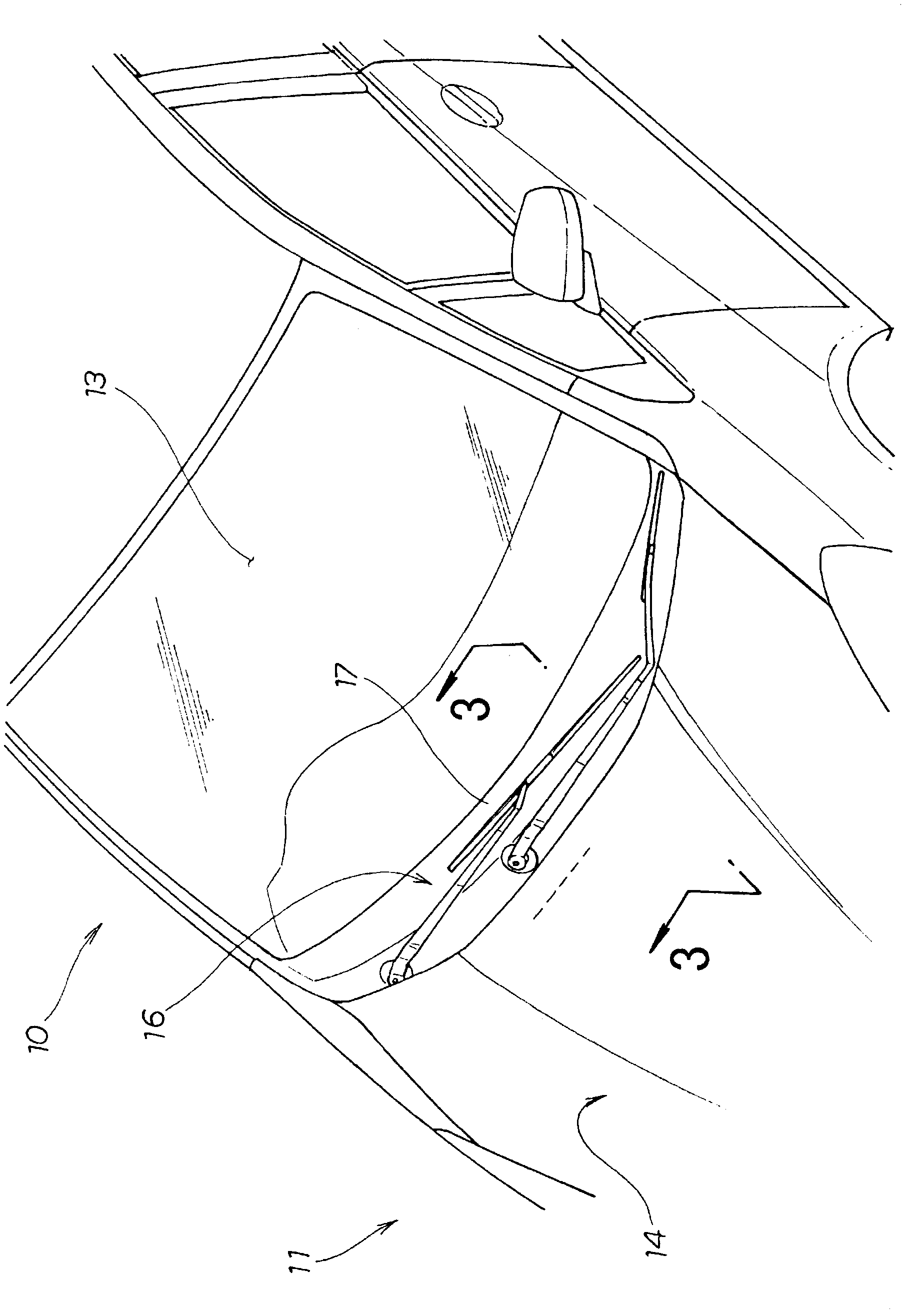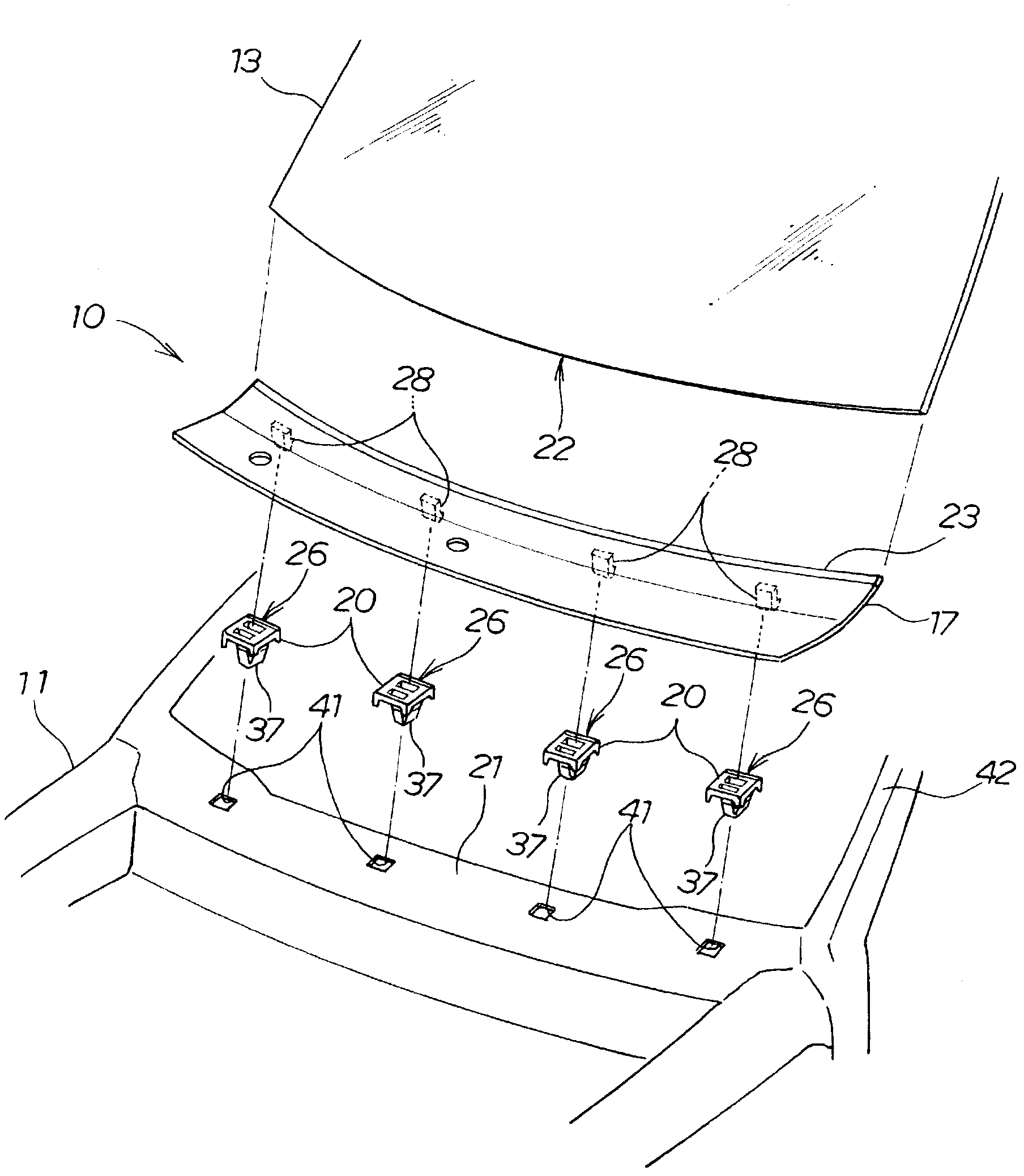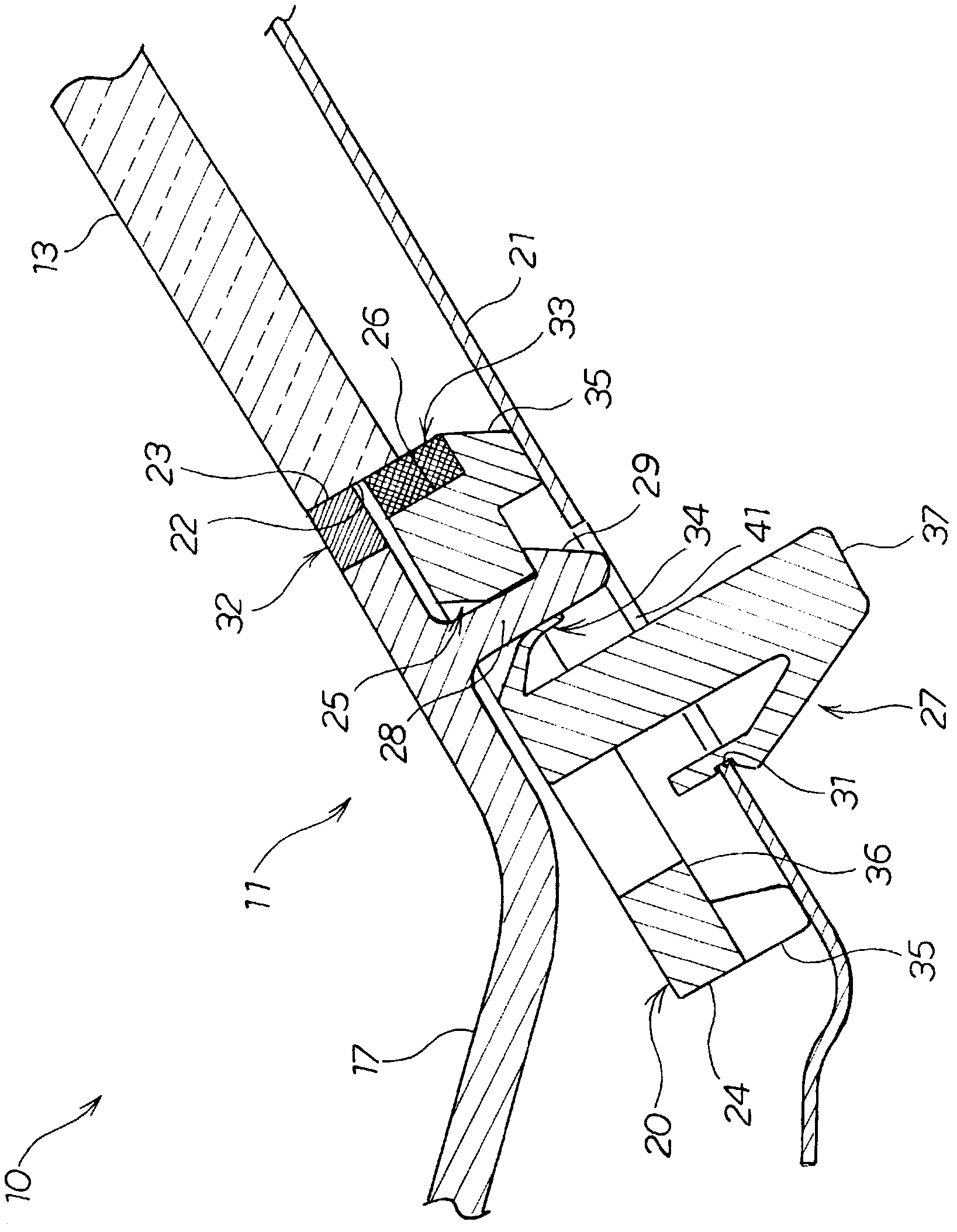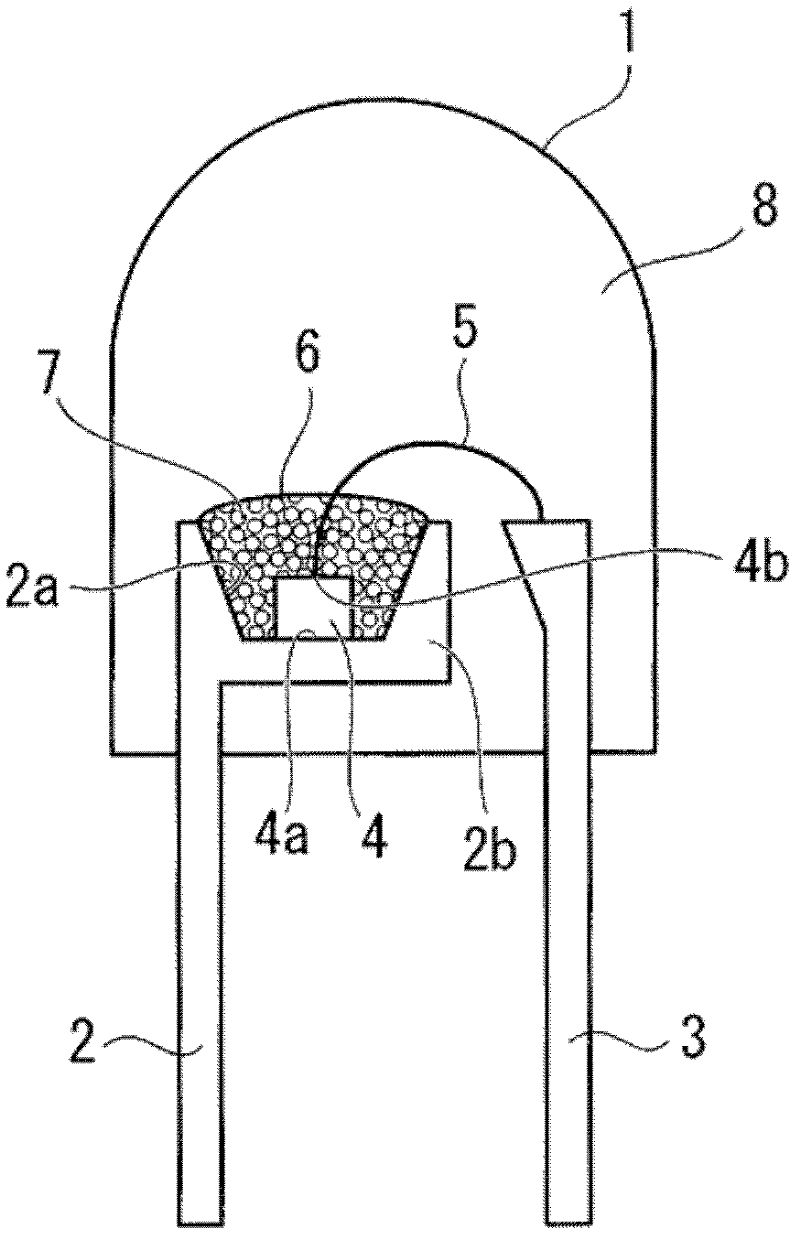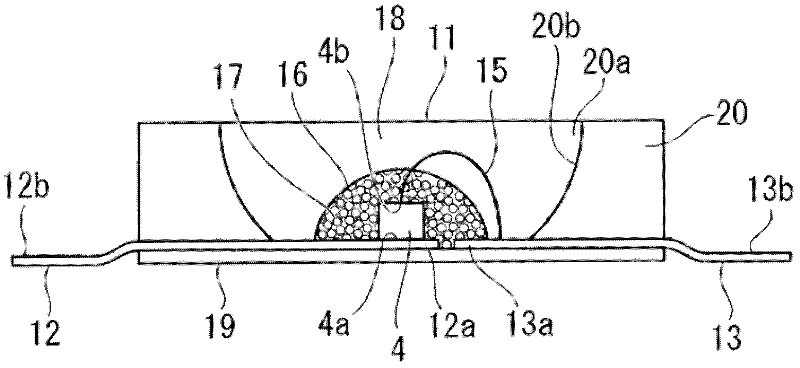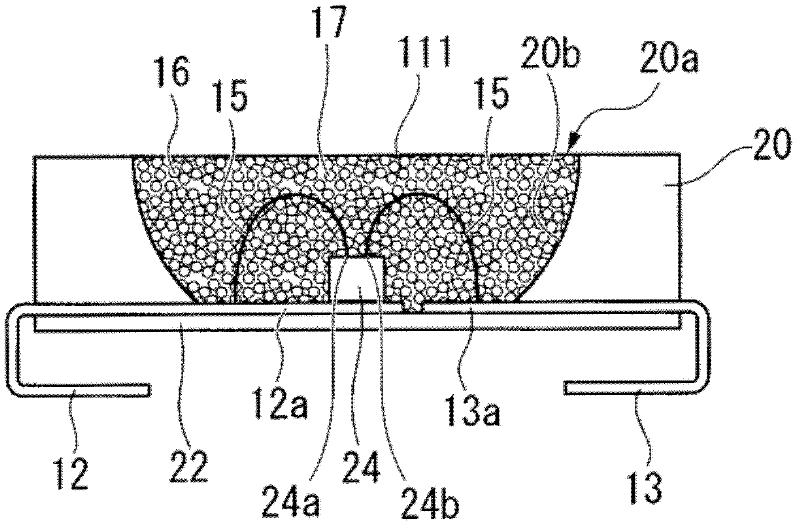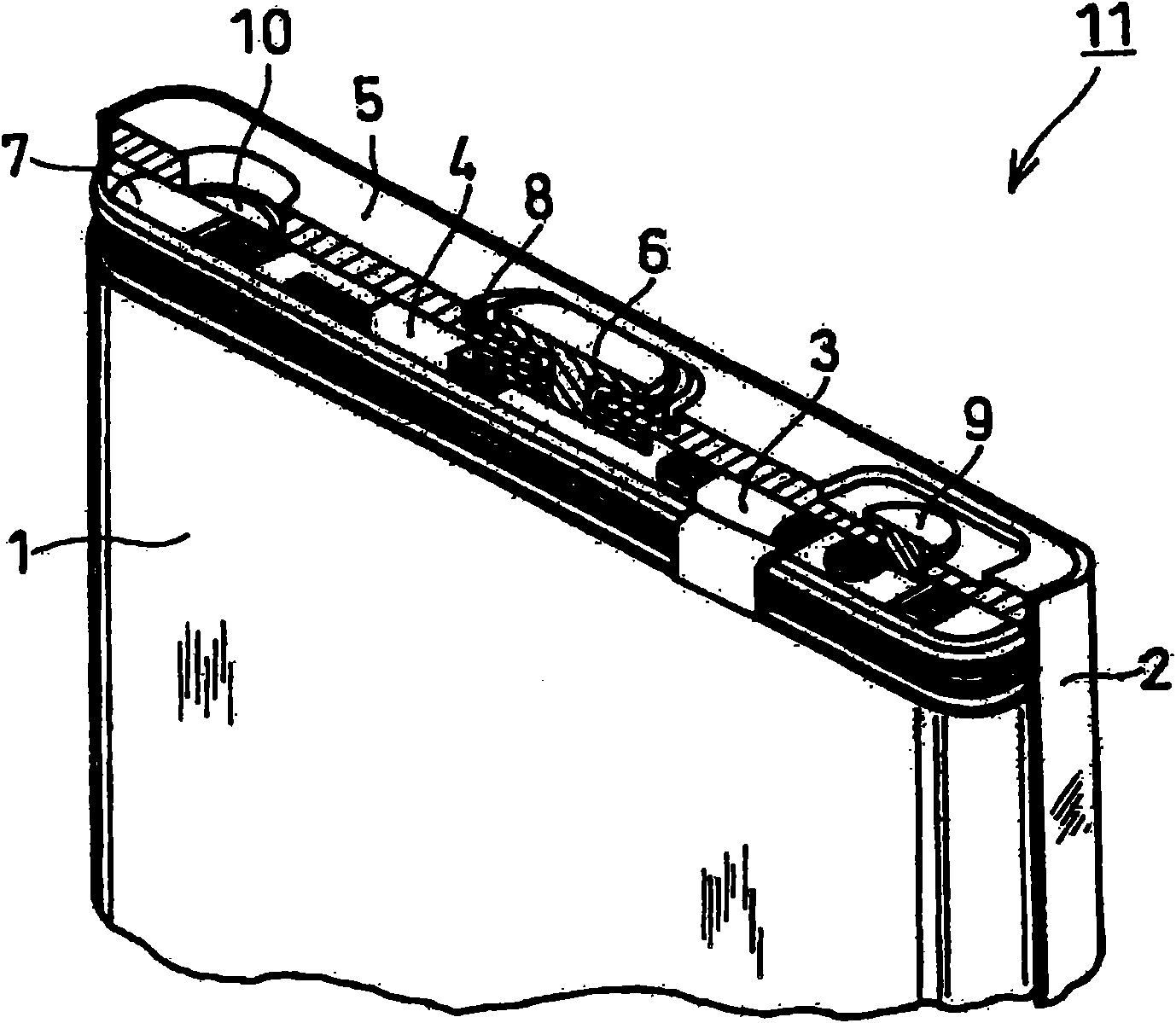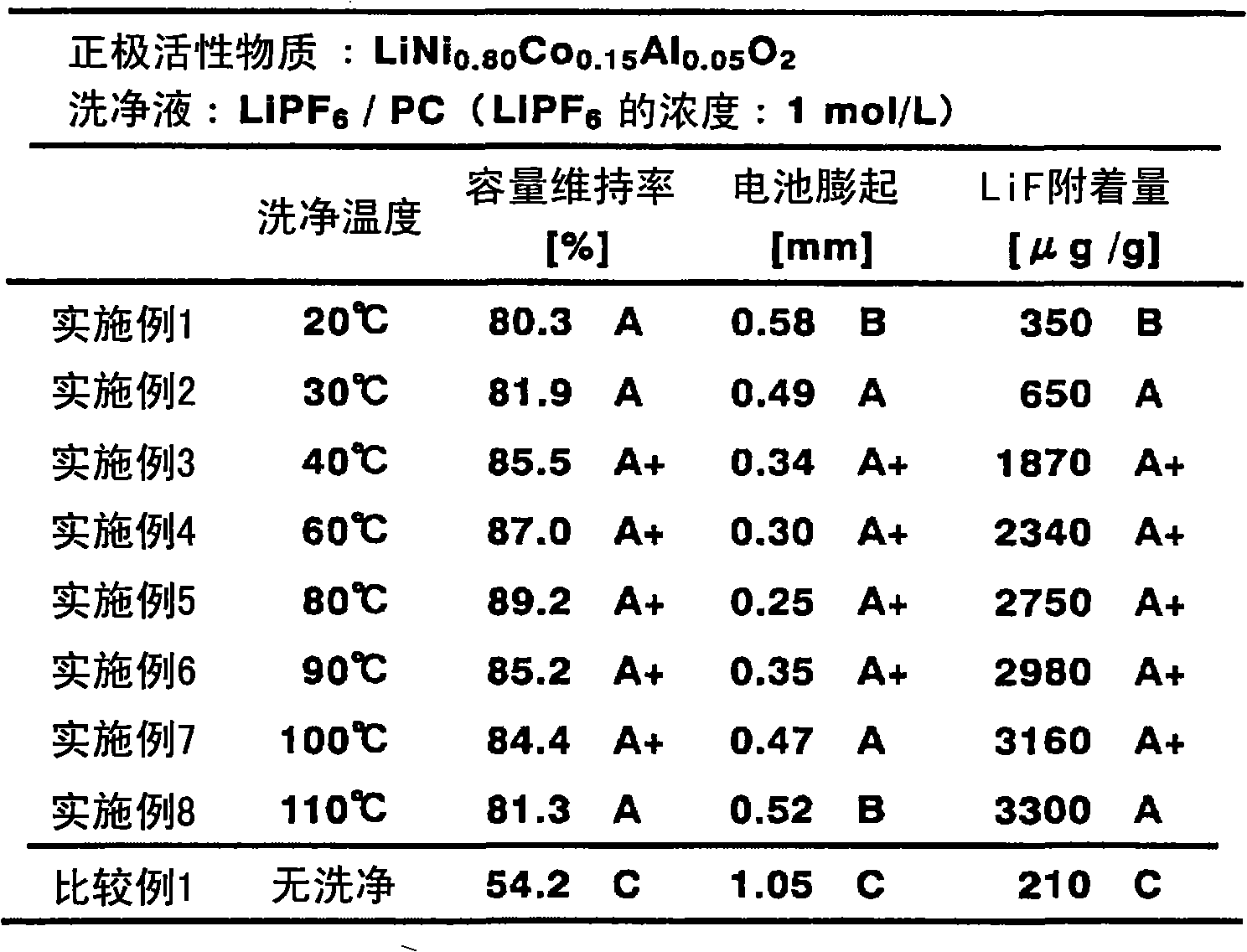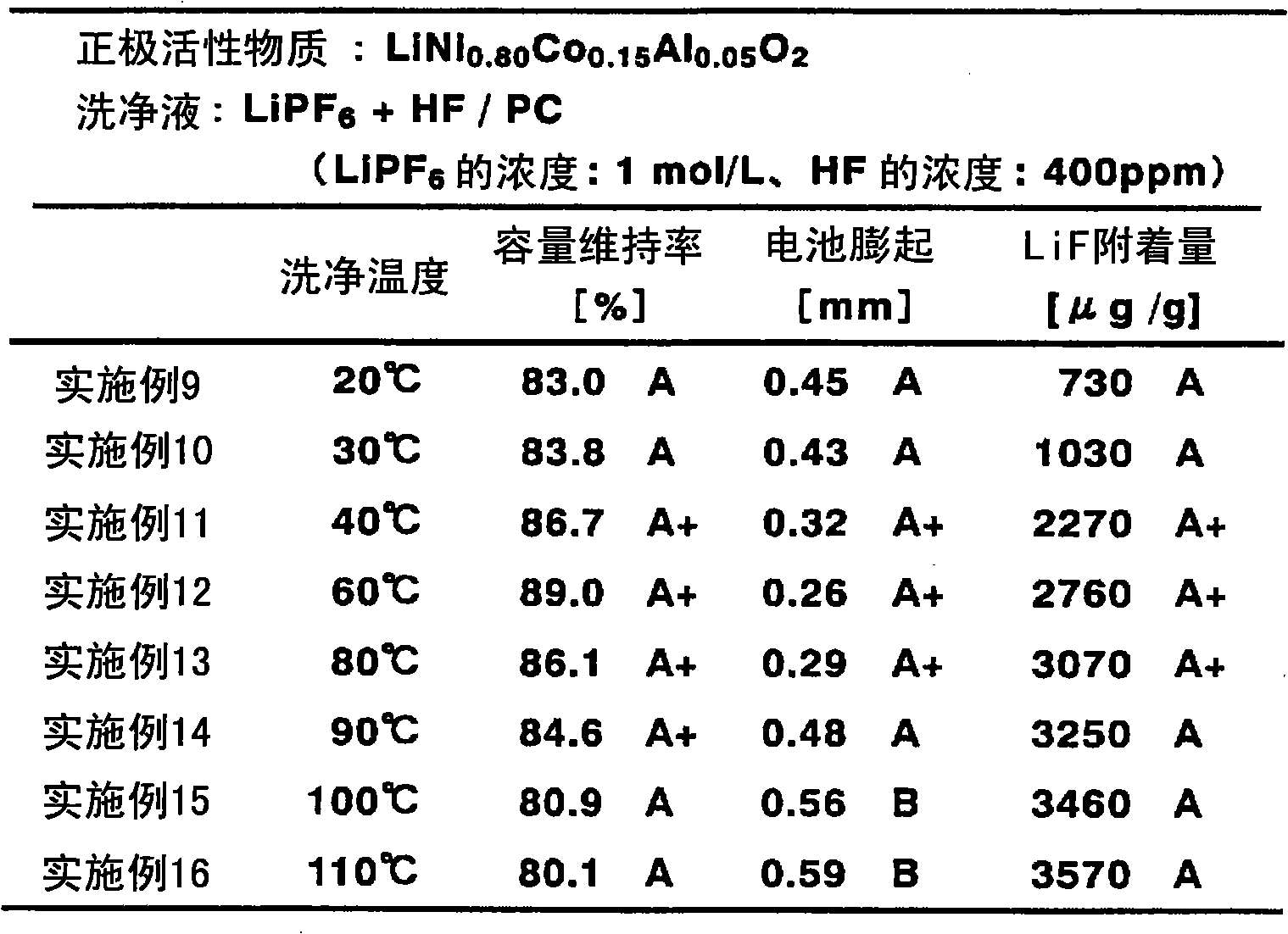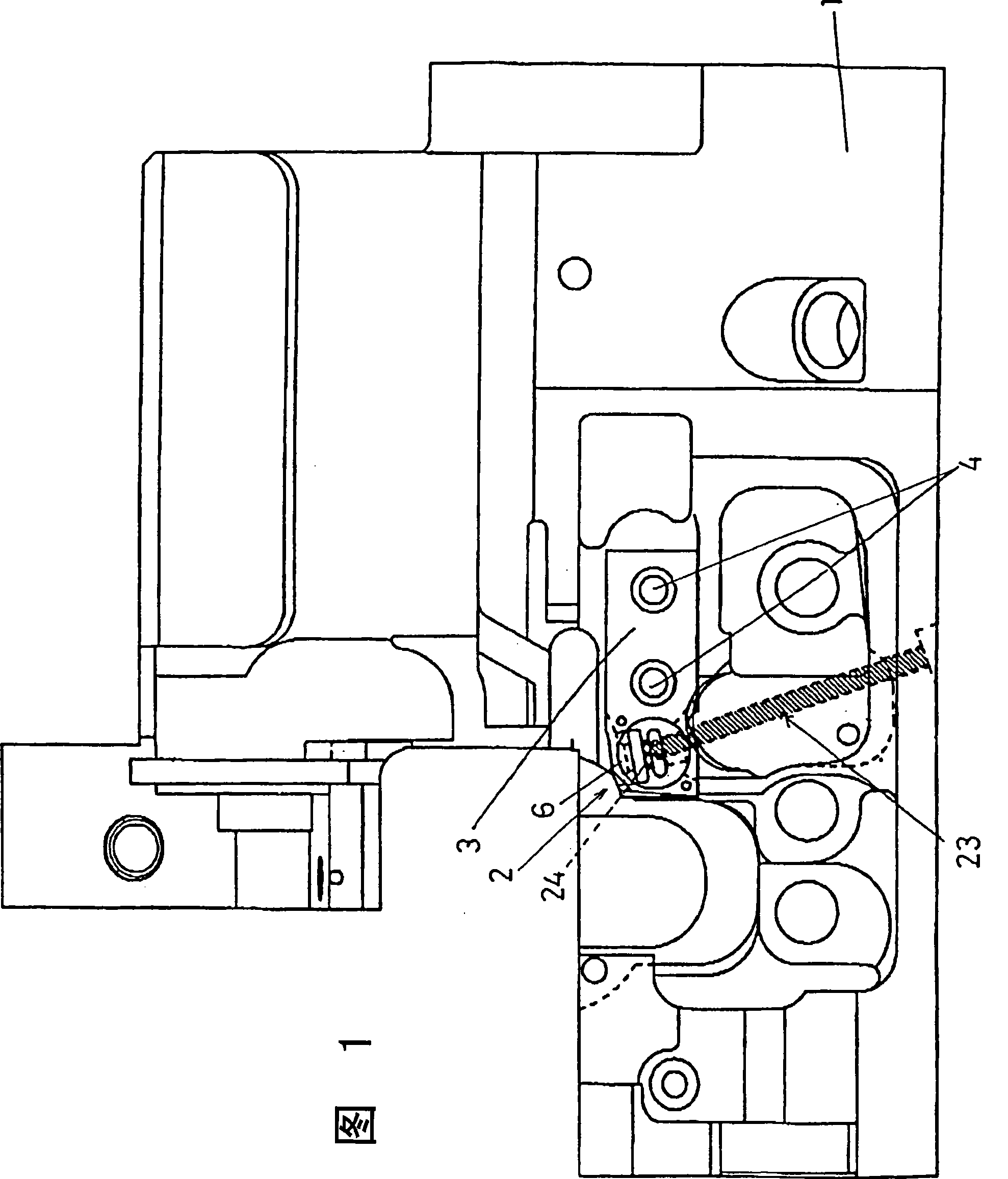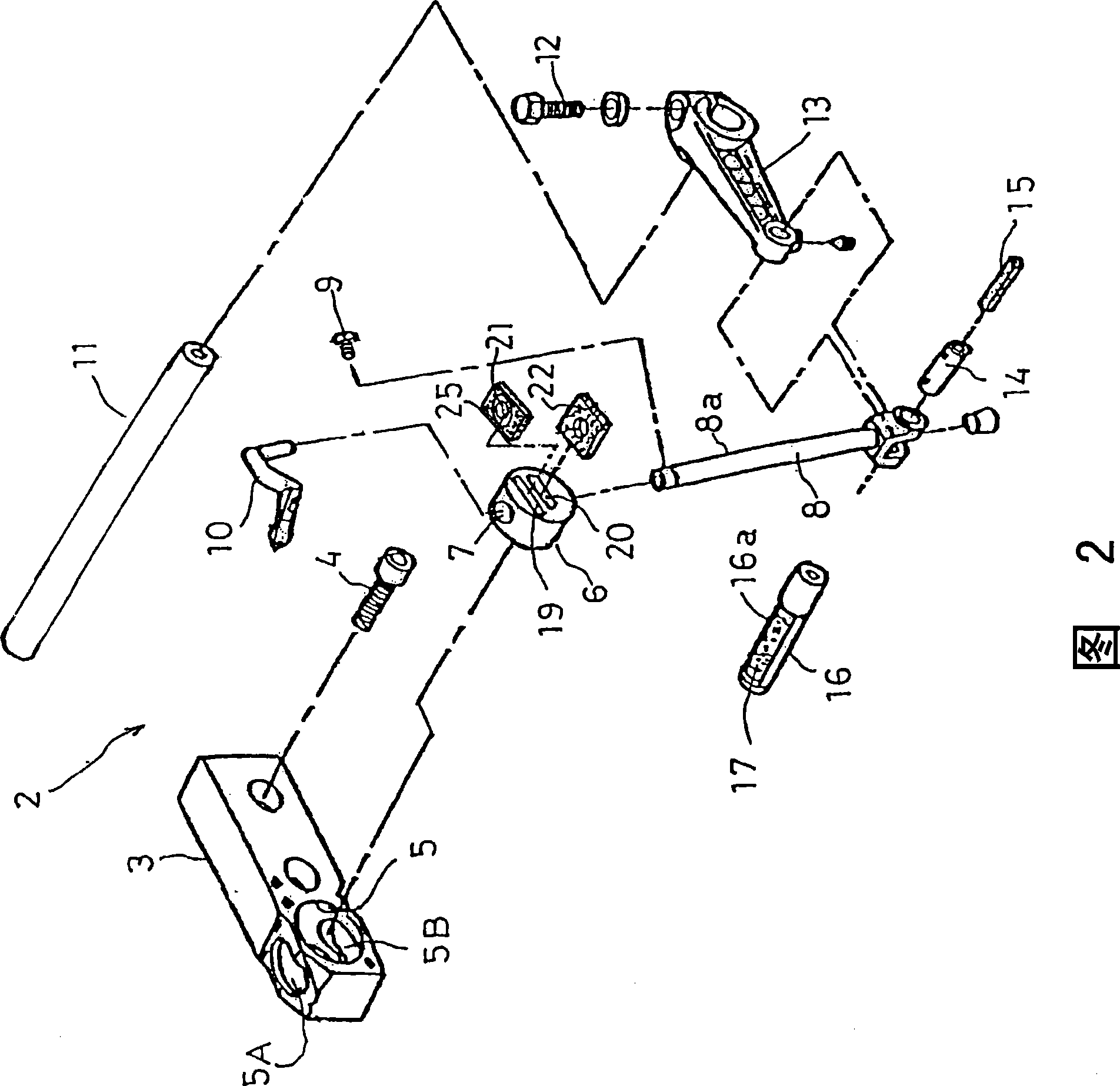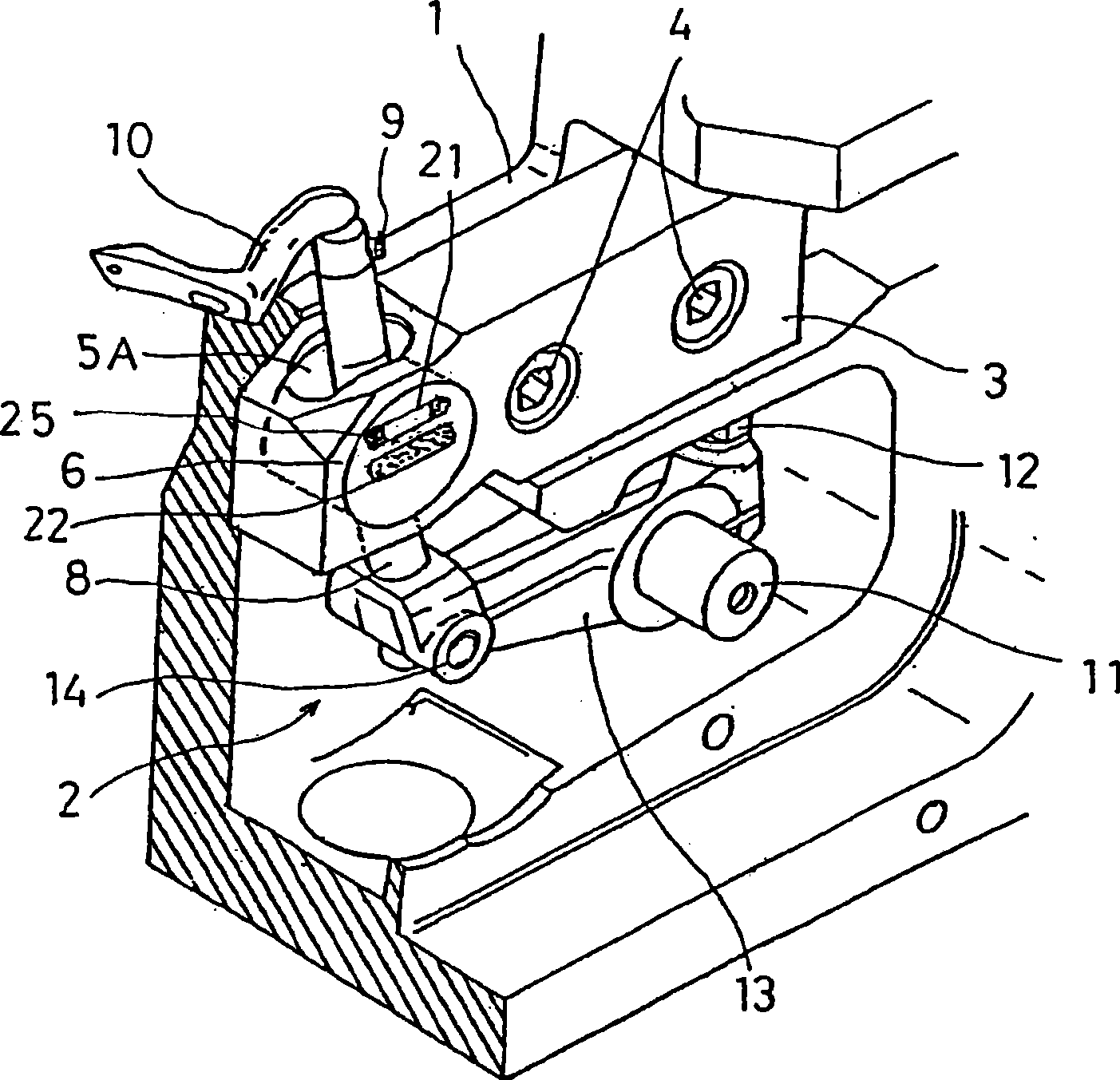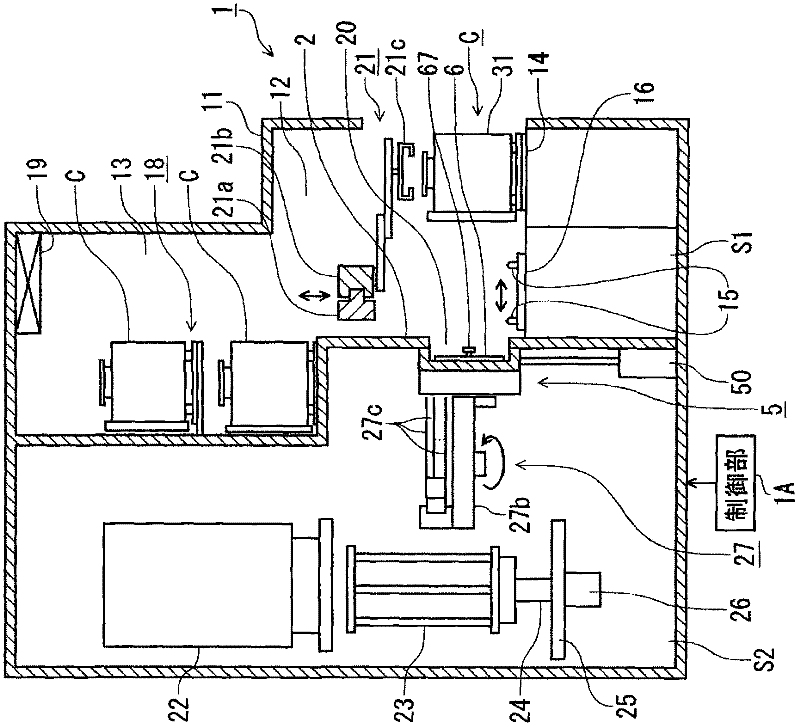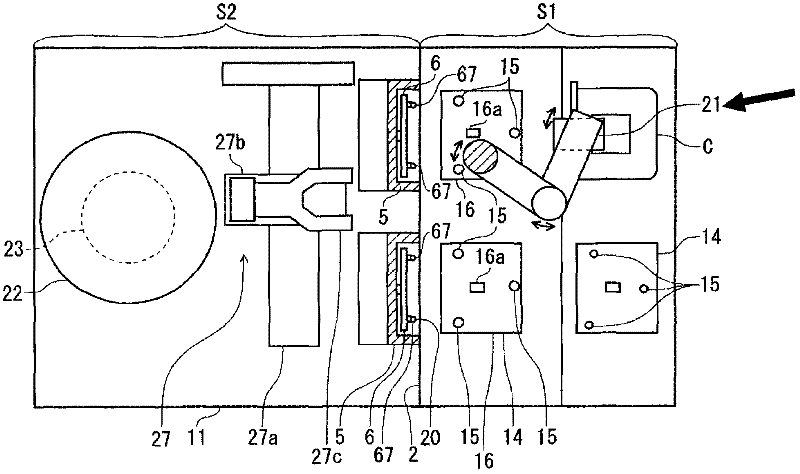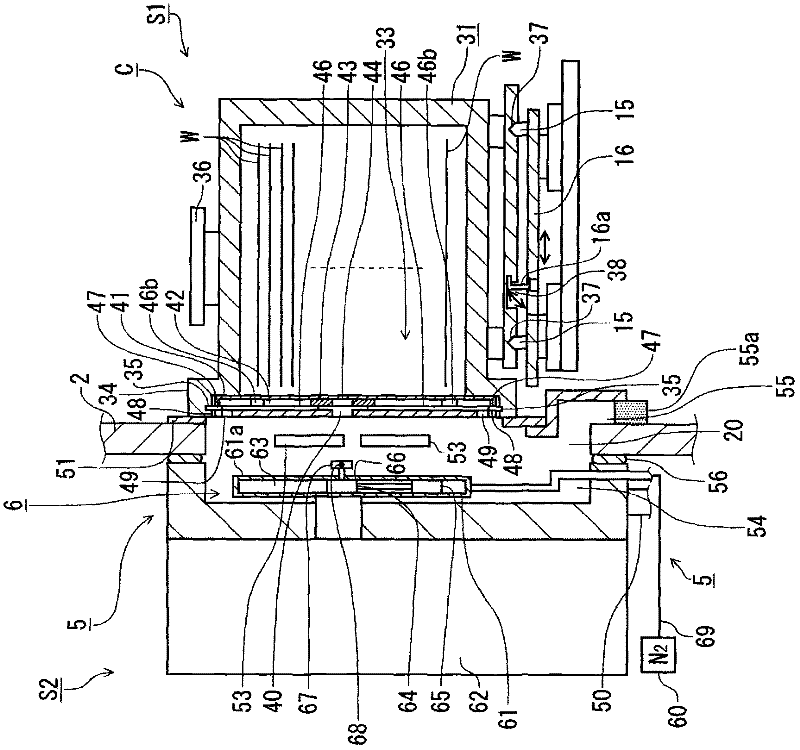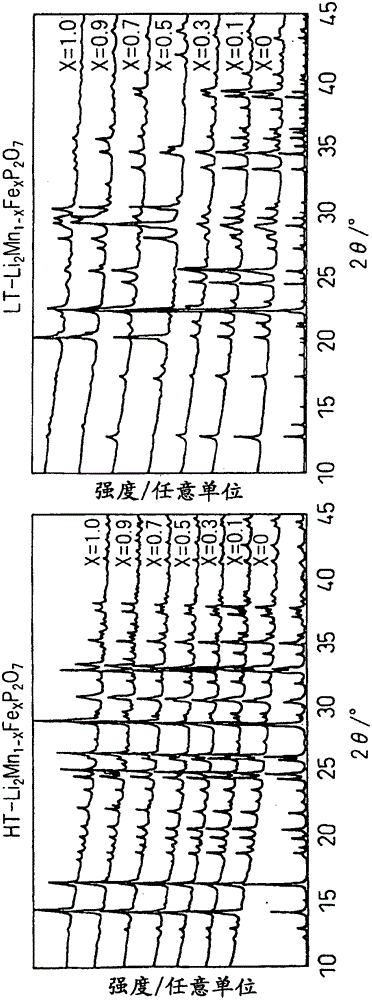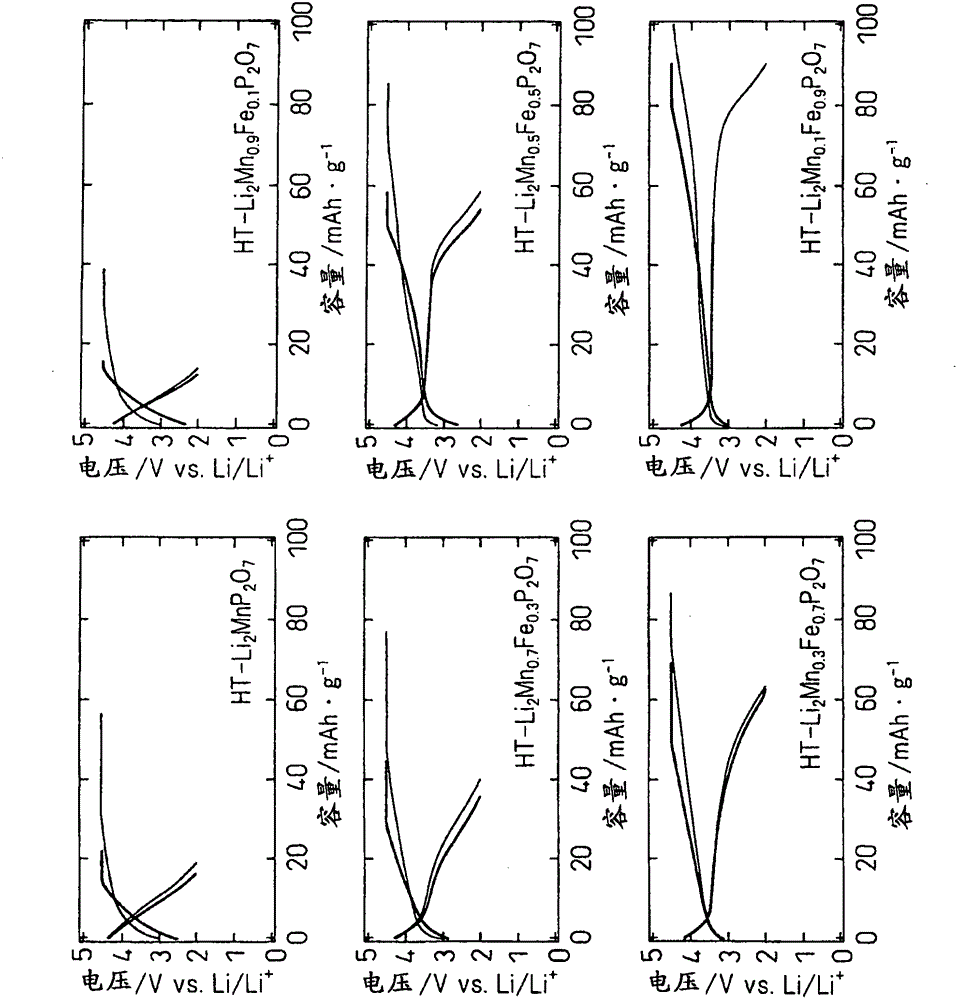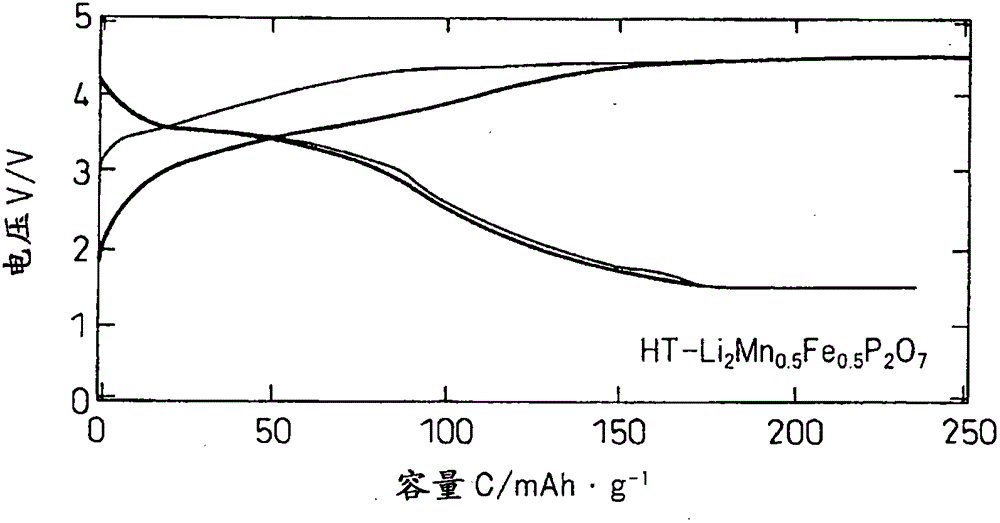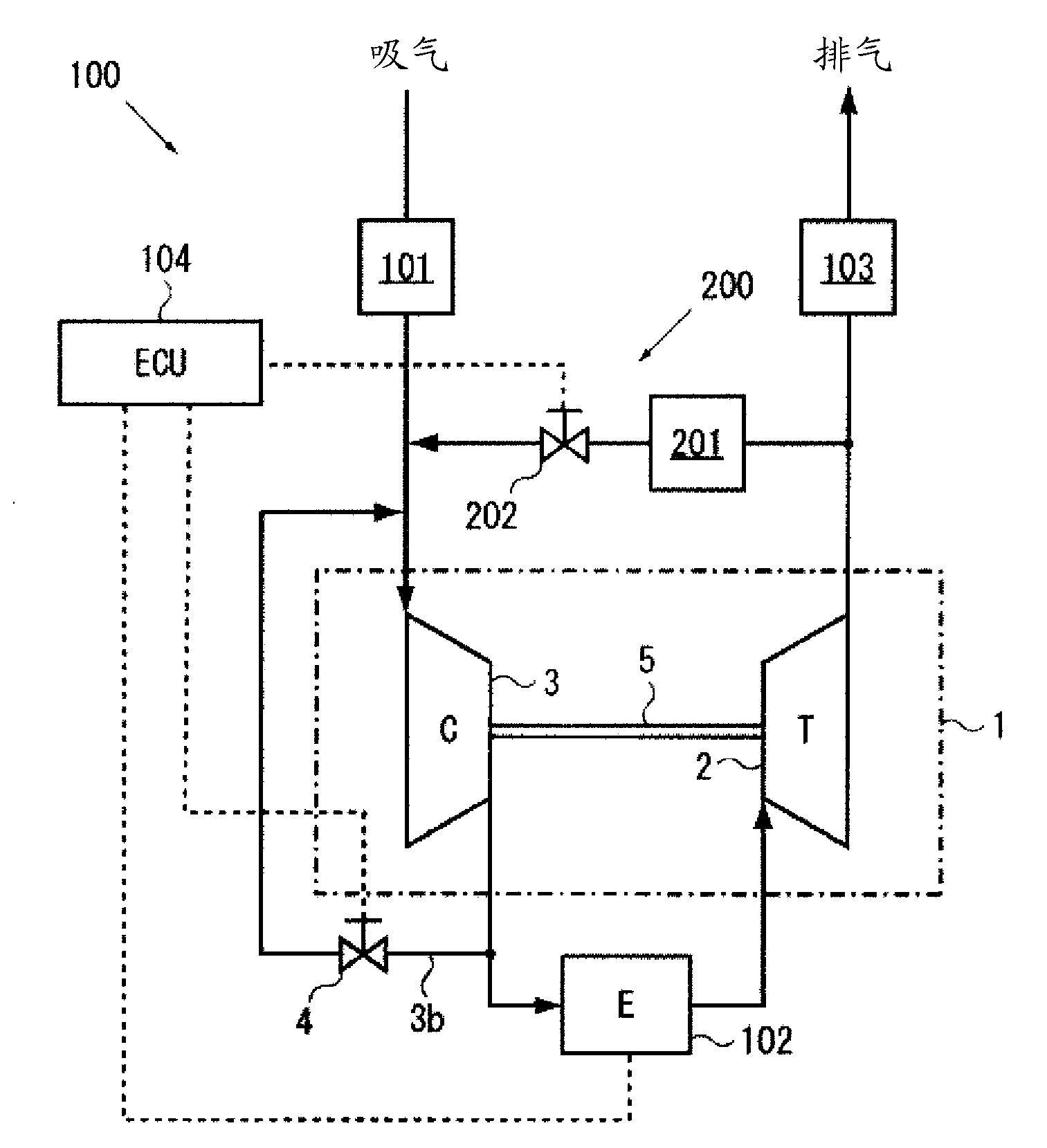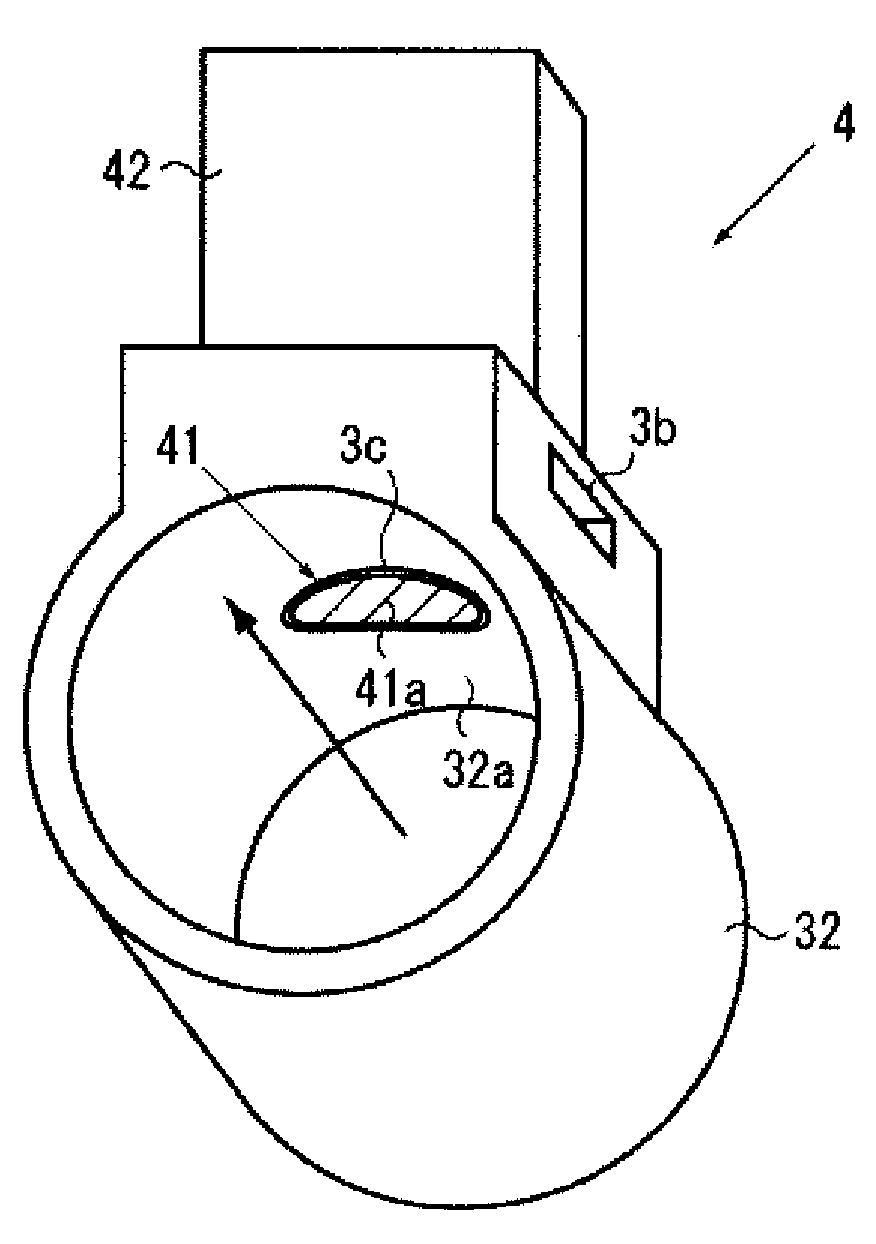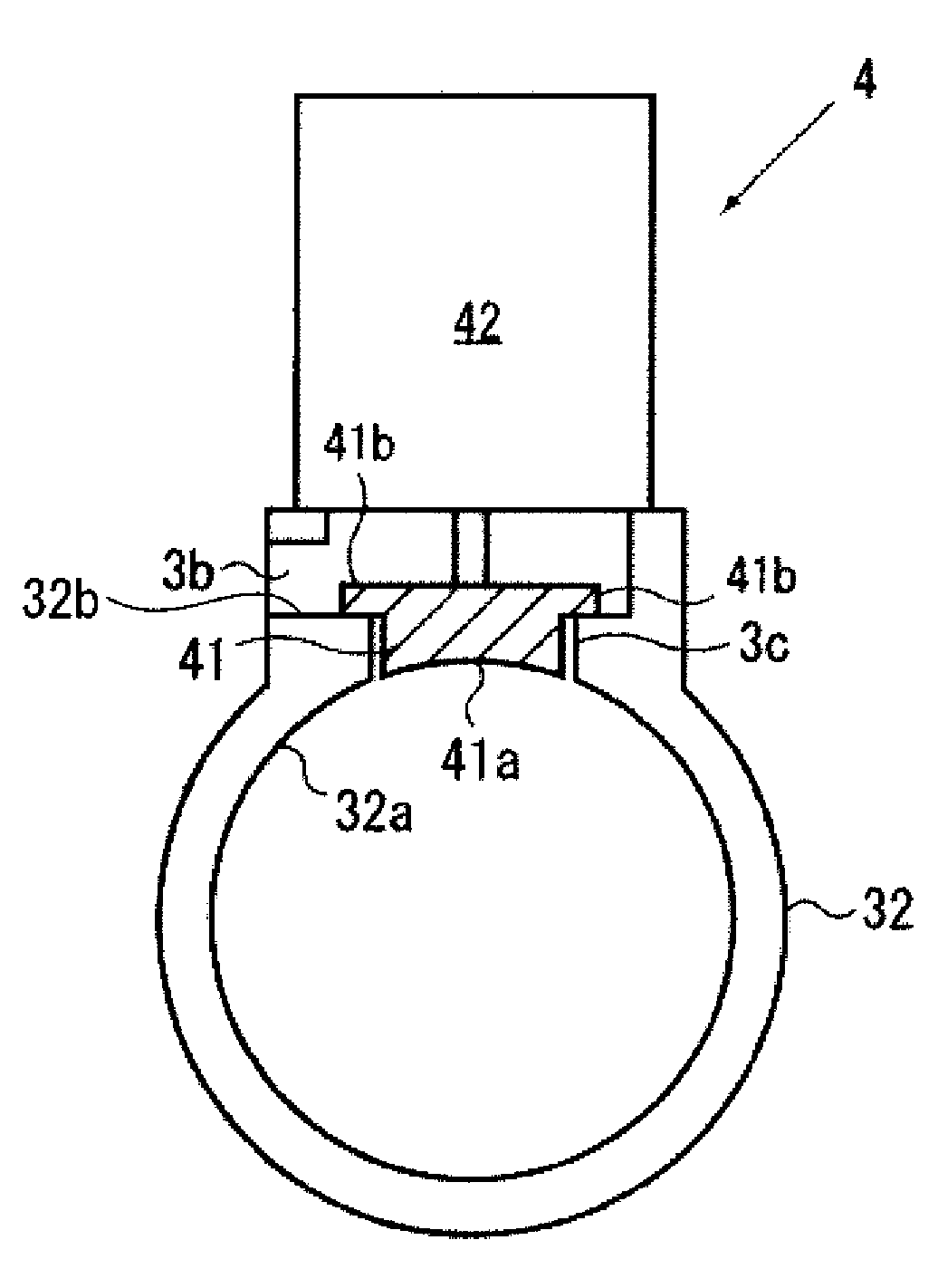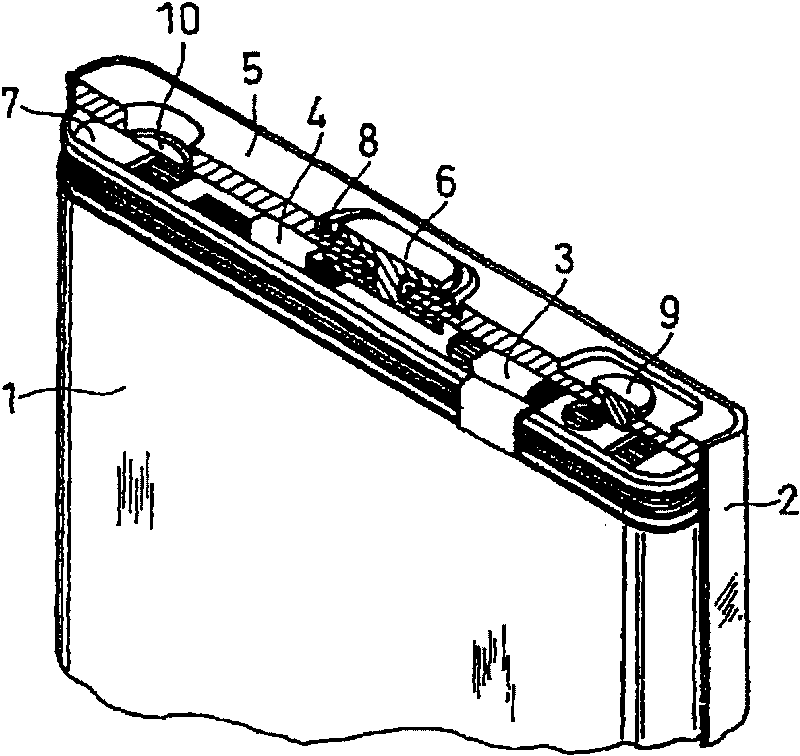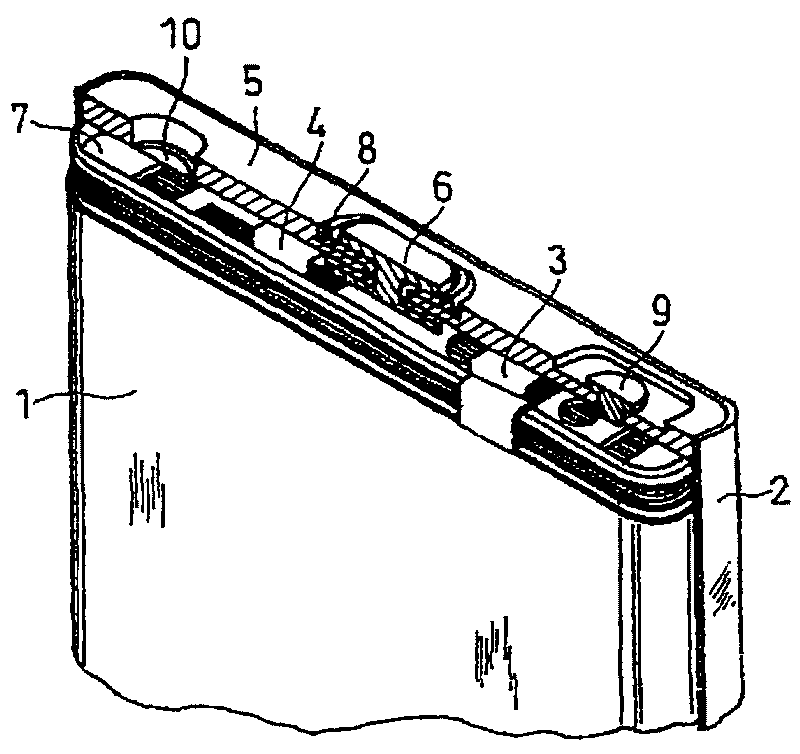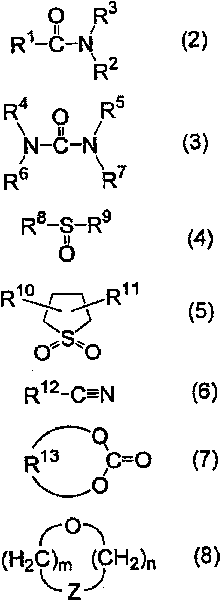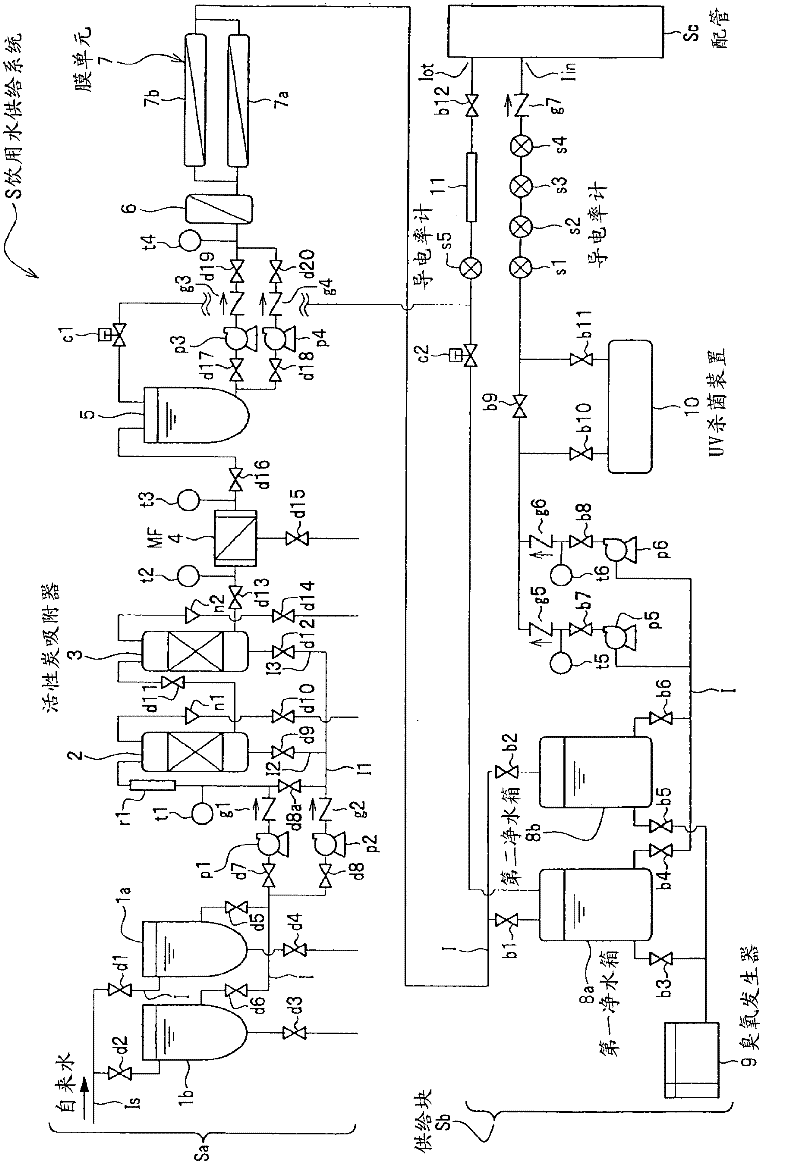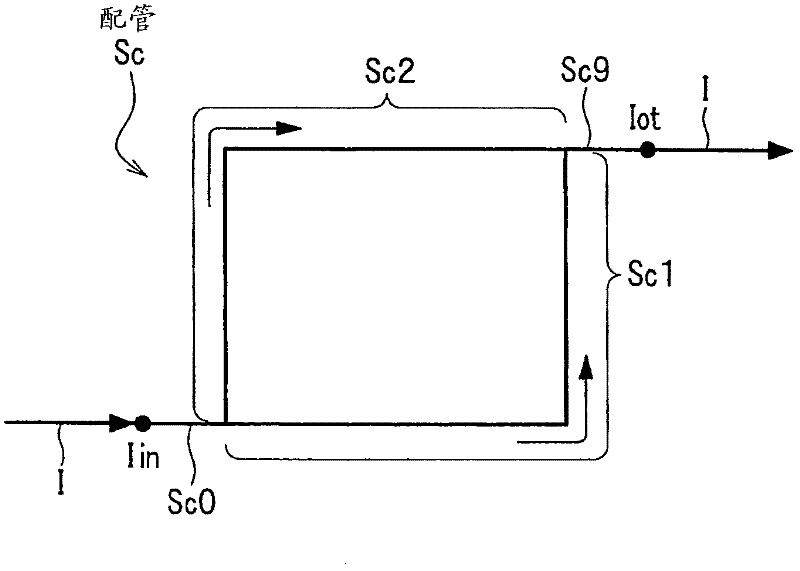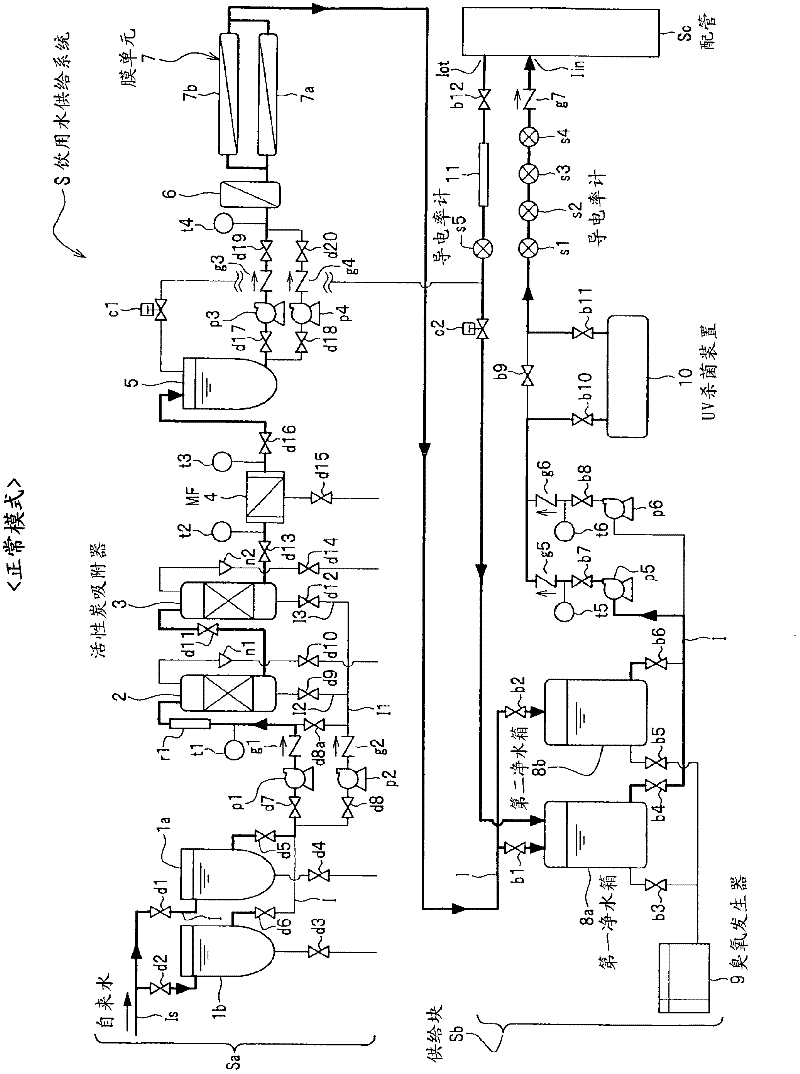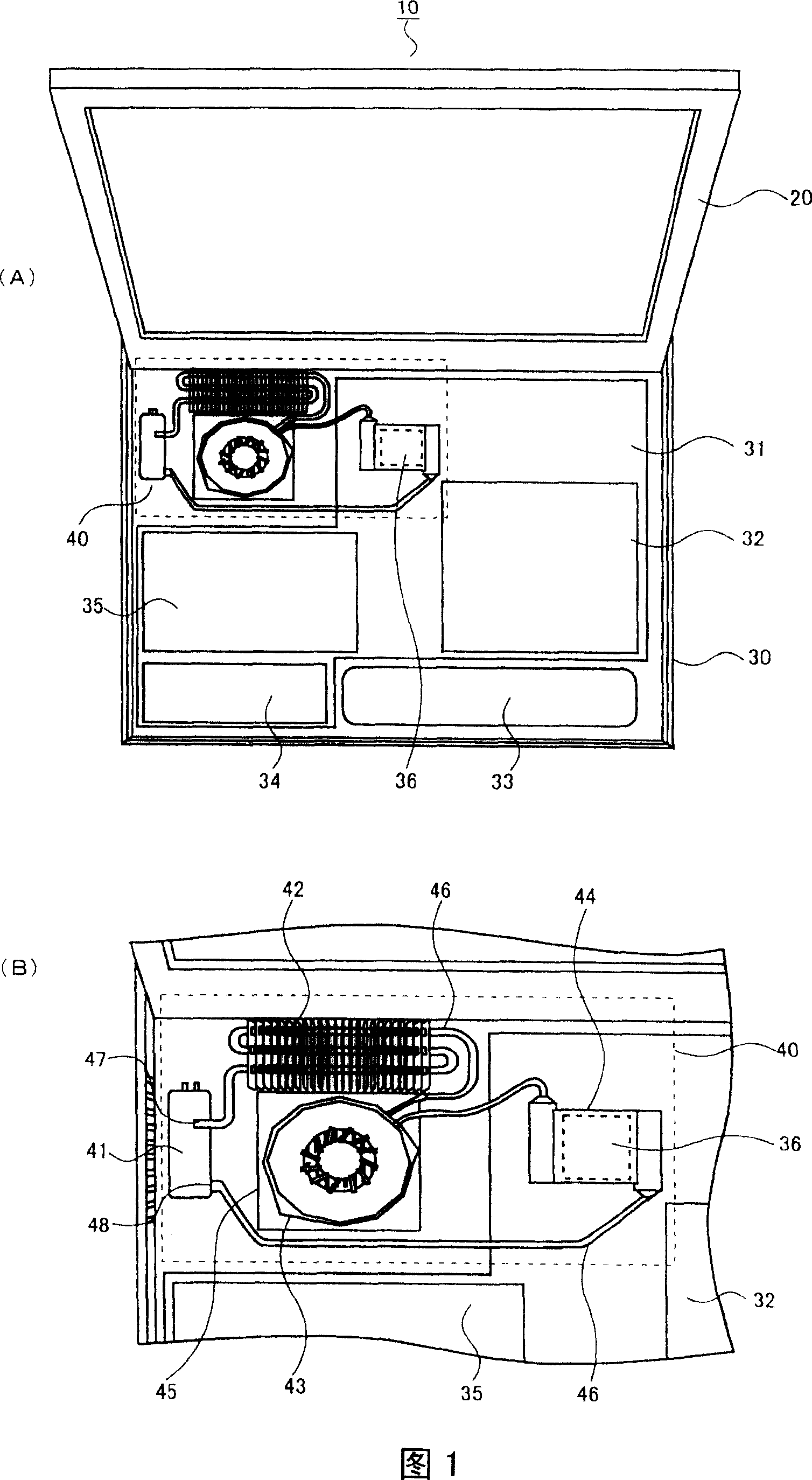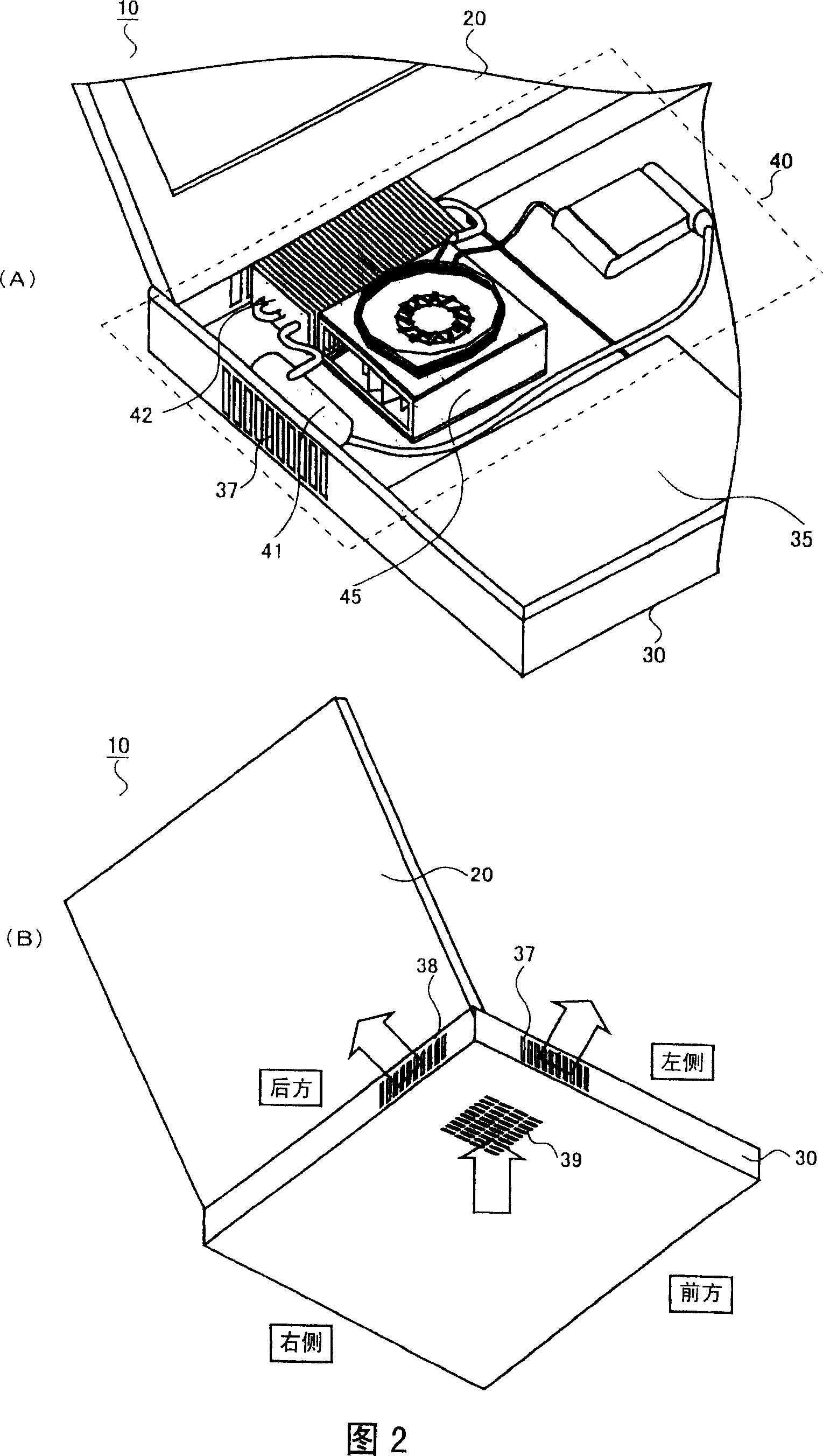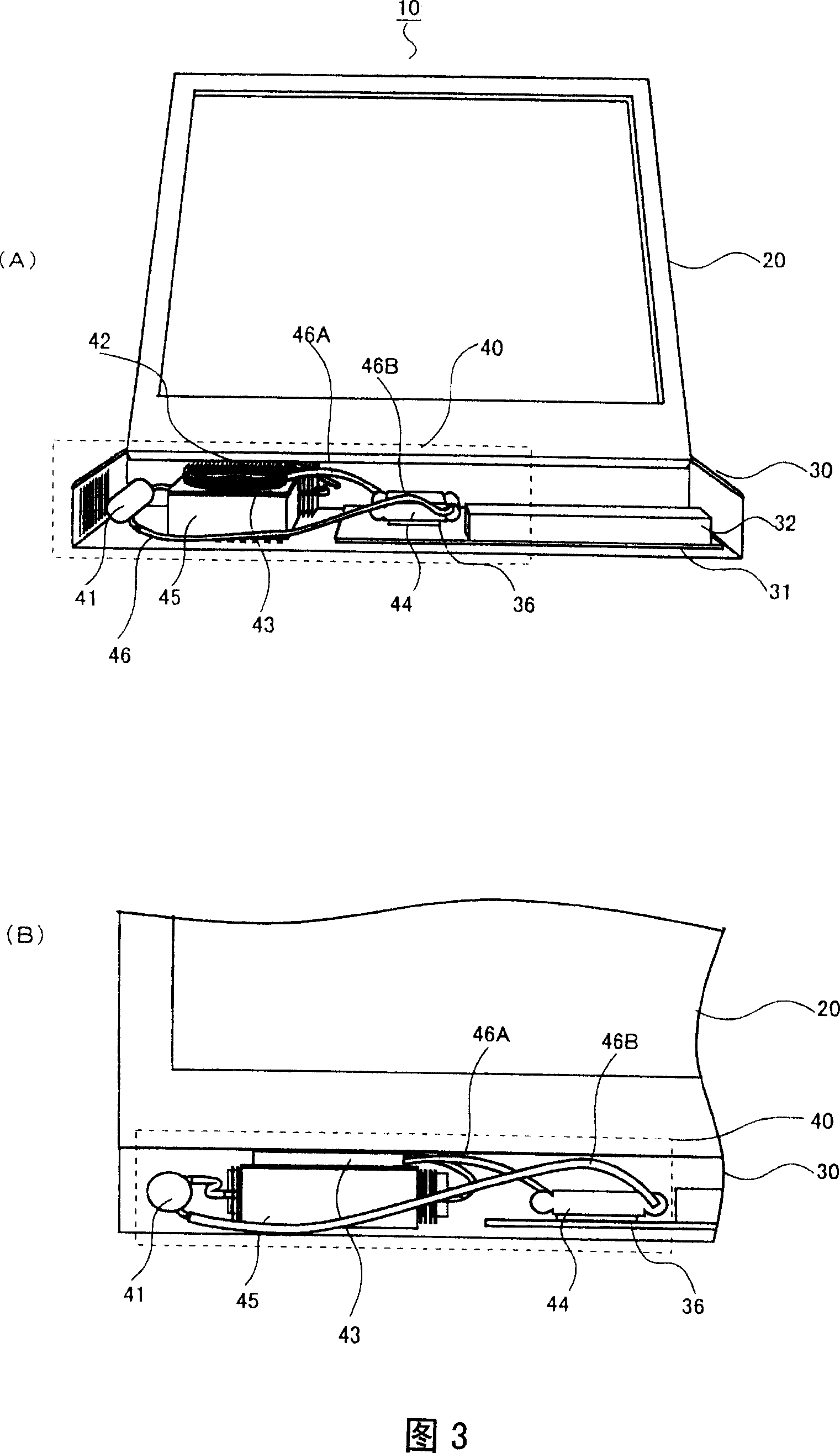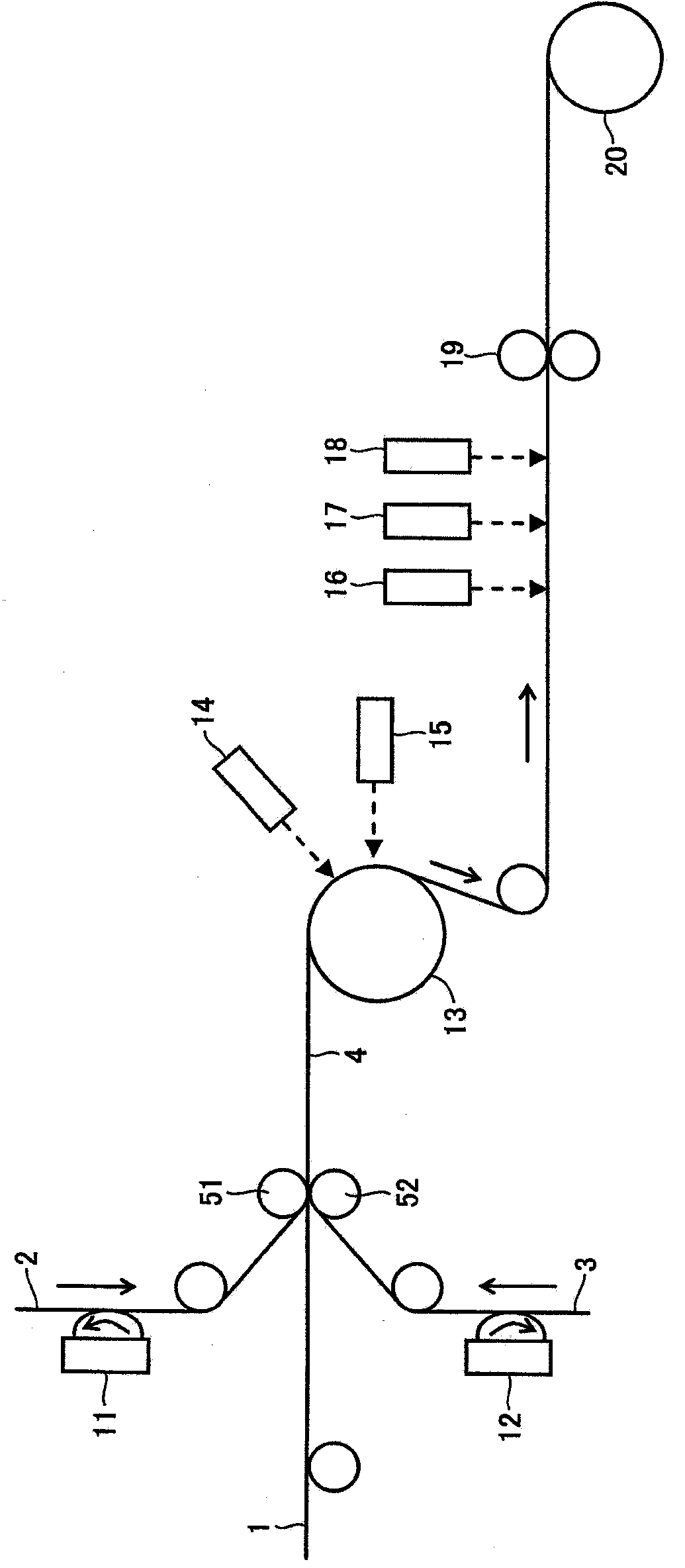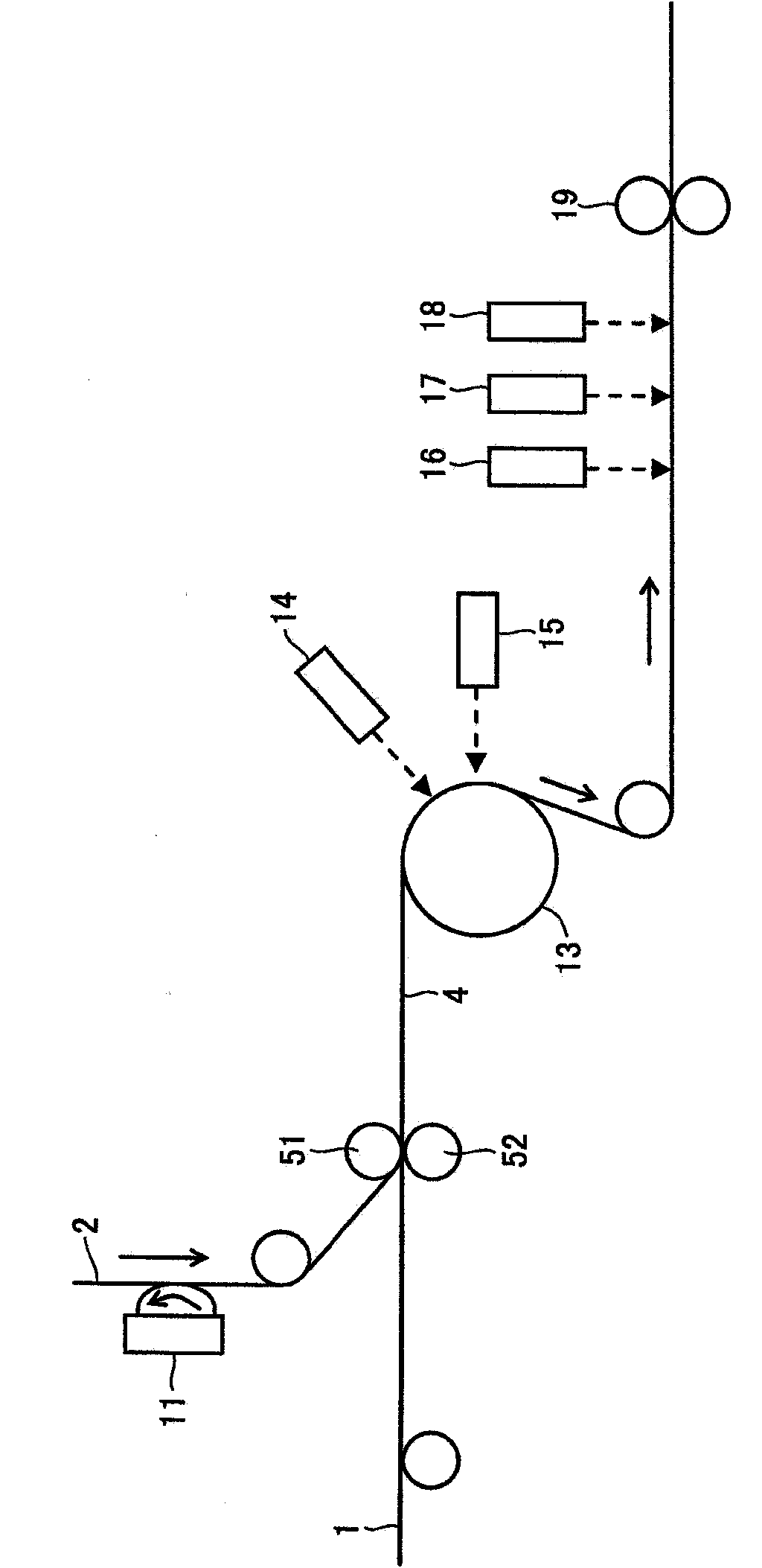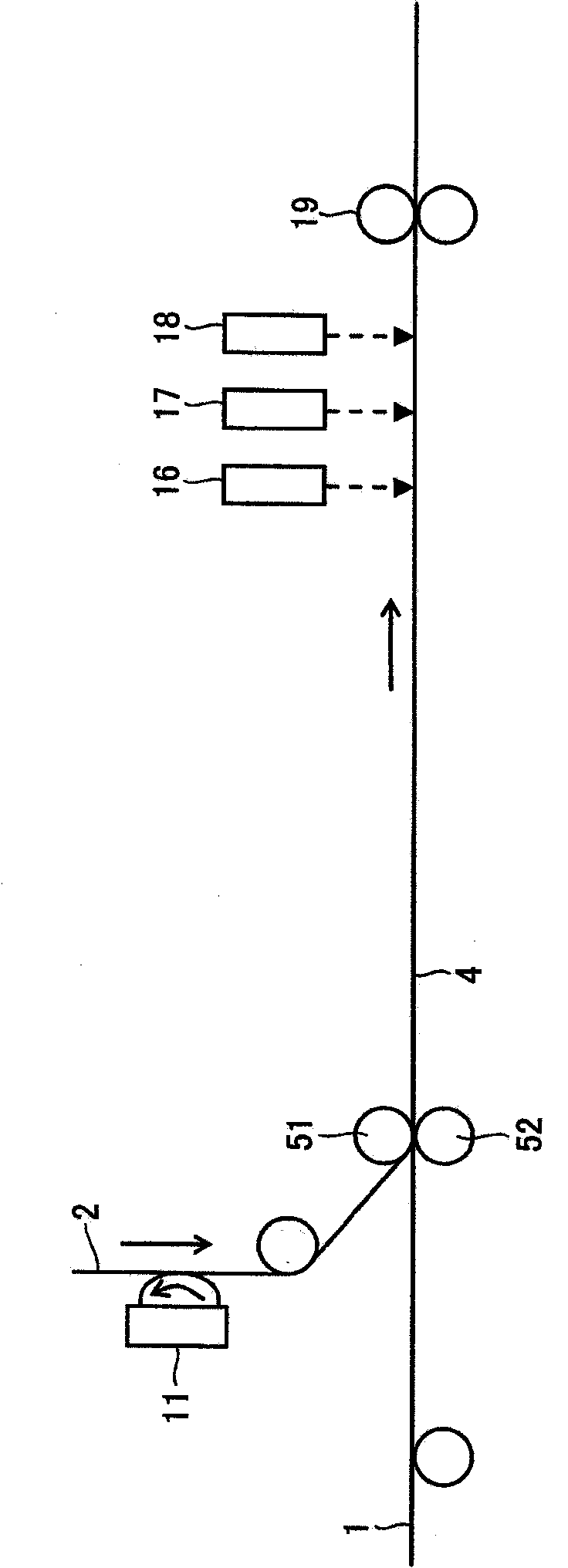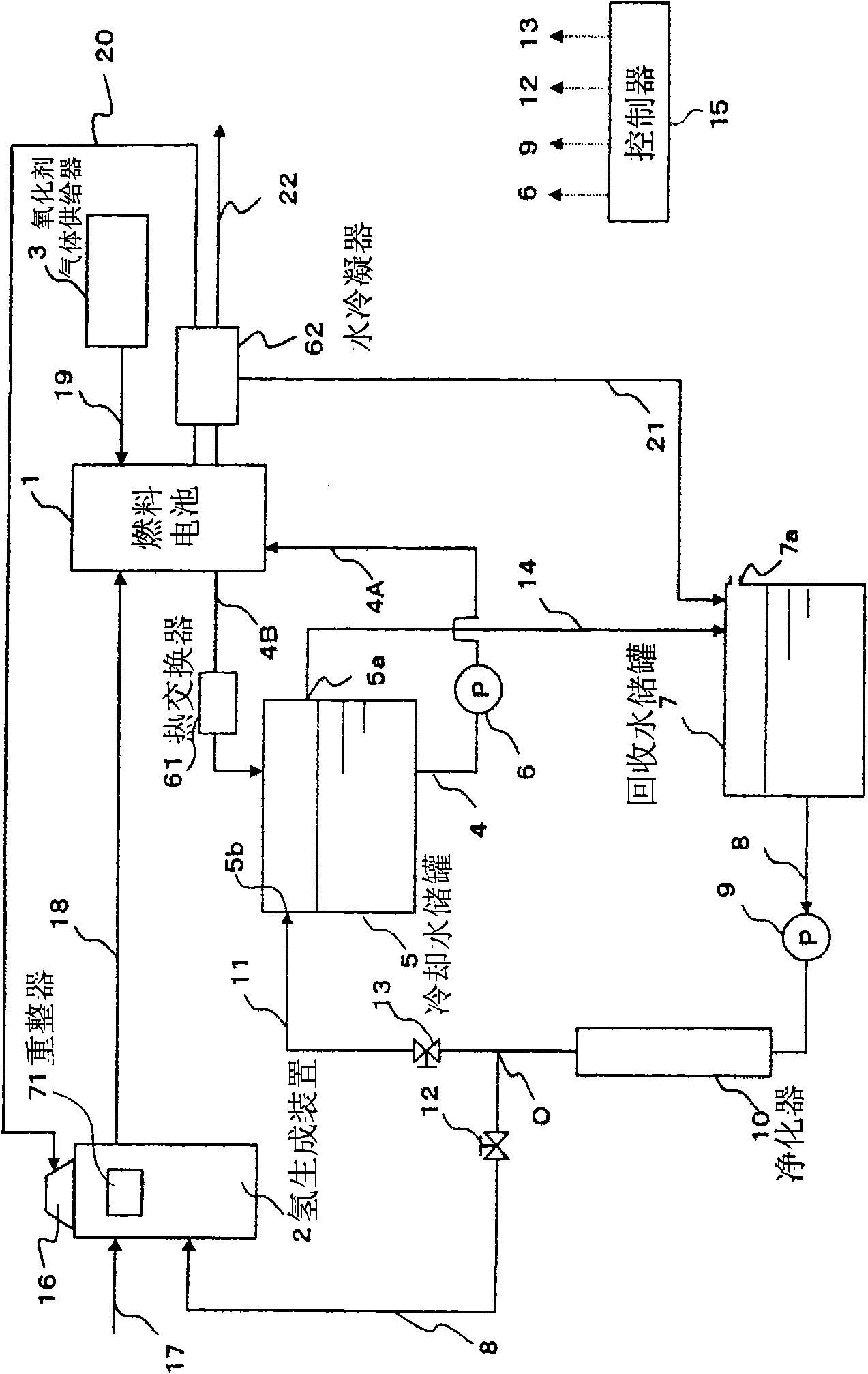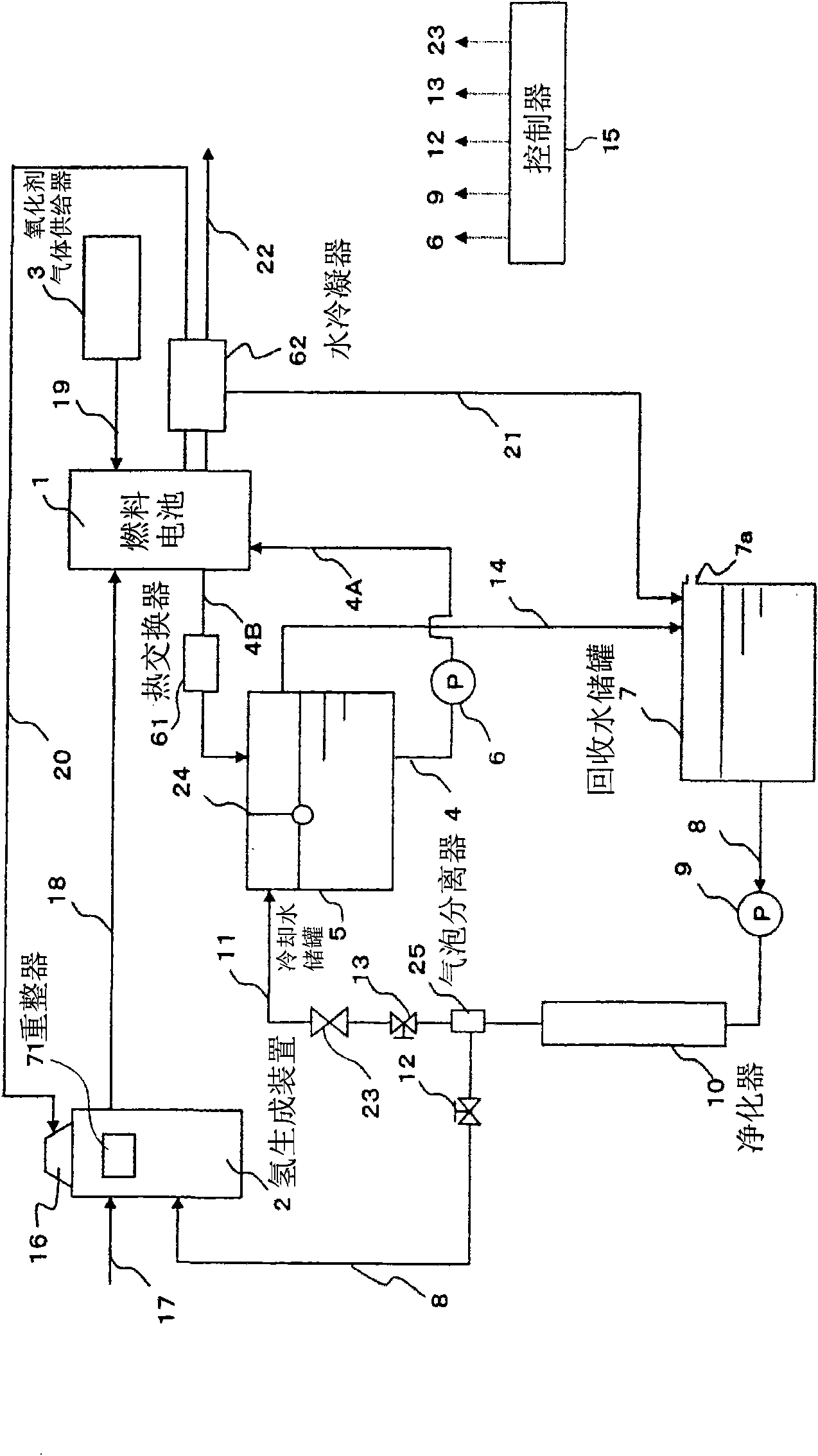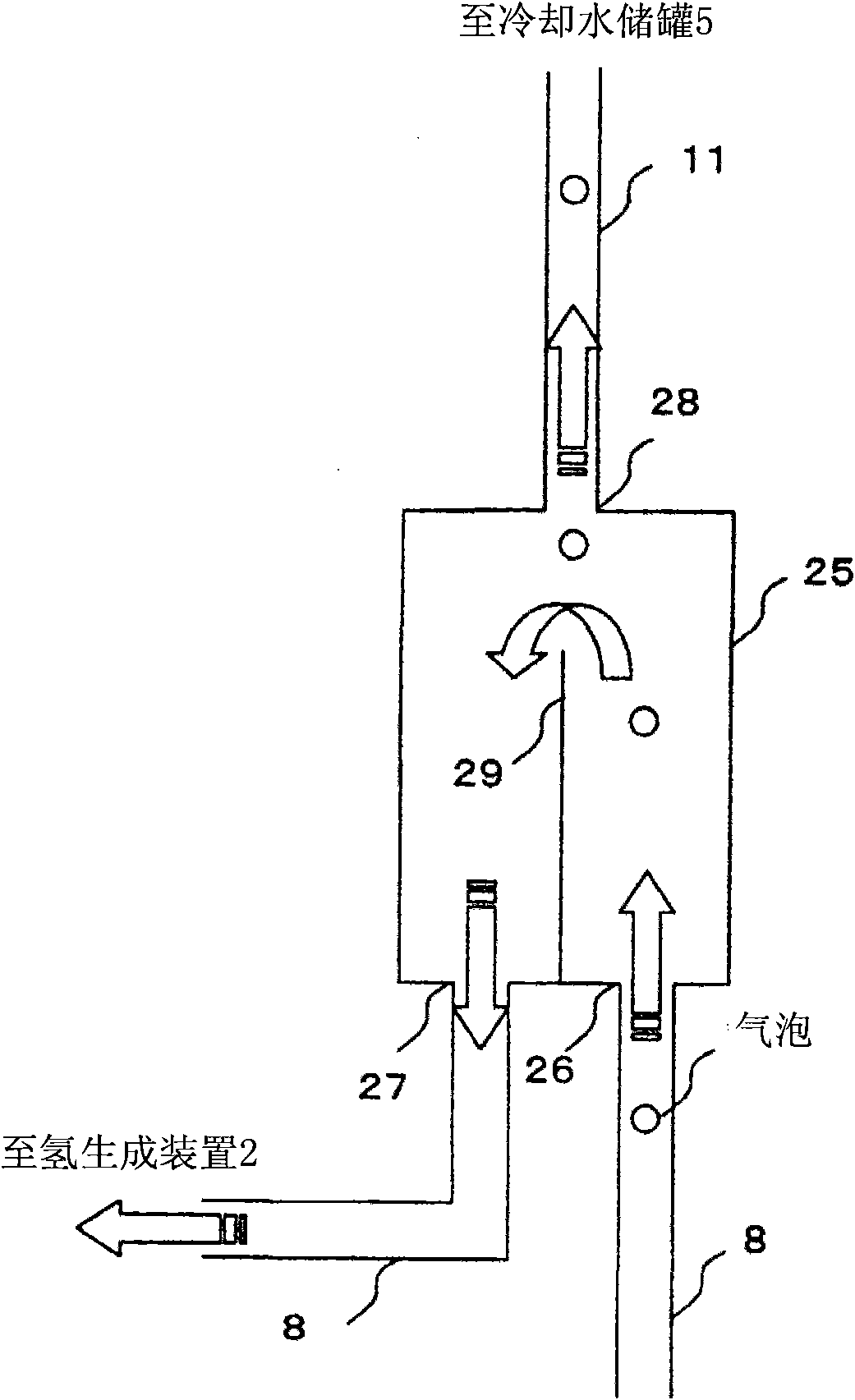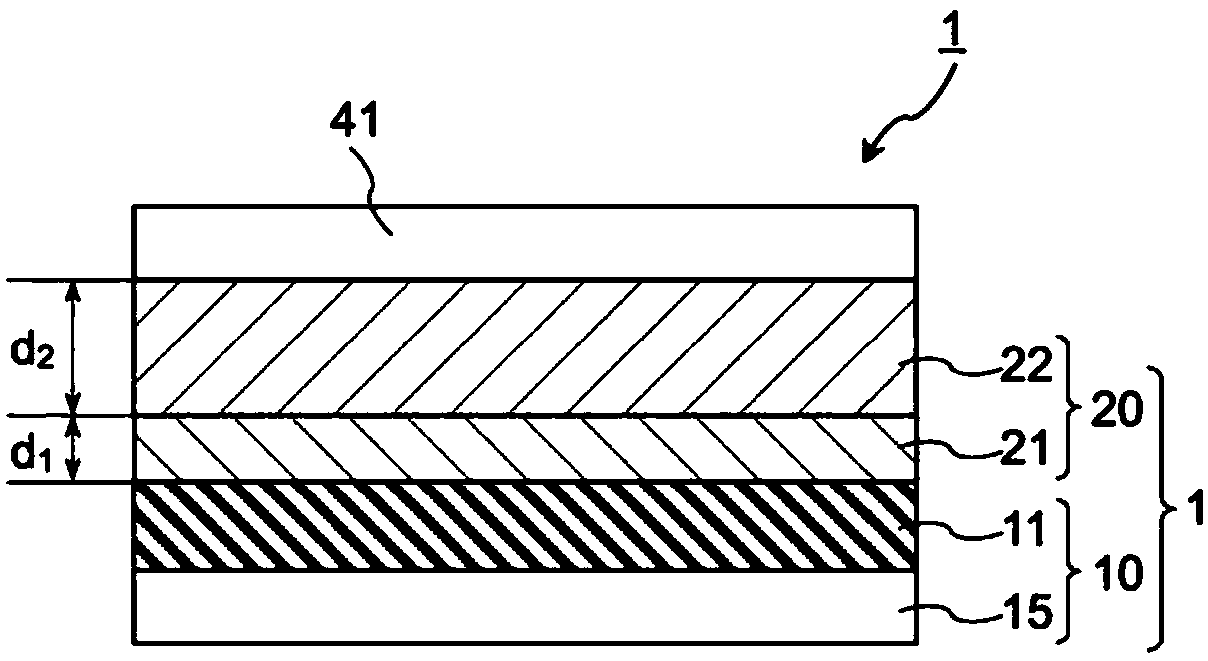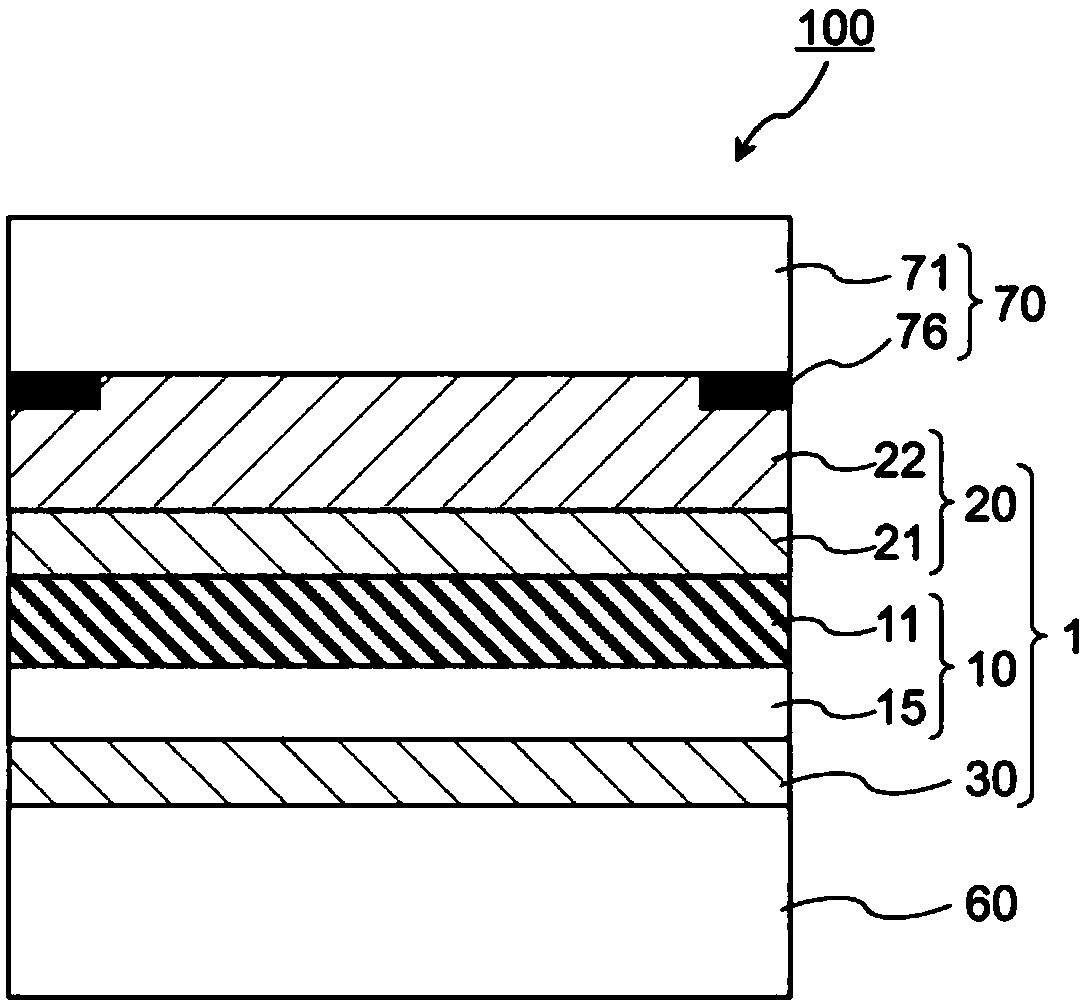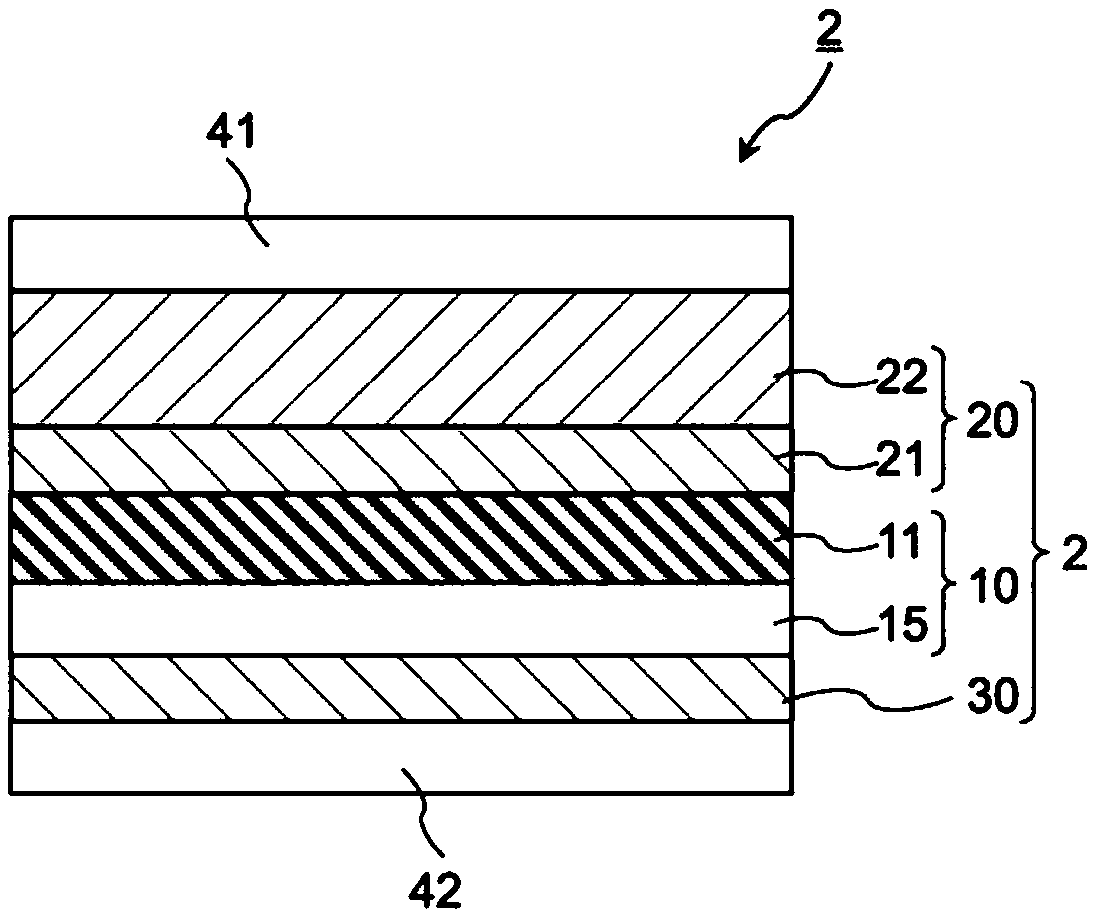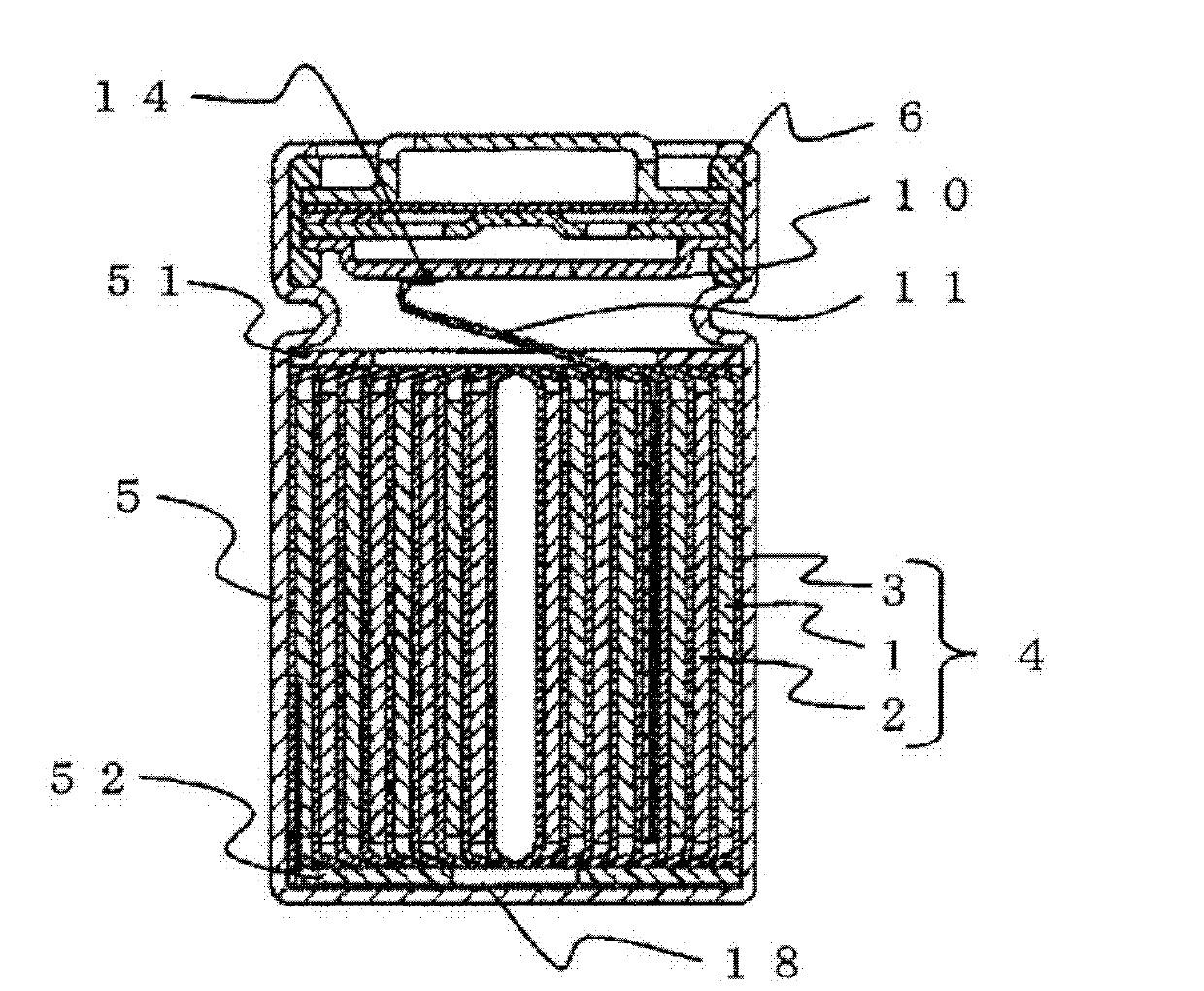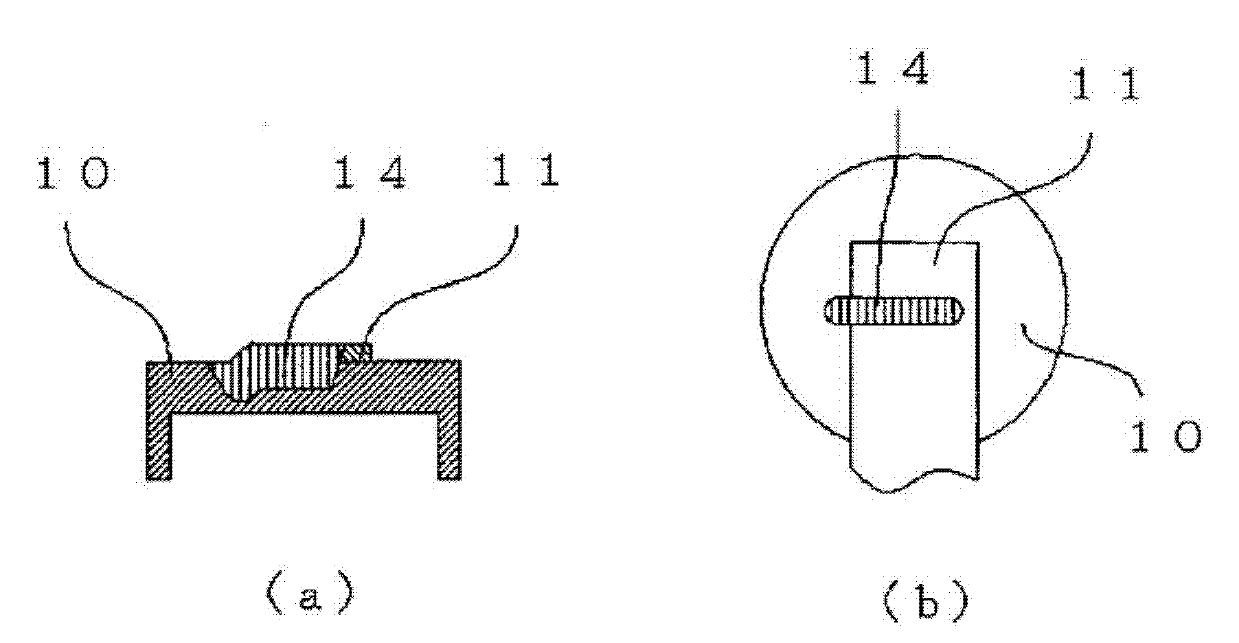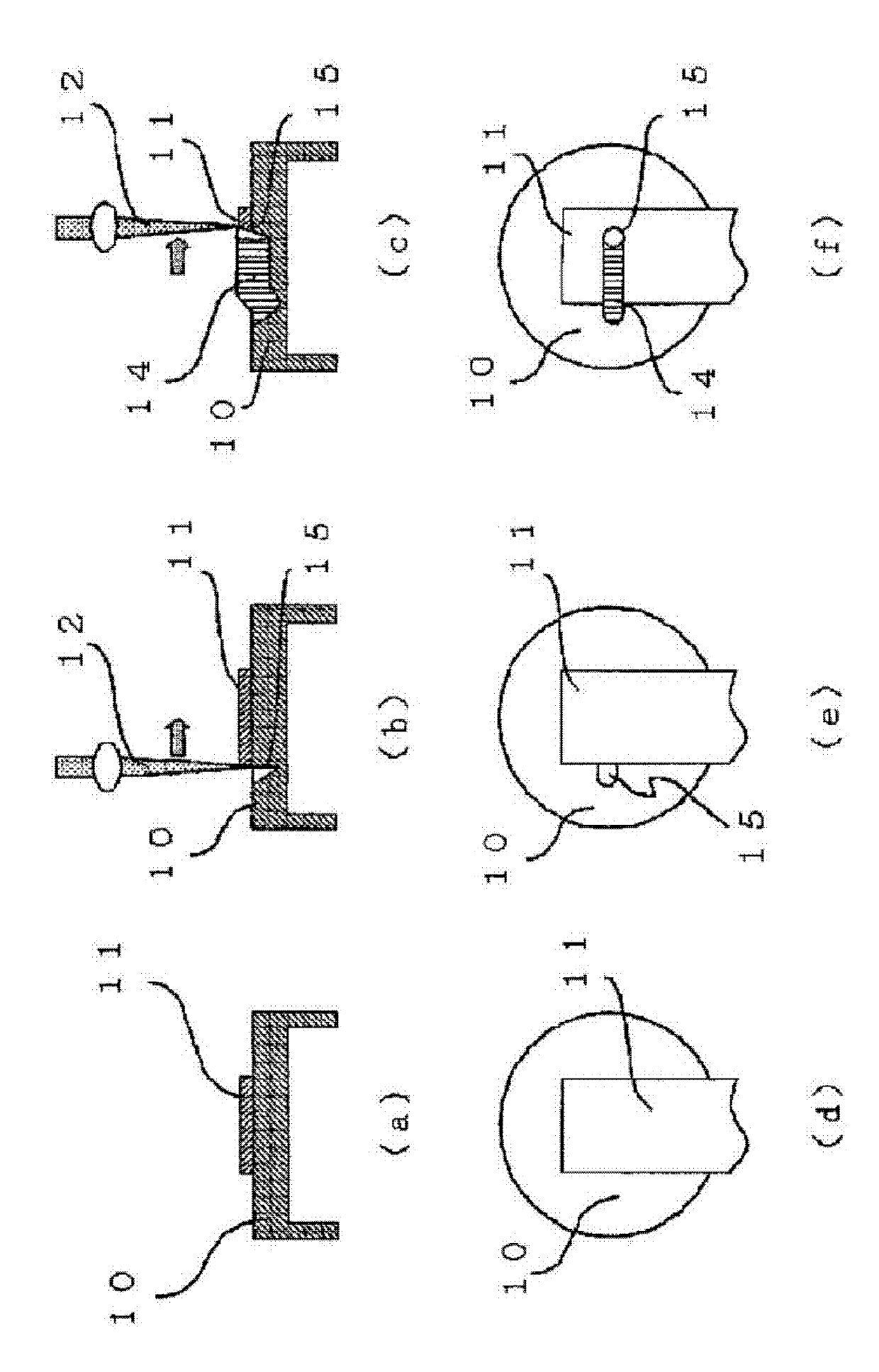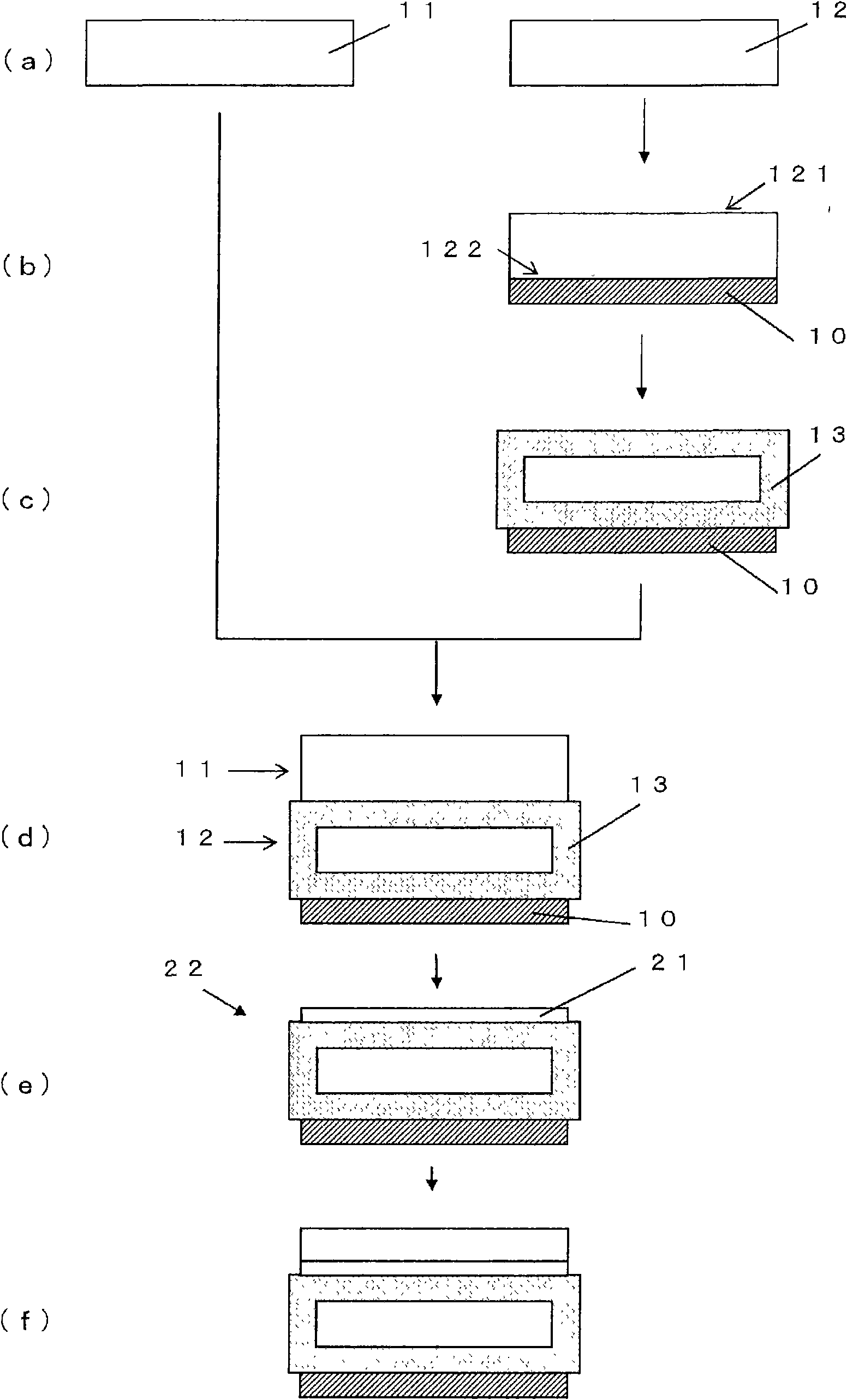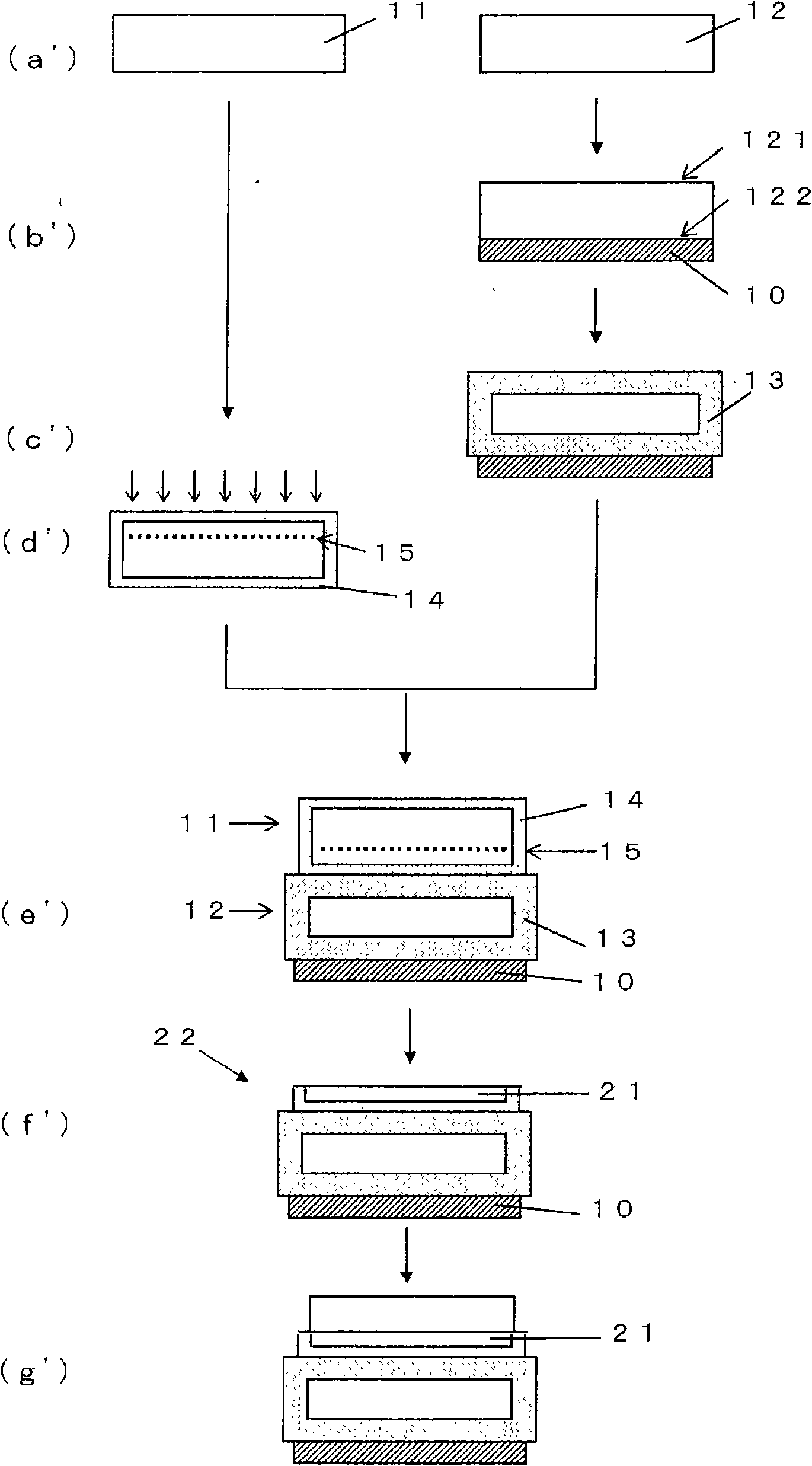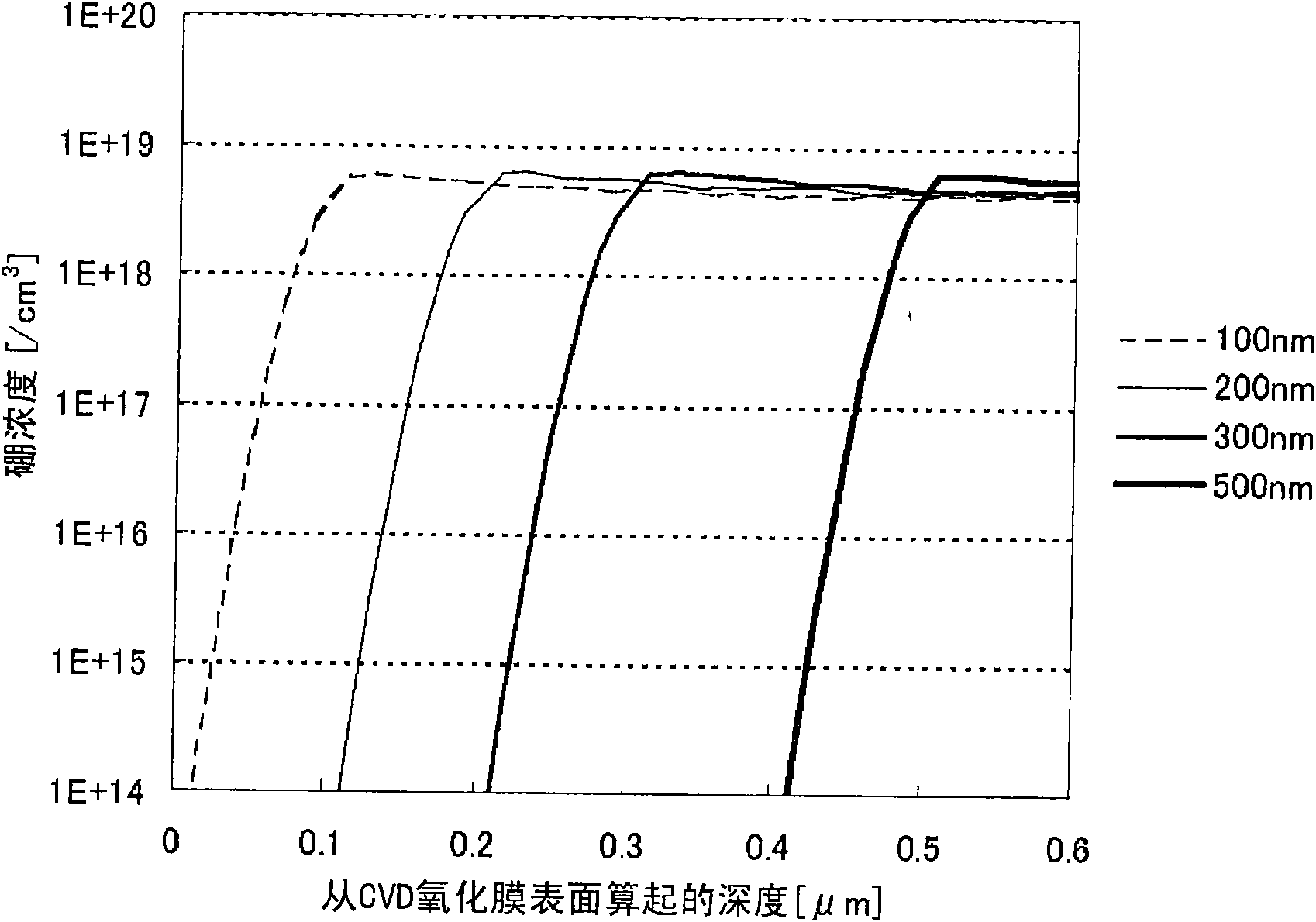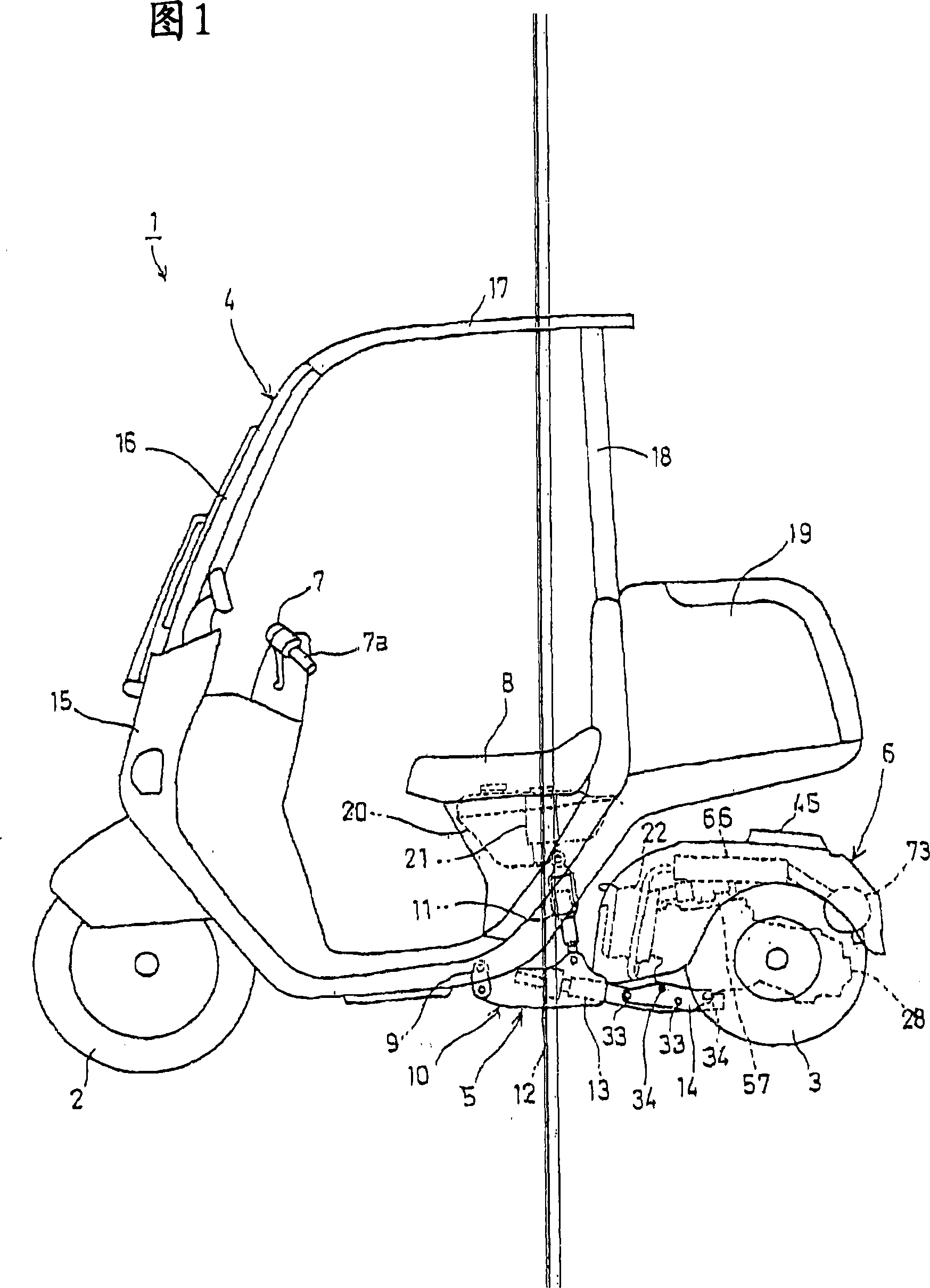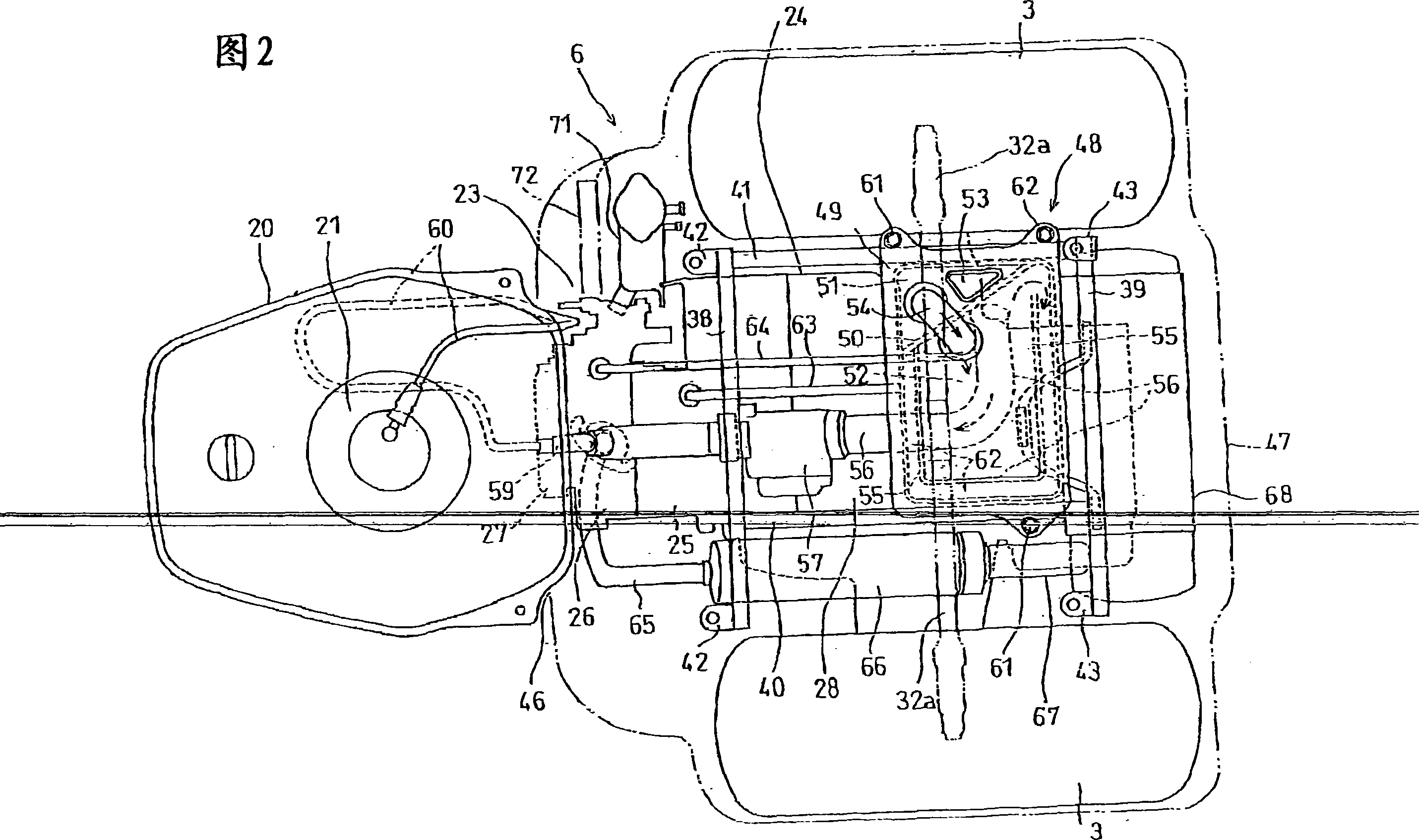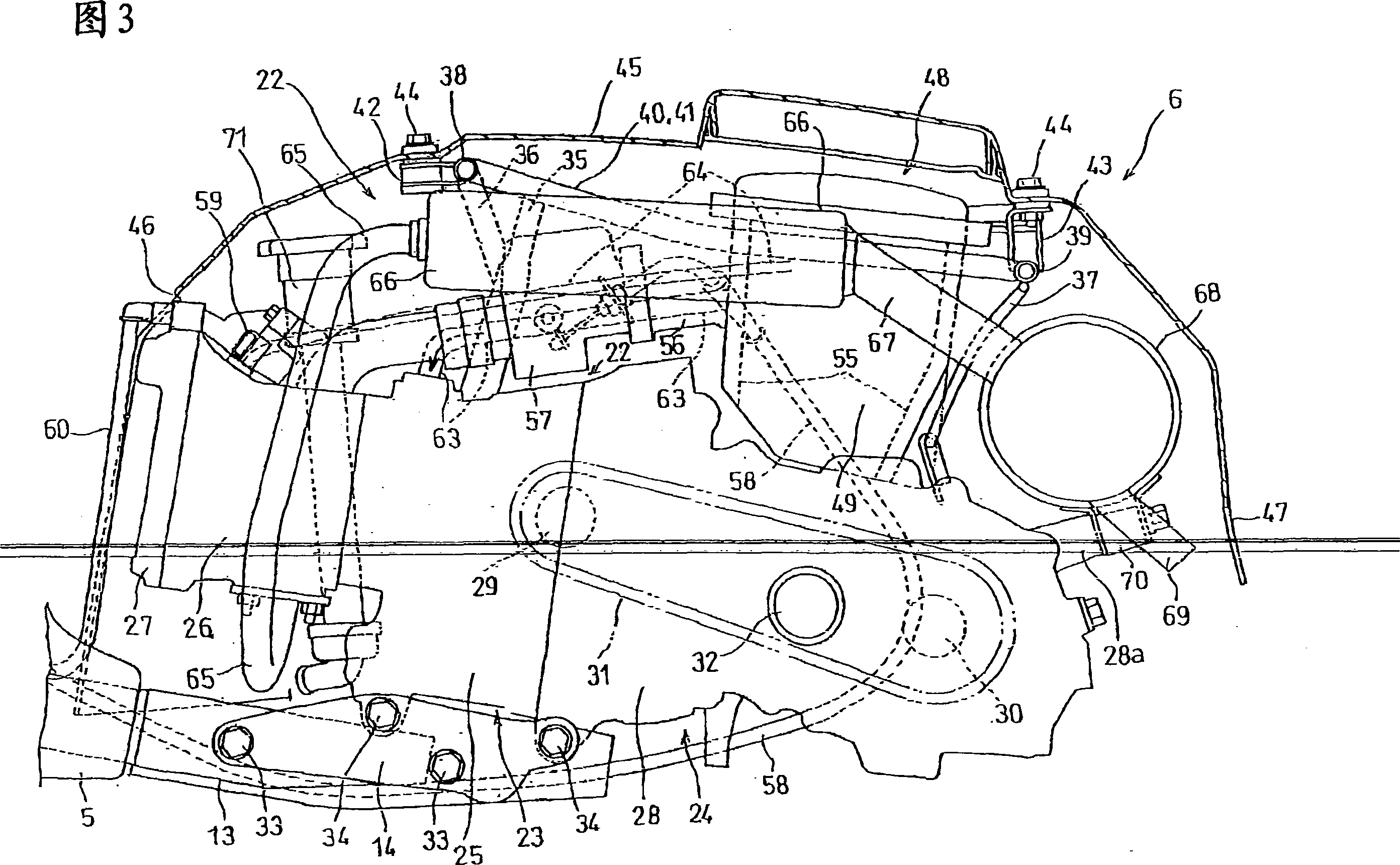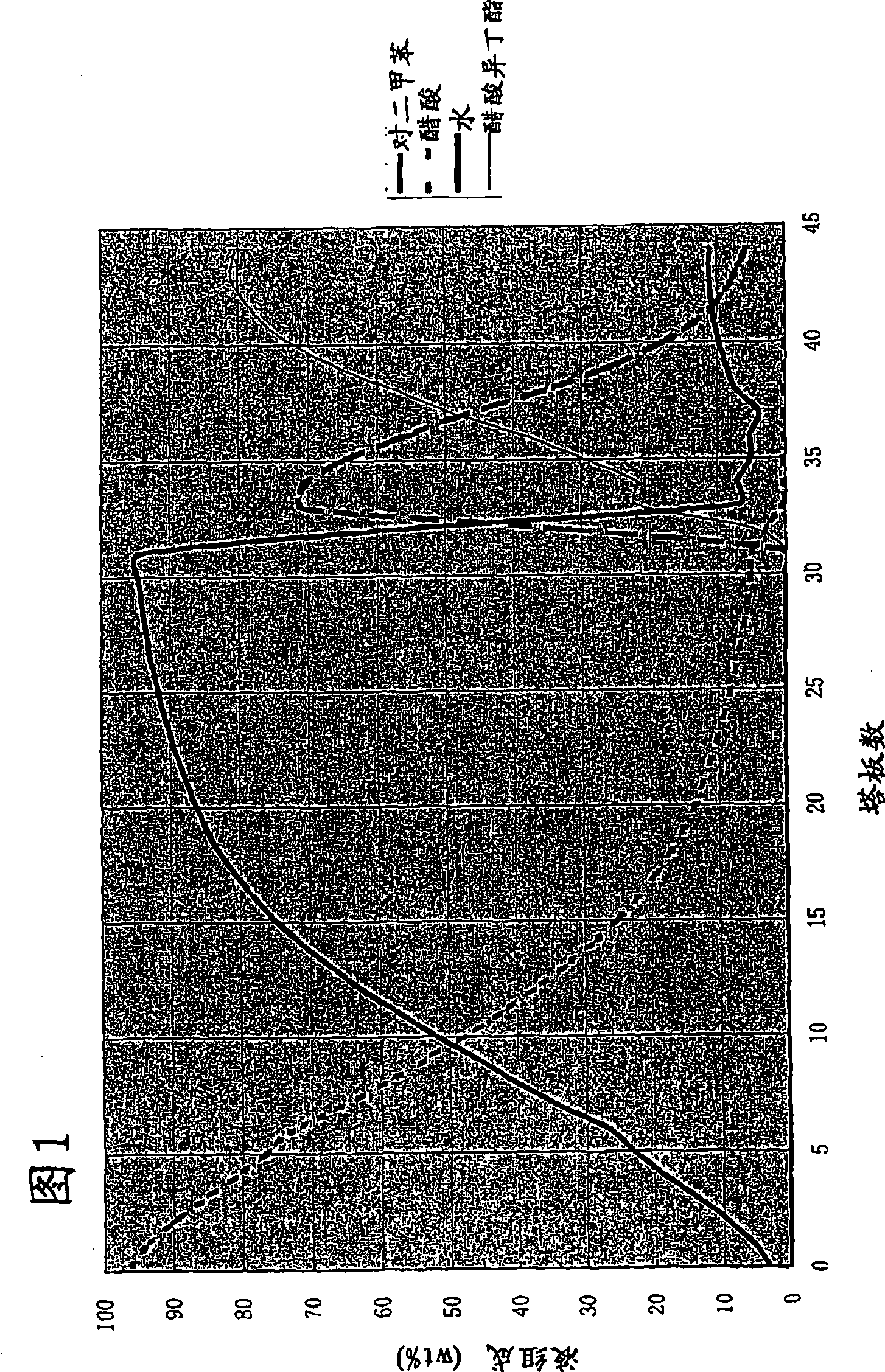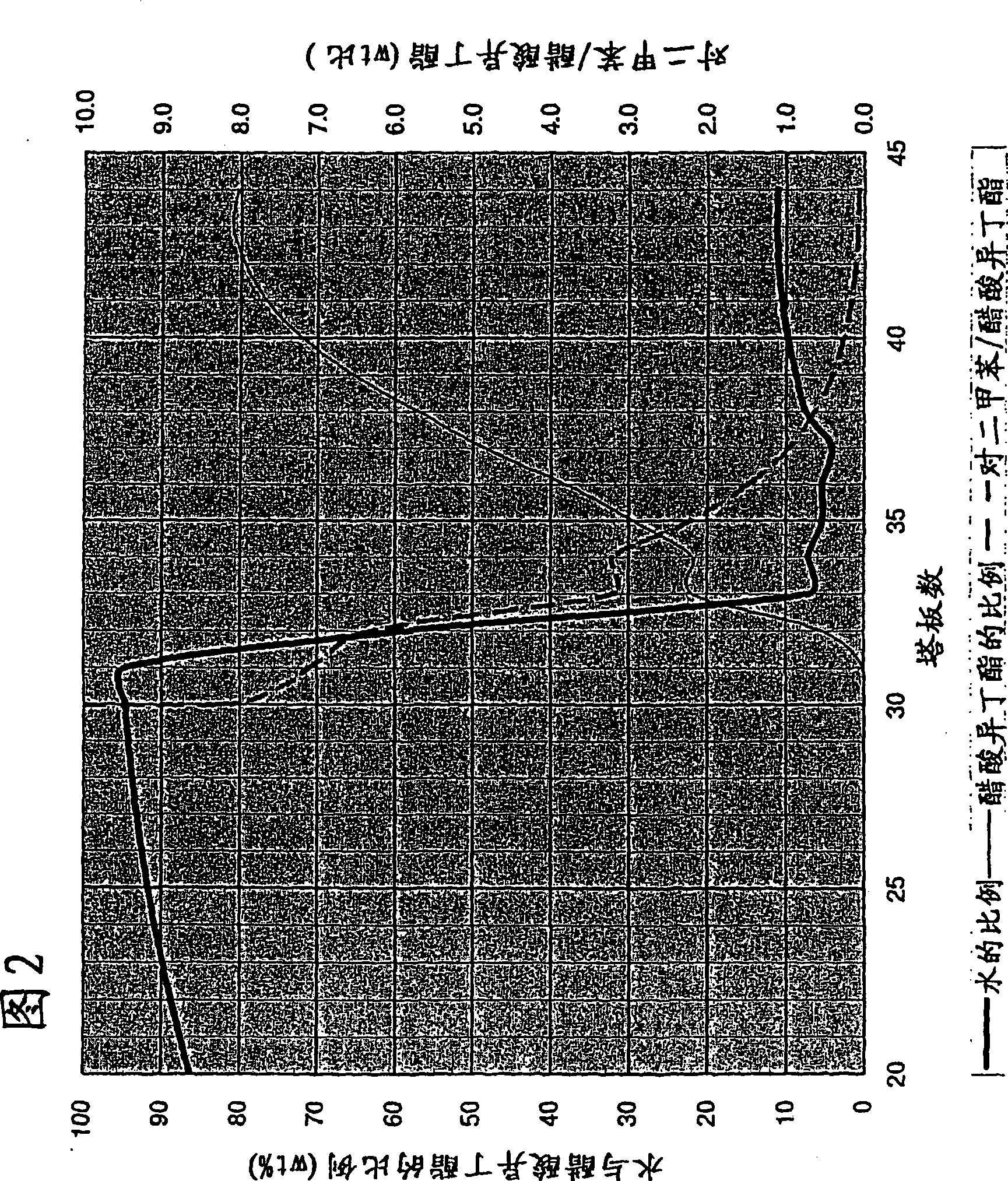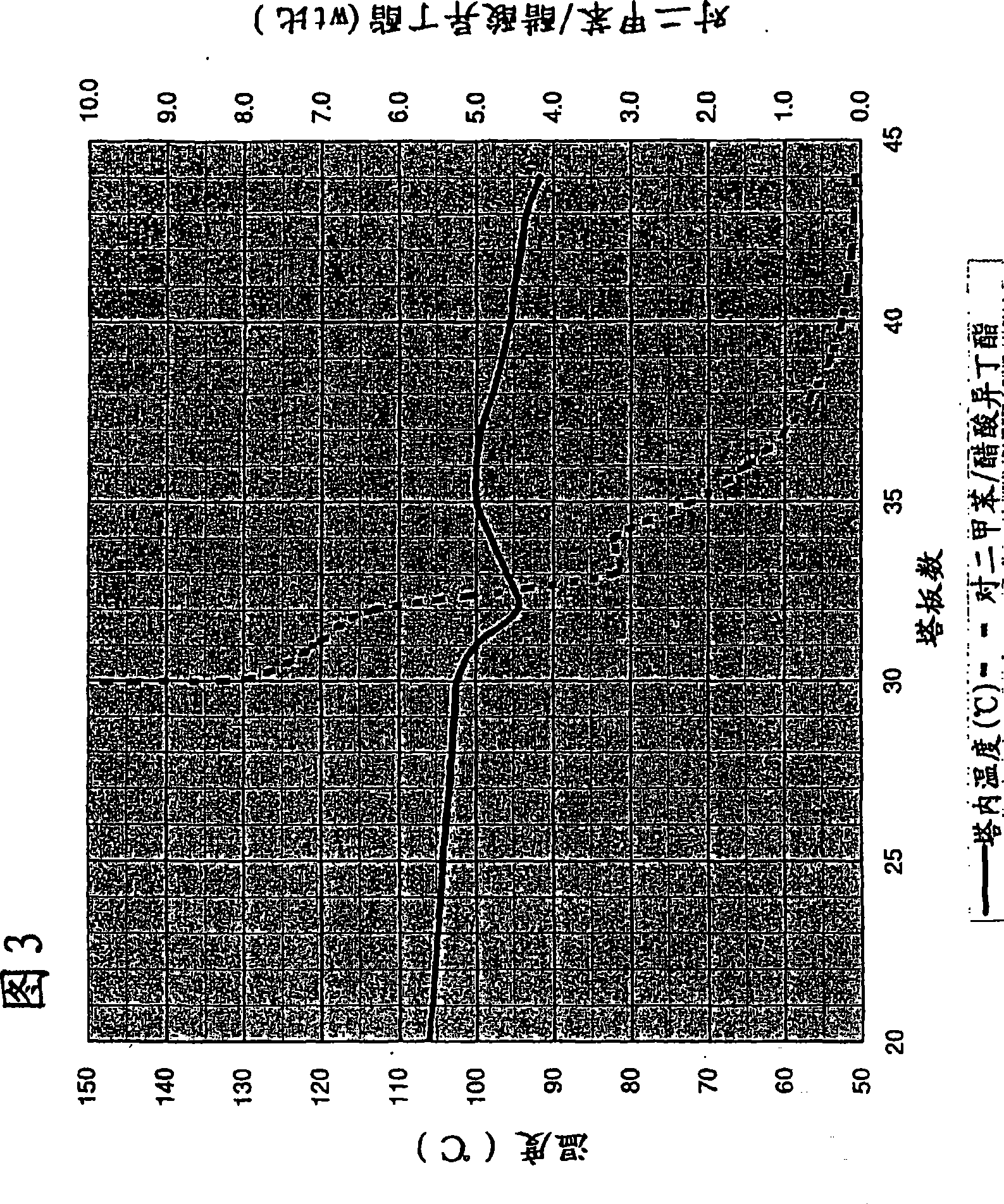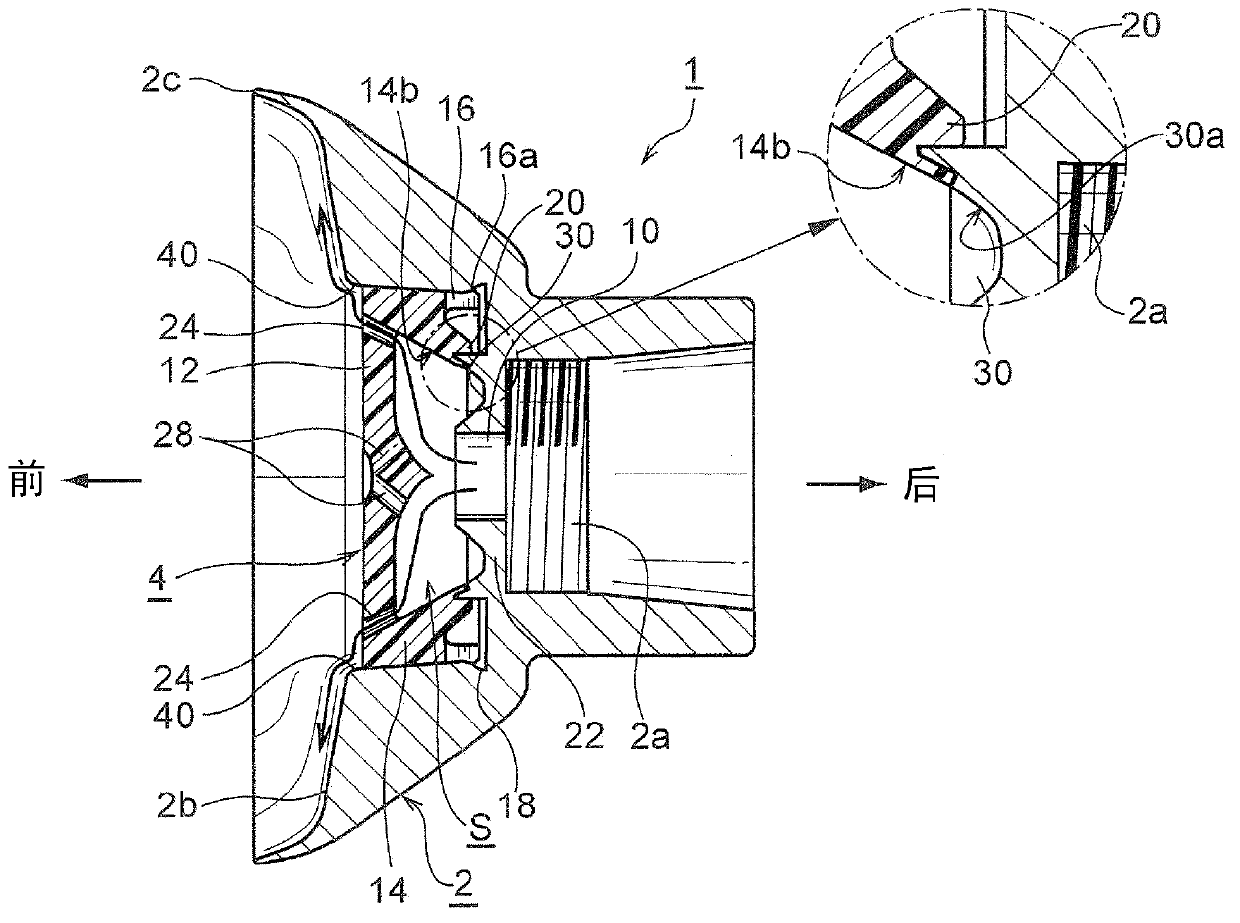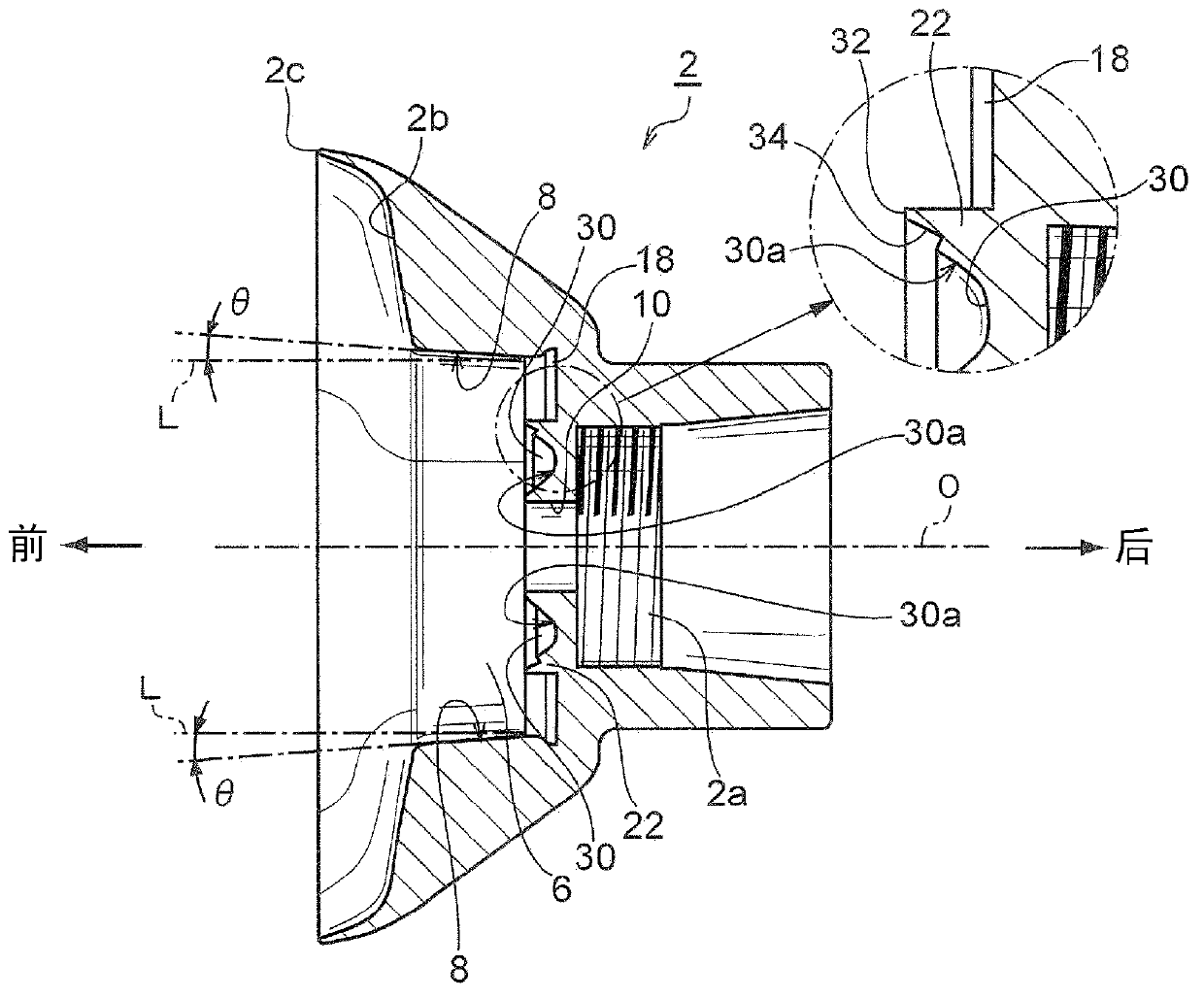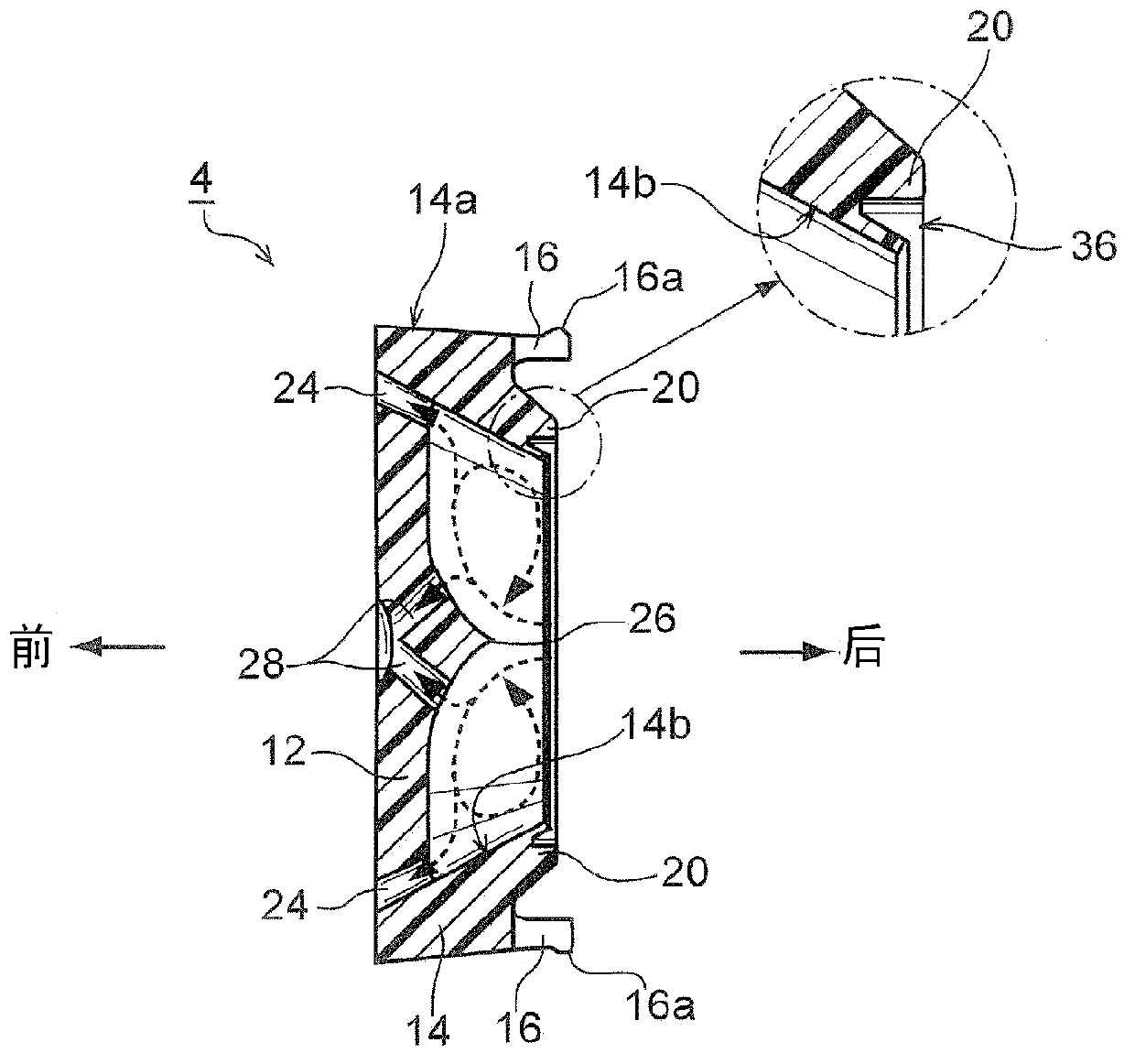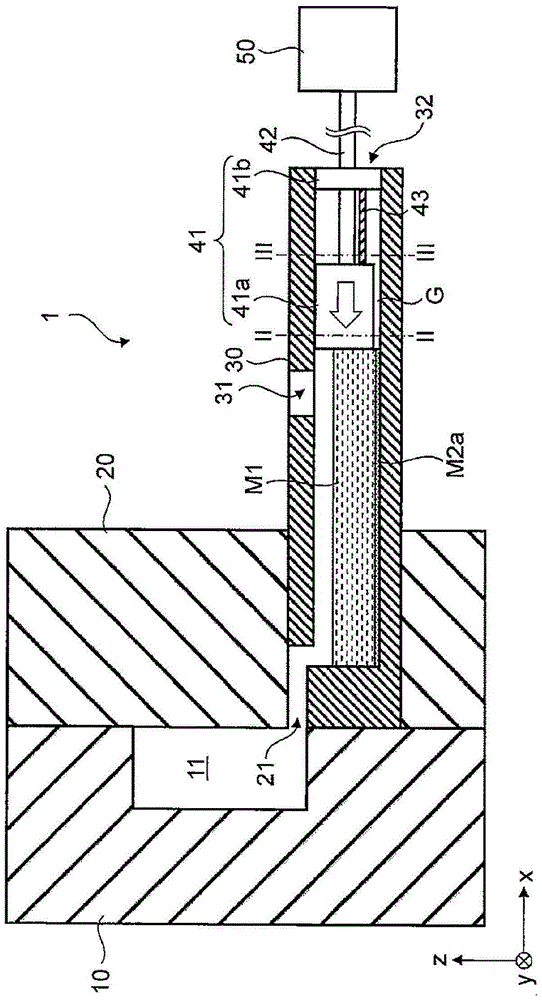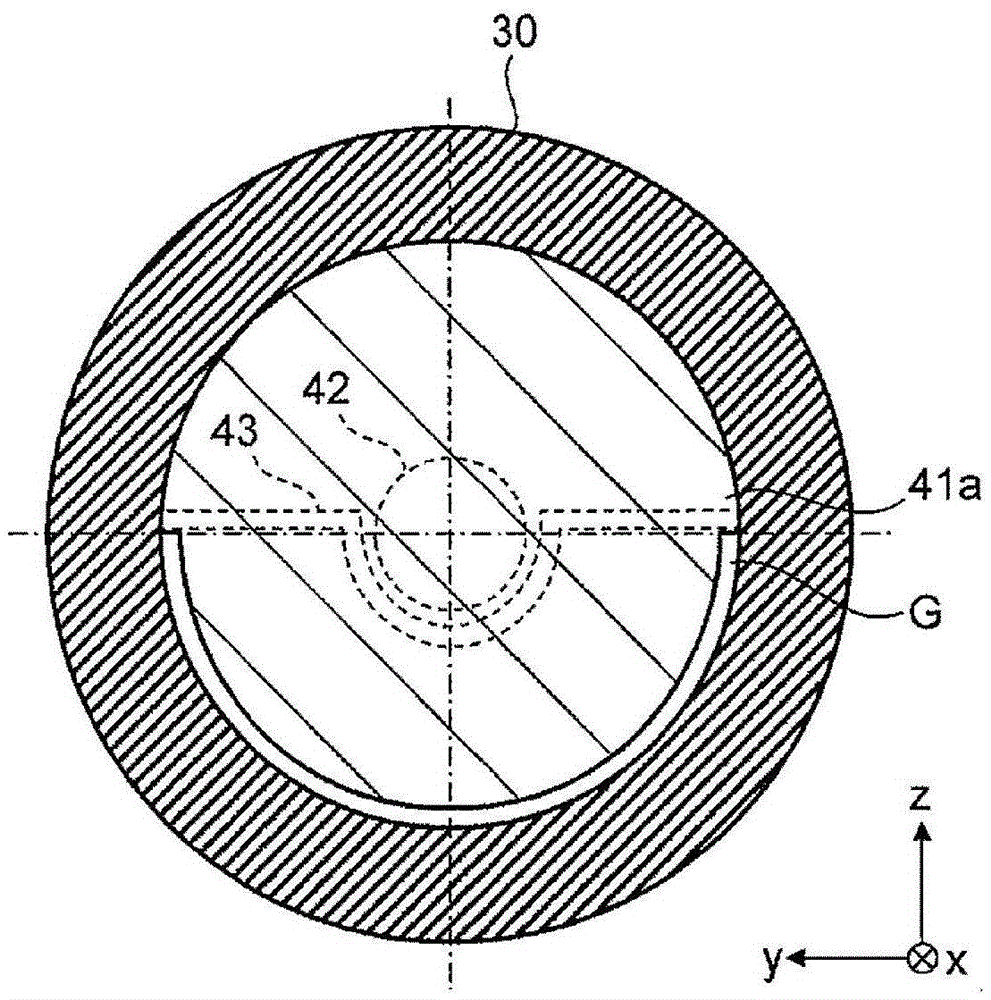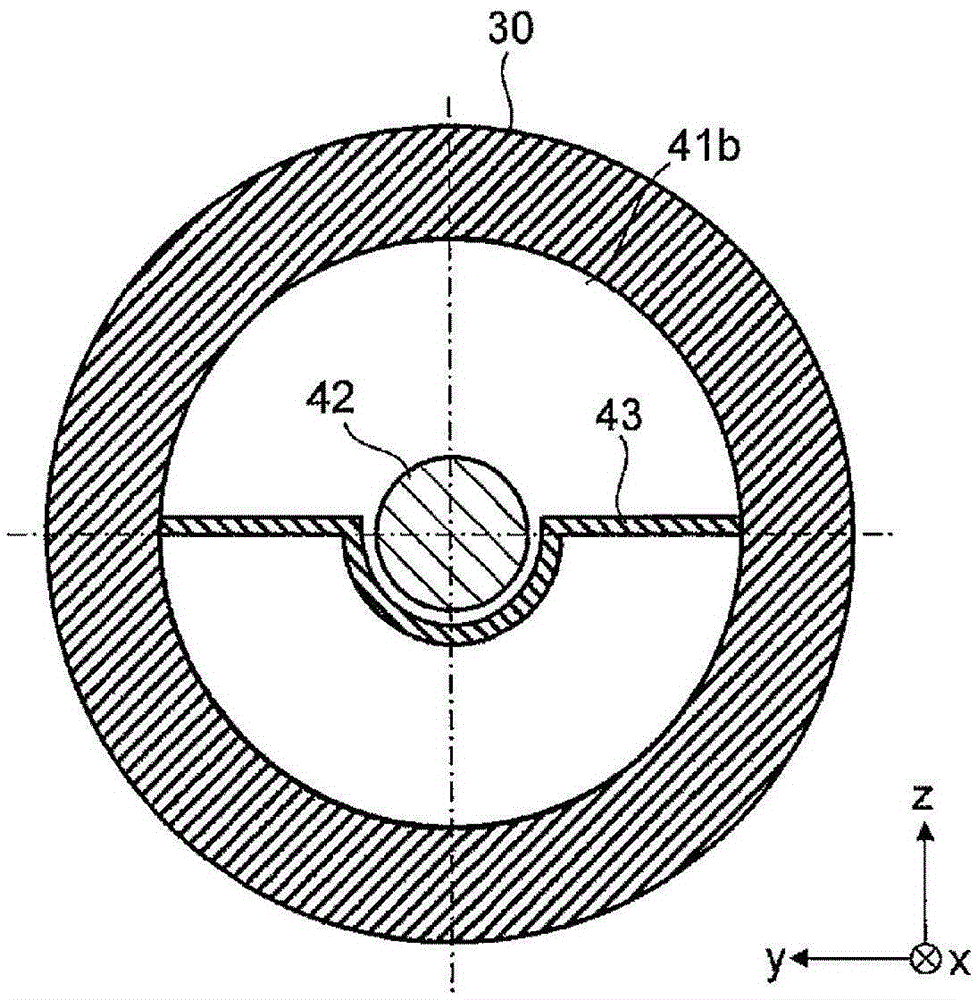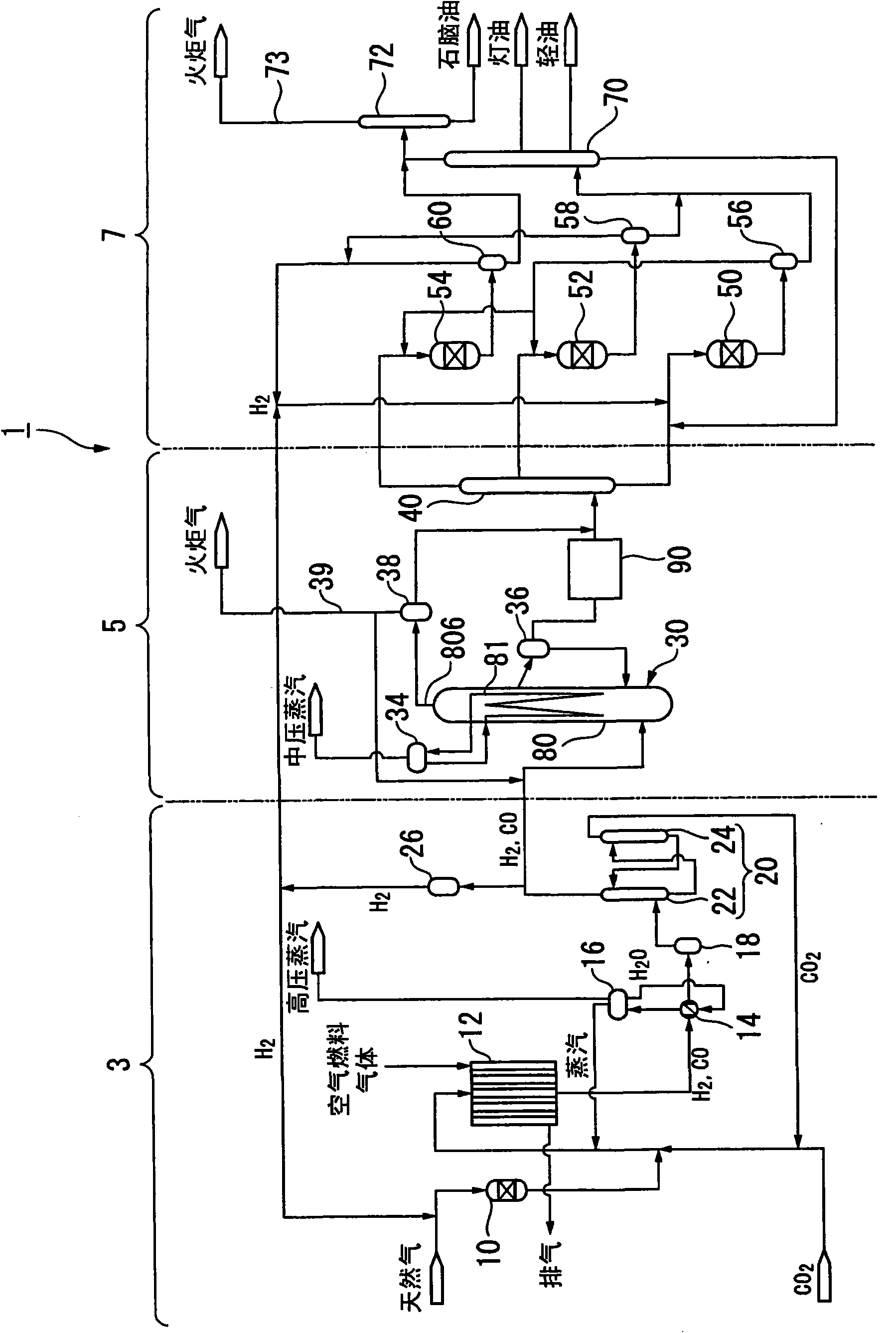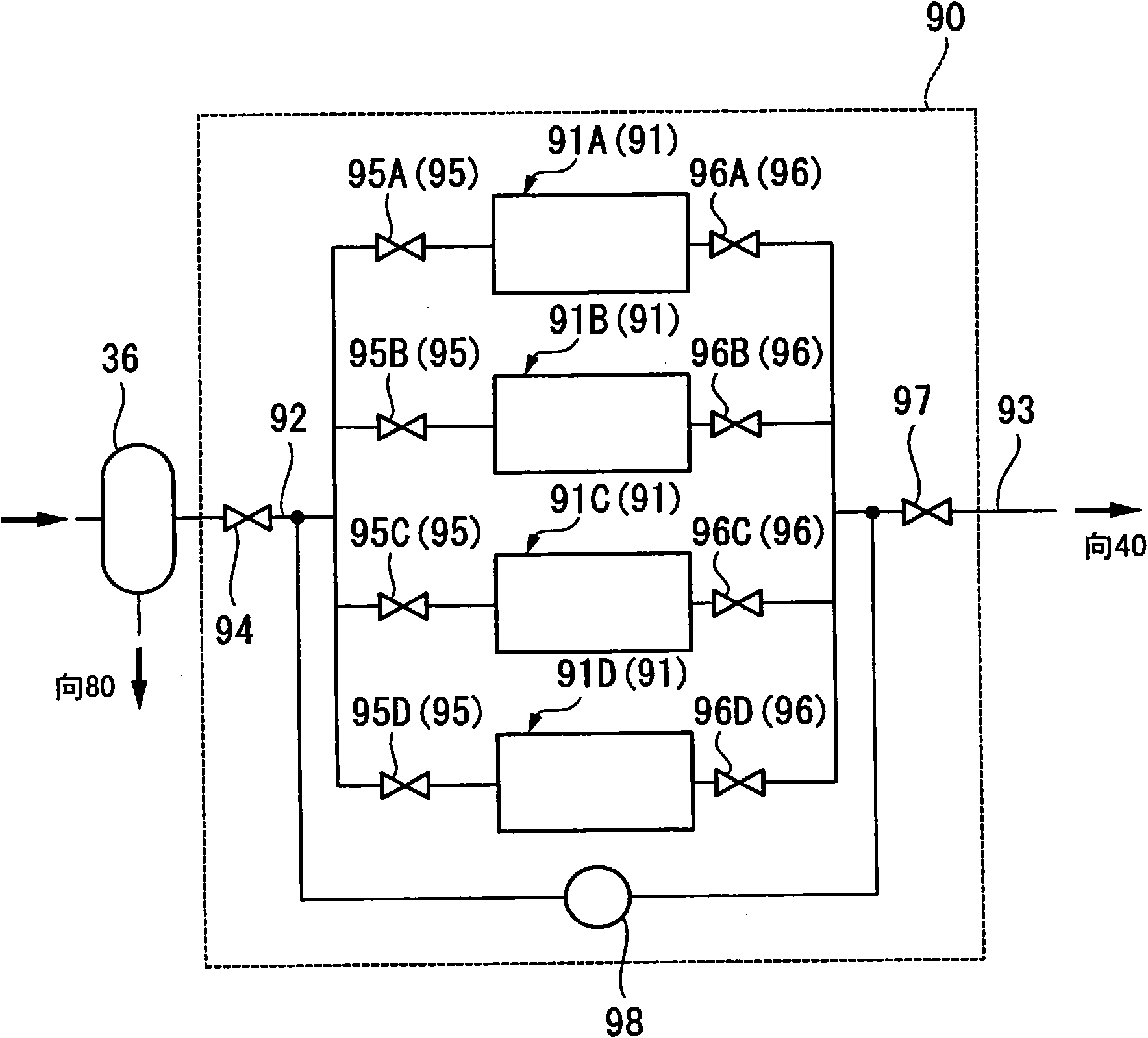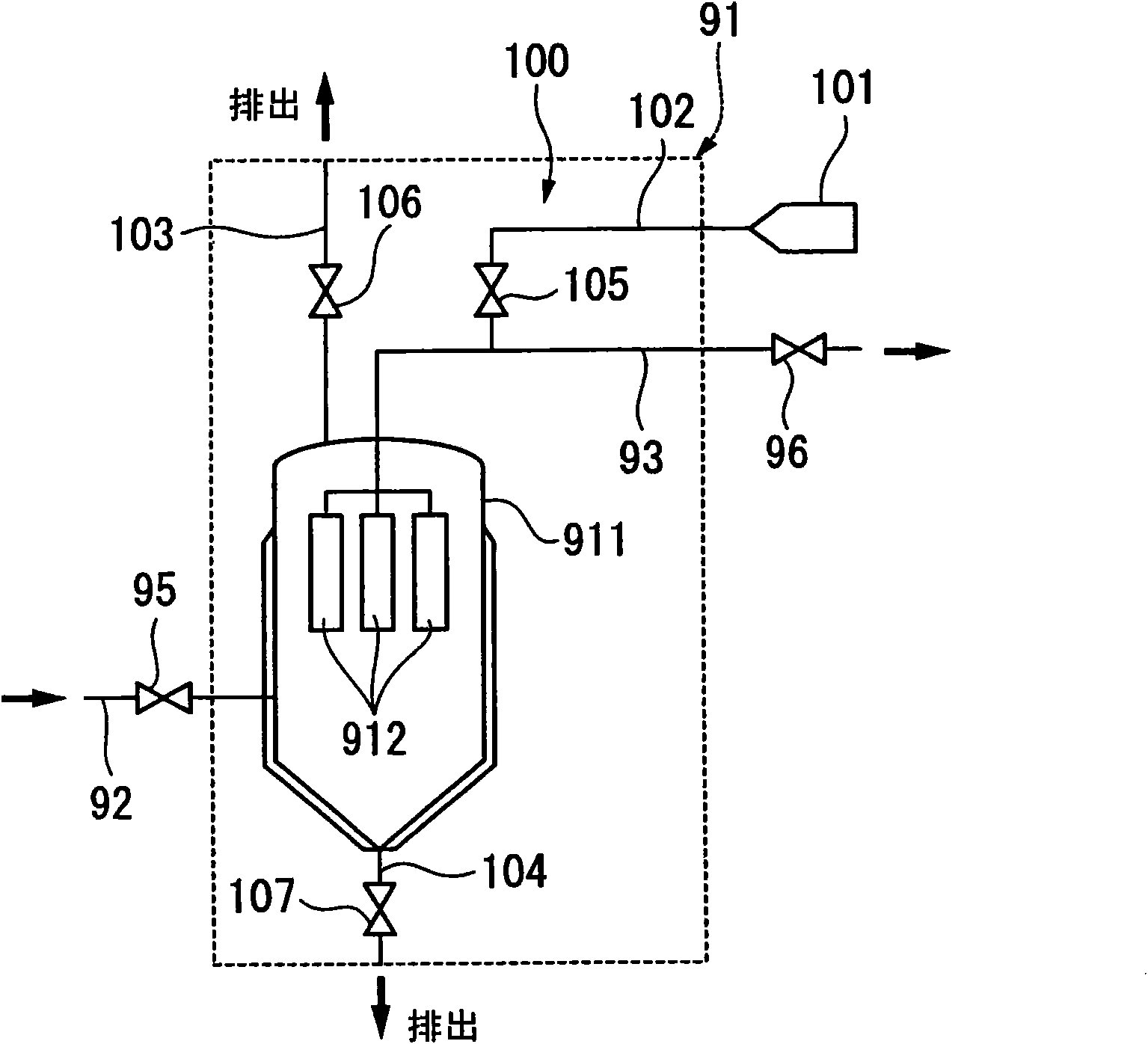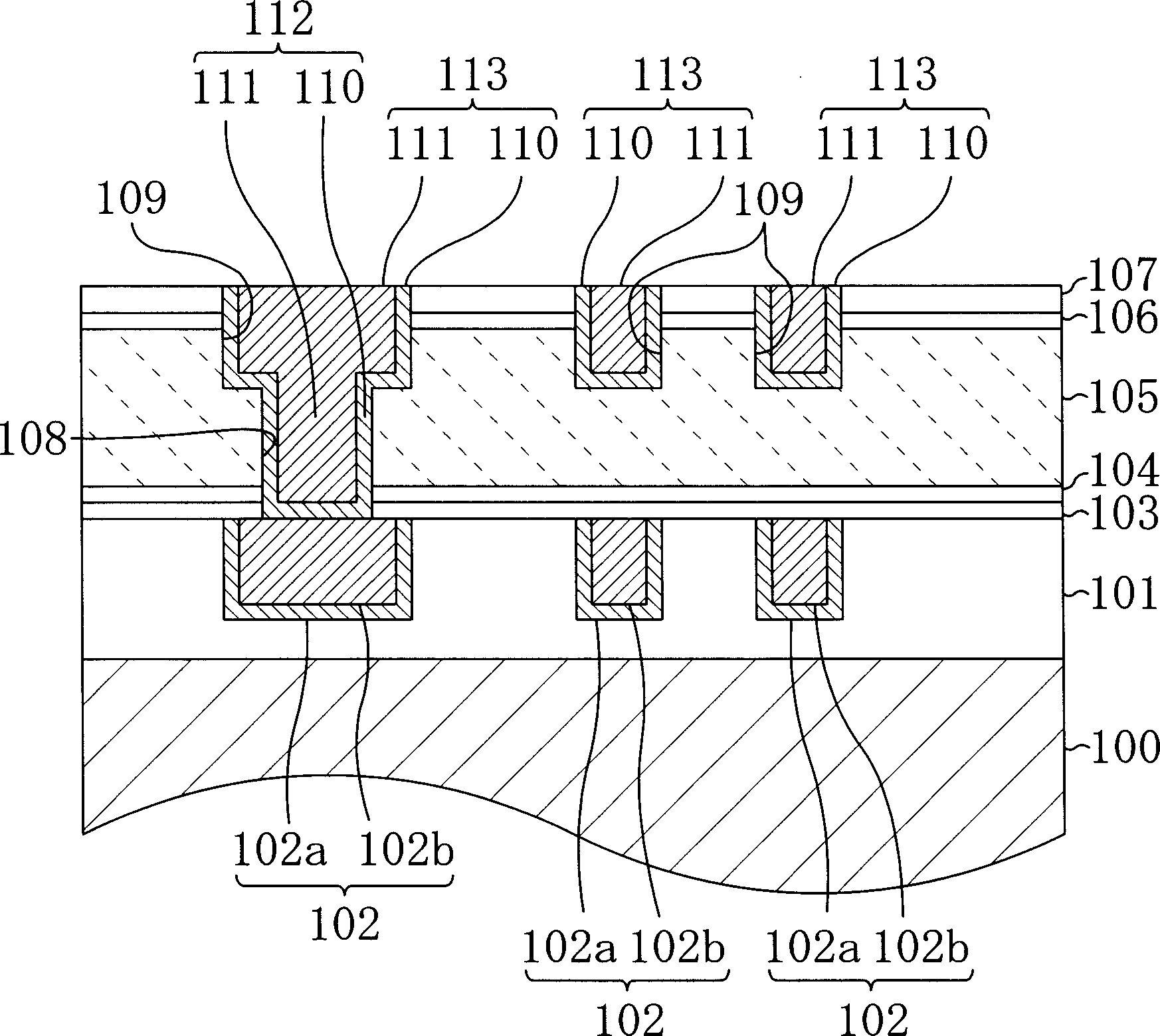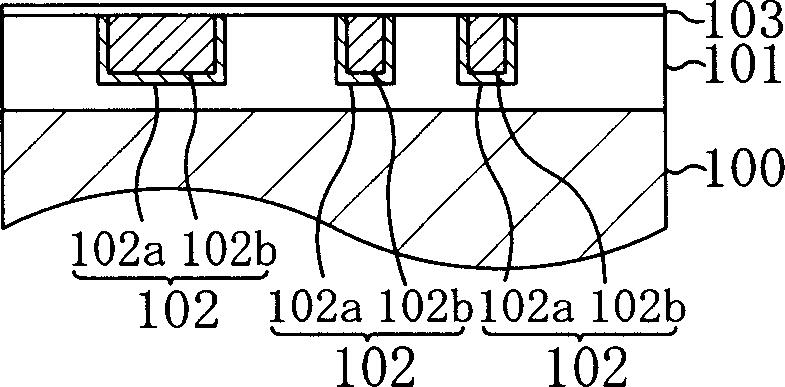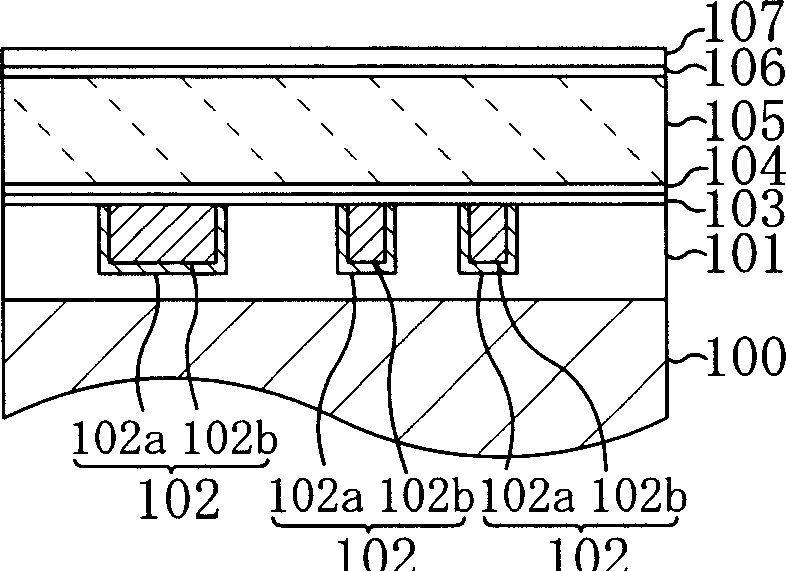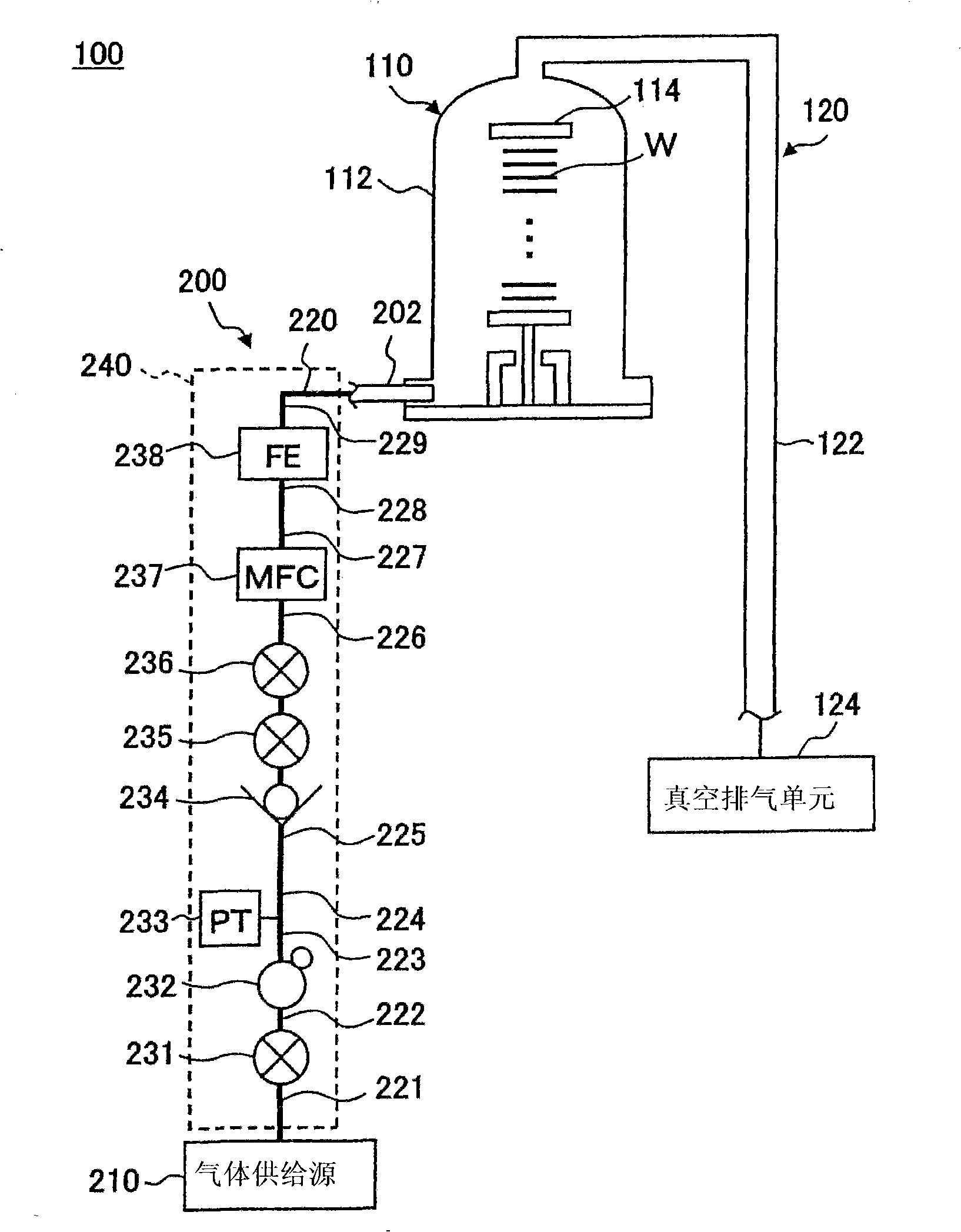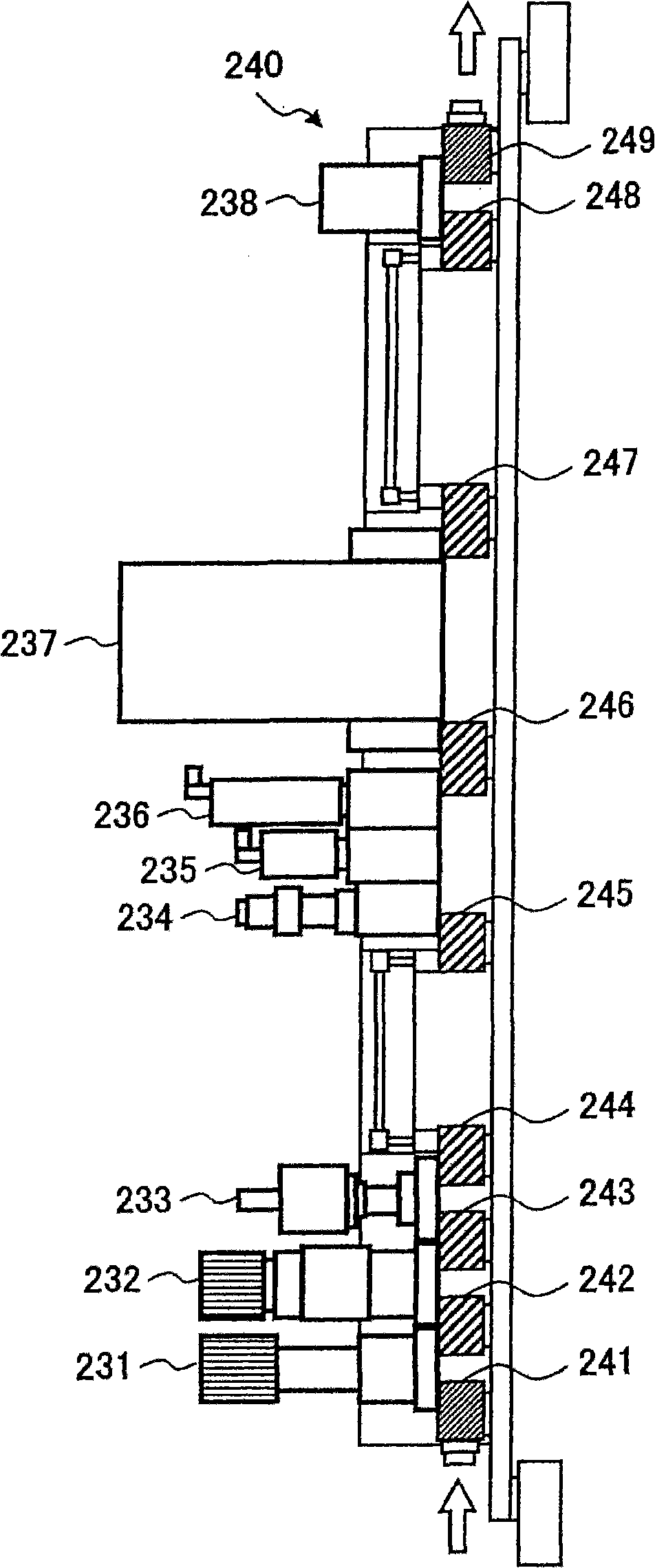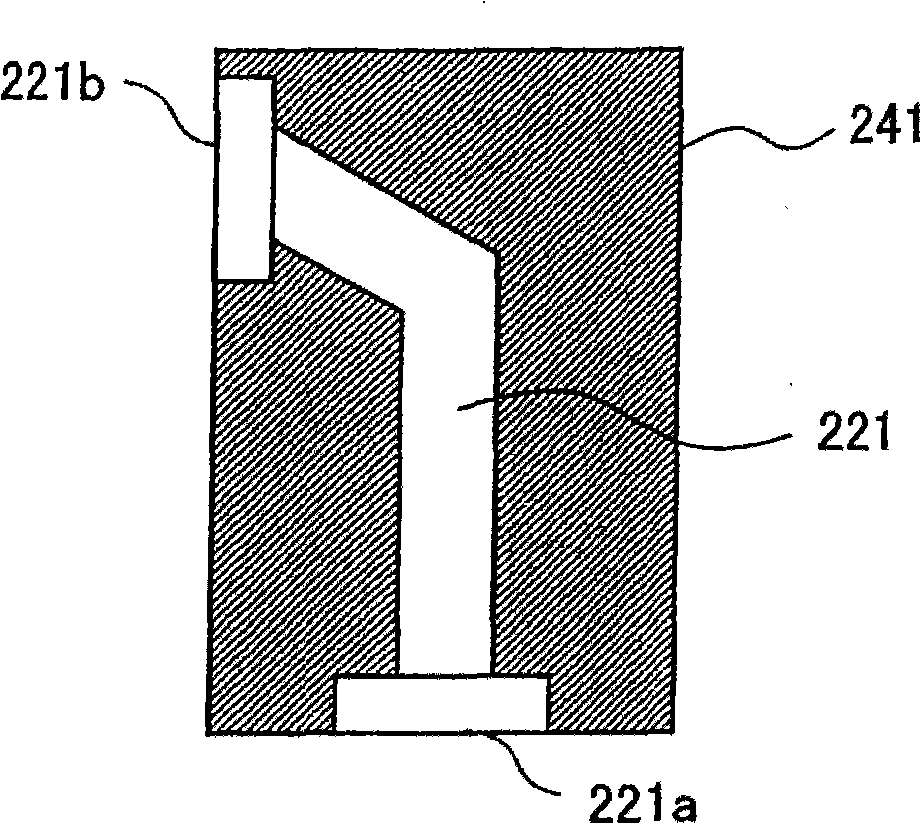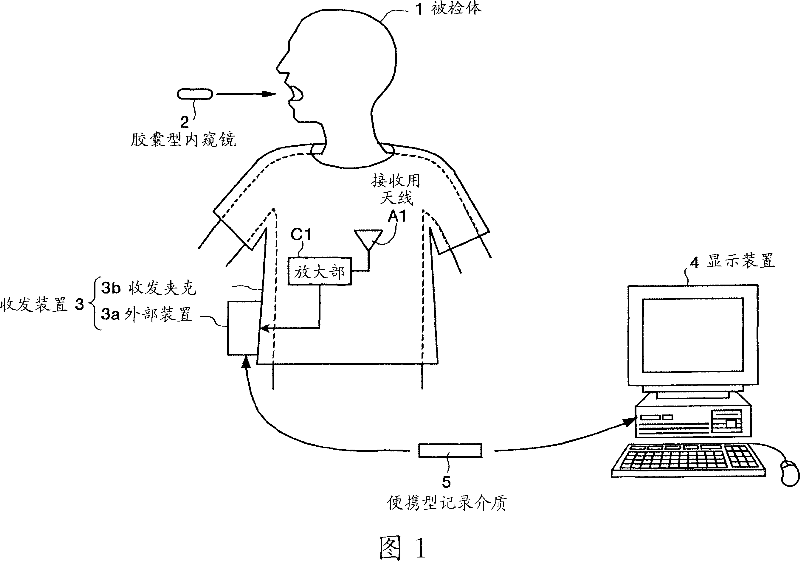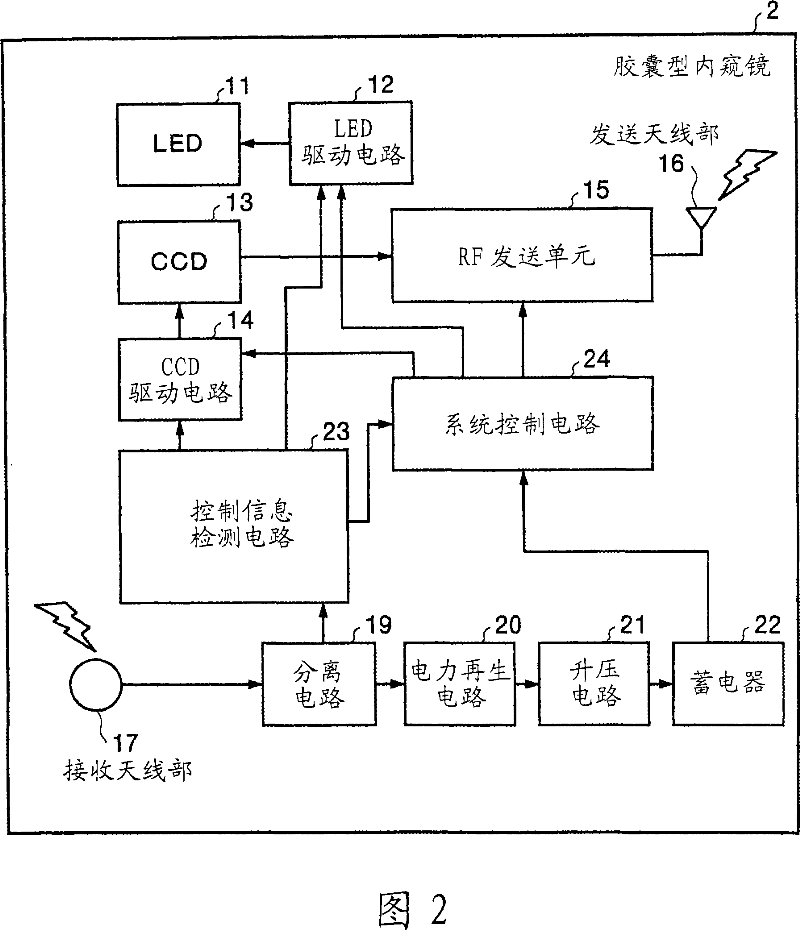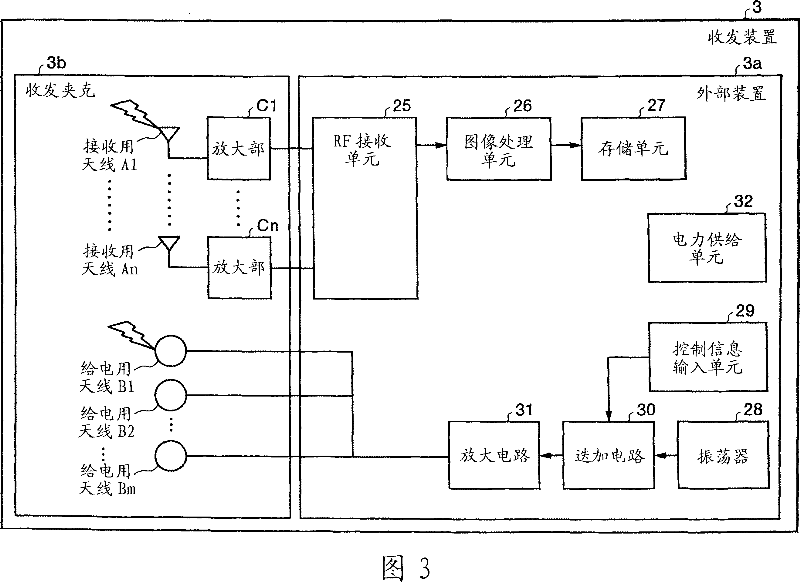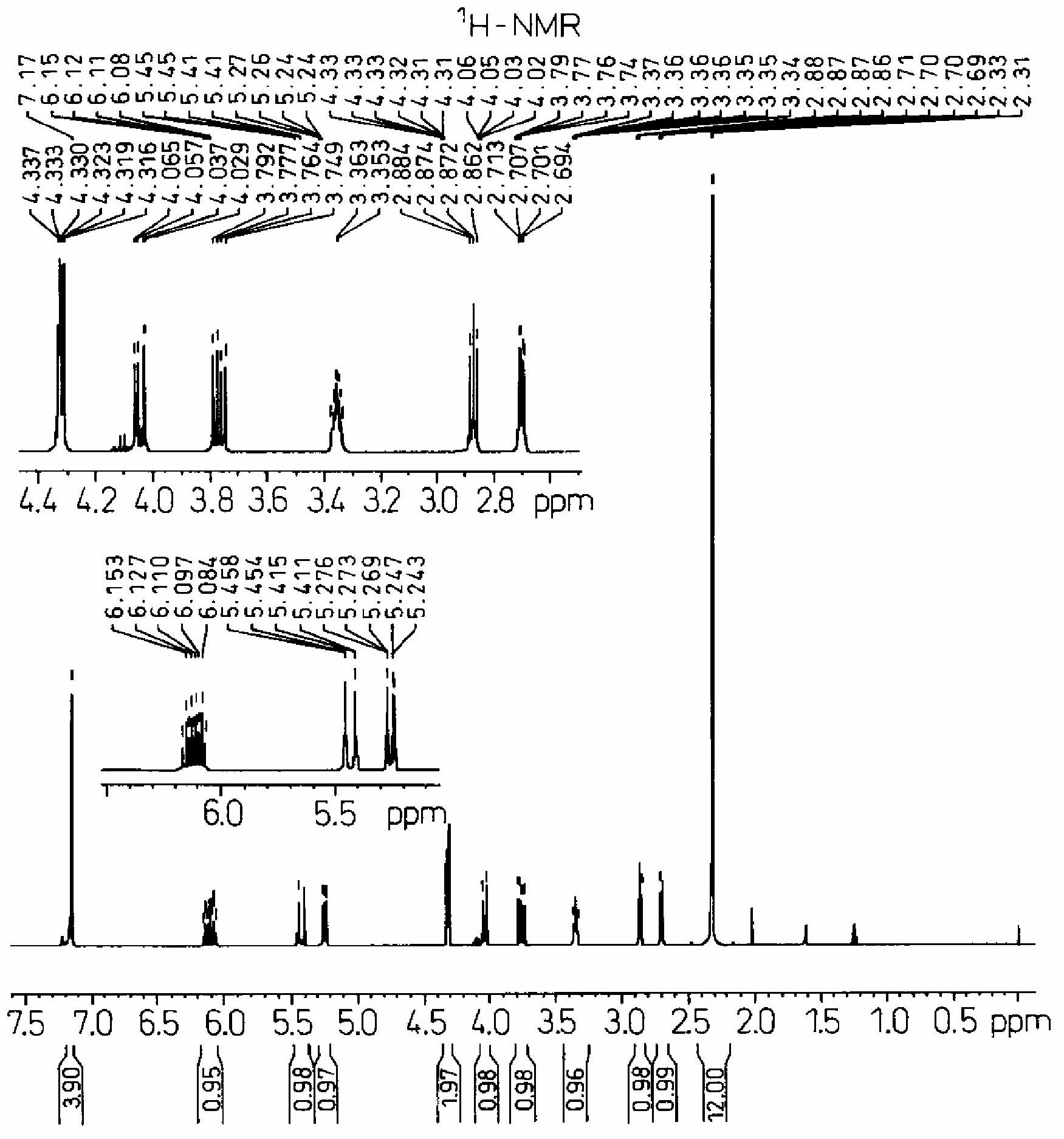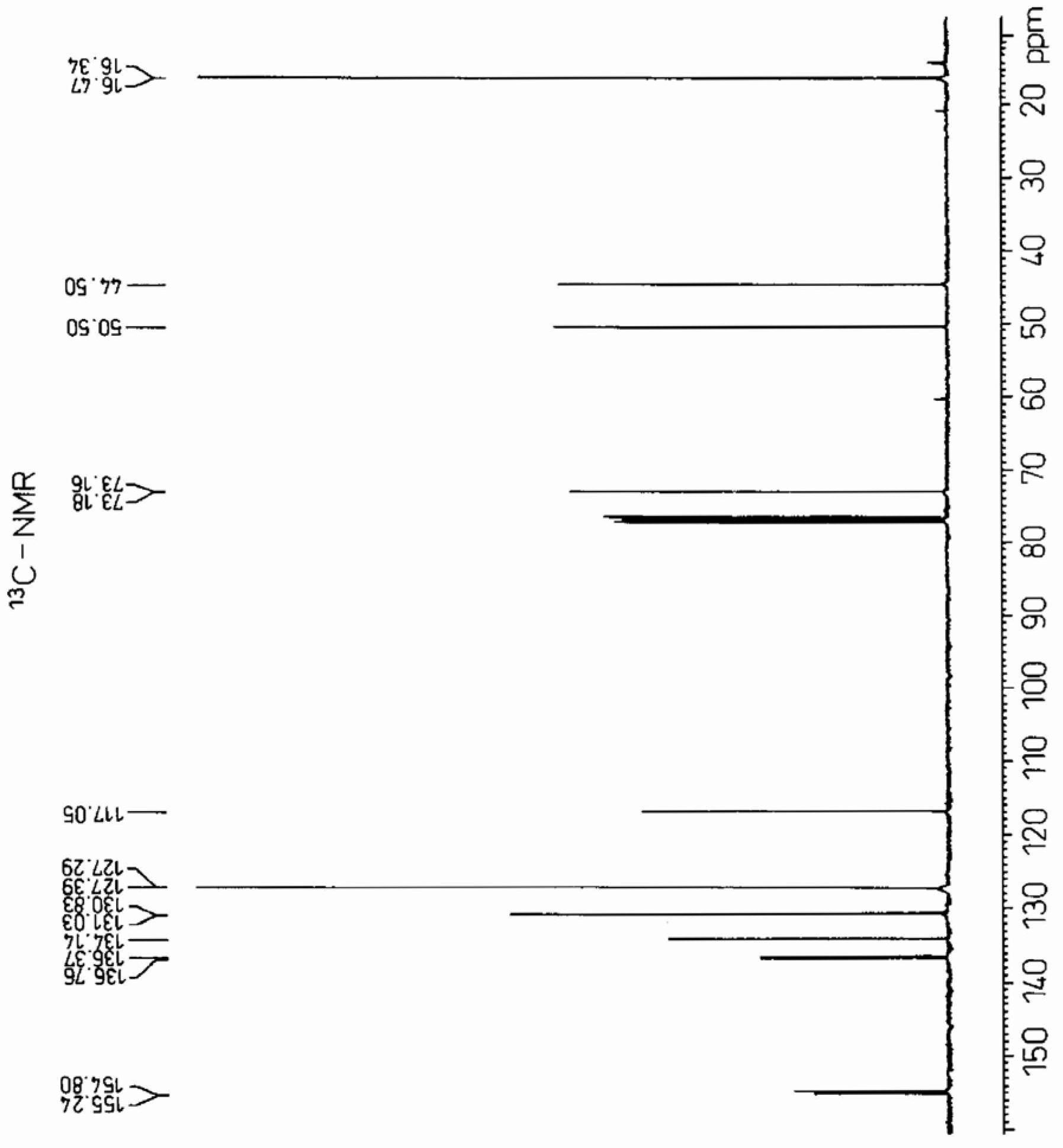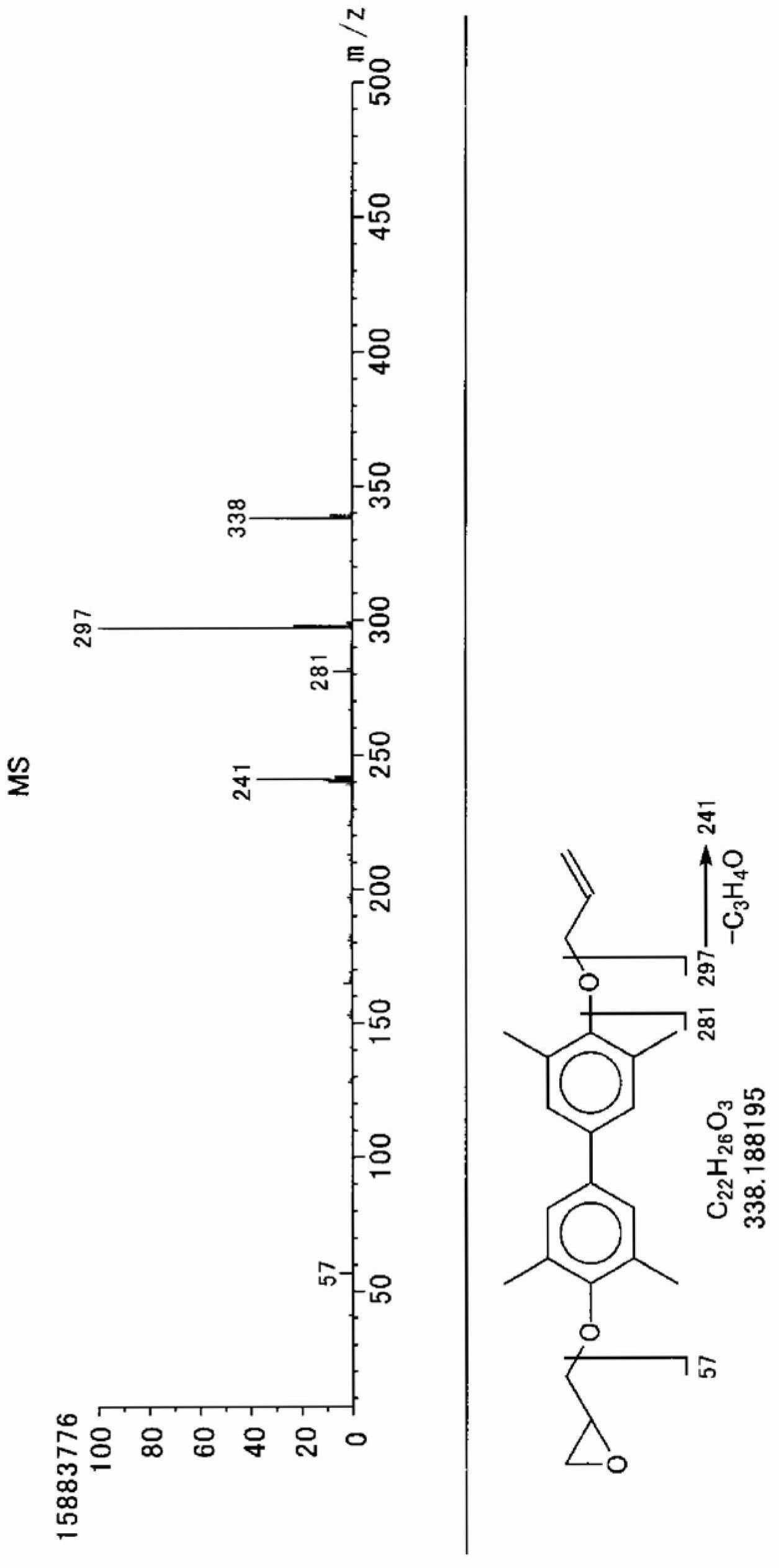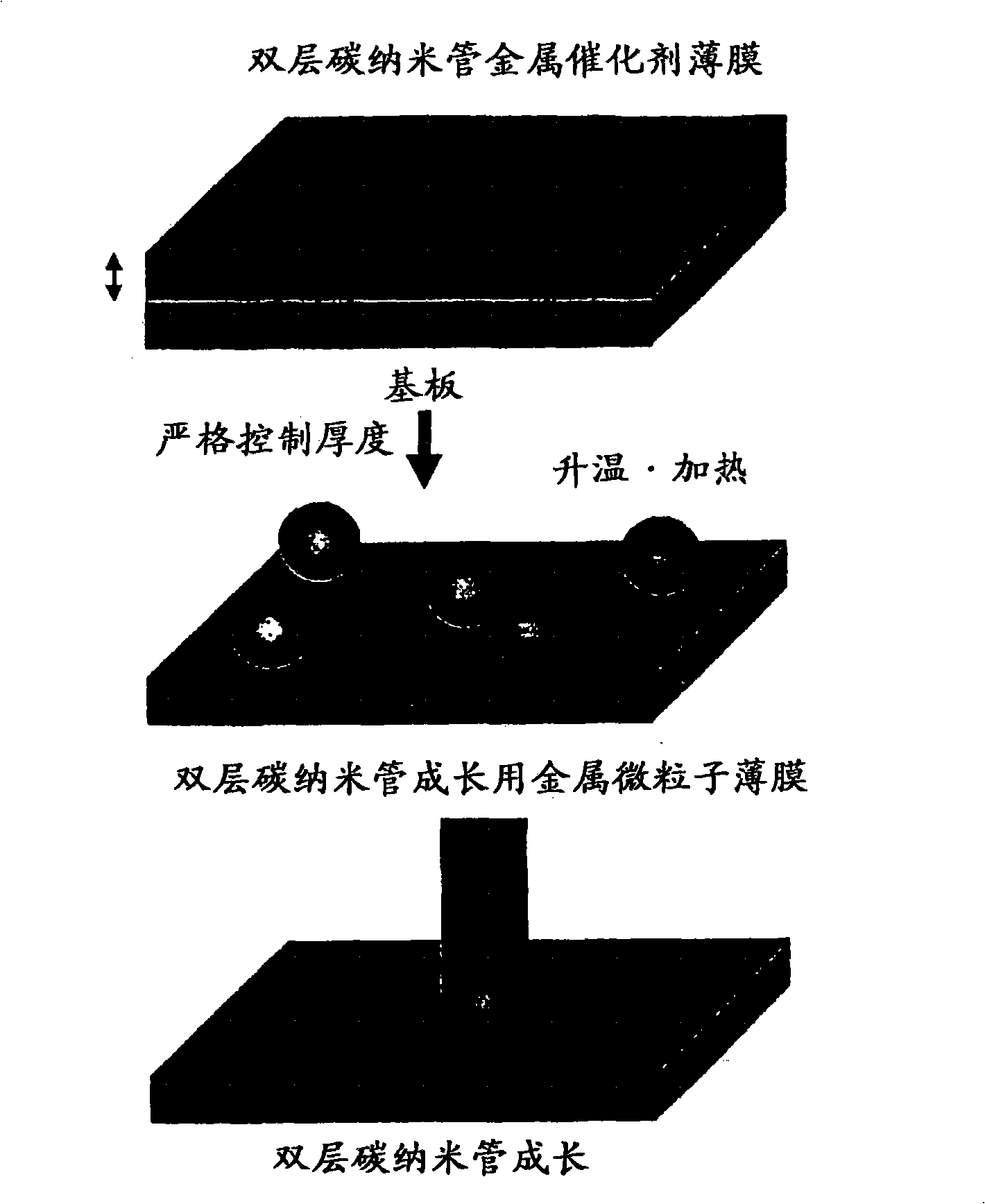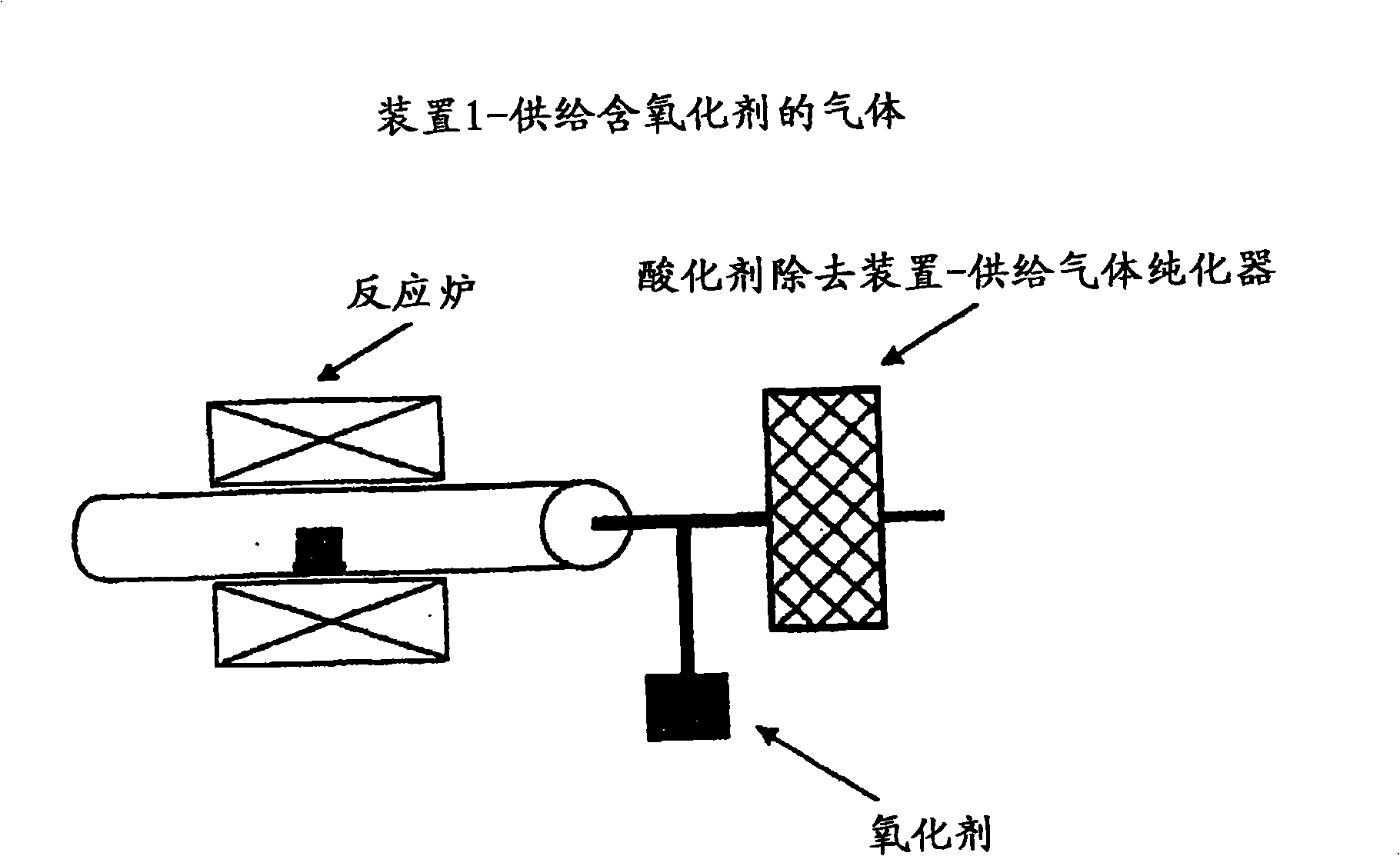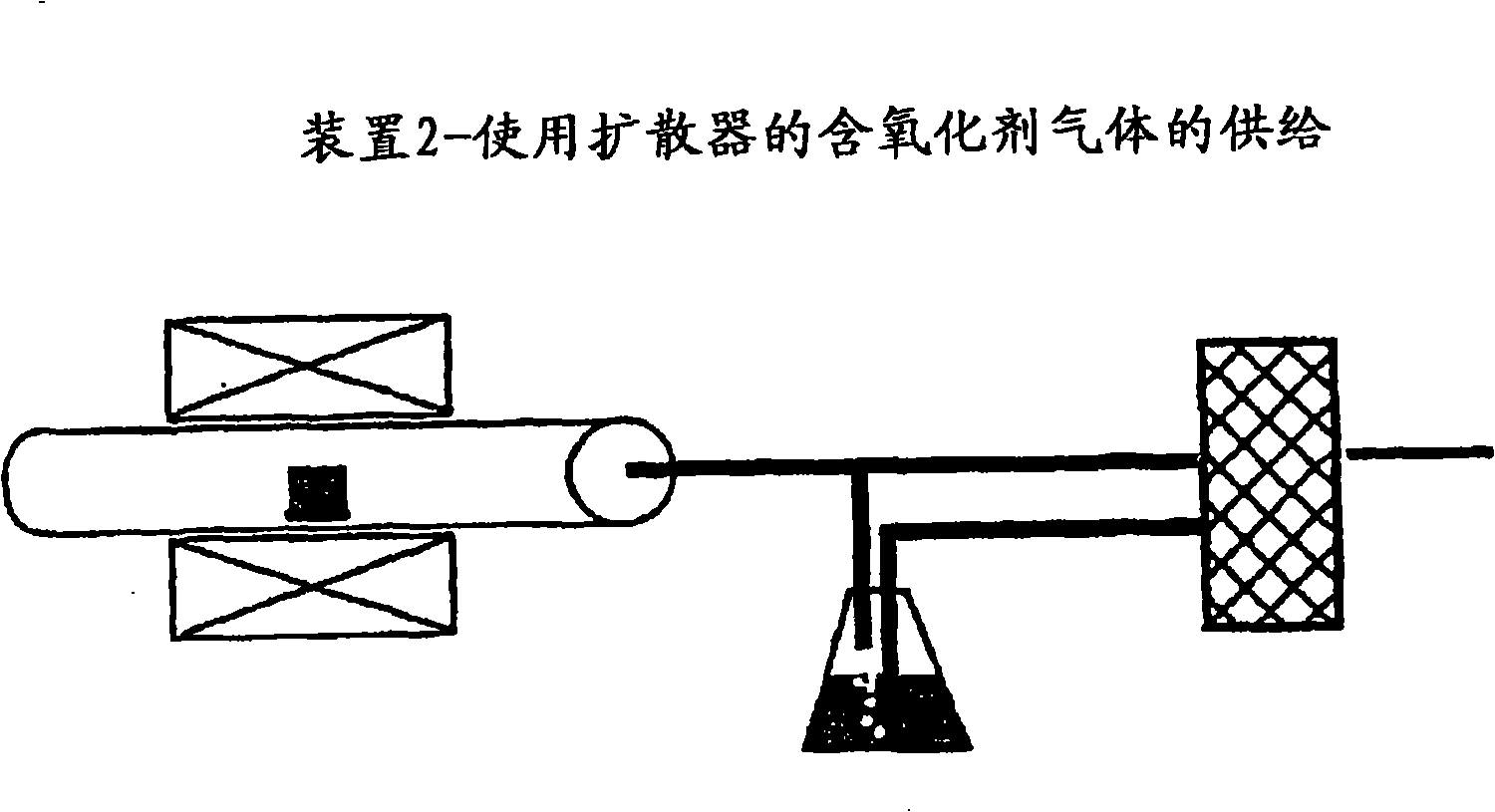Patents
Literature
152results about How to "Suppress mix-in" patented technology
Efficacy Topic
Property
Owner
Technical Advancement
Application Domain
Technology Topic
Technology Field Word
Patent Country/Region
Patent Type
Patent Status
Application Year
Inventor
Carbon nano-tube manufacturing method and carbon nano-tube manufacturing apparatus
InactiveCN101959793AAvoid mixingReduce in quantitySpecific nanostructure formationMaterial nanotechnologyCarbon nanotubeProduct gas
The carbon nano-tube manufacturing method disclosed in the present invention is a carbon nano-tube manufacturing method that uses a carbon source that contains carbon and is pyrolyzed in a heated state, and a catalyst used for generating carbon nano-tubes from said carbon source to synthesize said carbon nano-tubes on a heated support arranged in a reactor. This method is characterized by the following facts: it has a catalyst loading step wherein said catalyst is loaded on said support by circulating the raw material of said catalyst on said support, a synthesis step wherein said carbon nano-tubes are synthesized on said support by circulating said carbon source on said support, and a separation step wherein said carbon nano-tubes are separated from said support by circulating a separation gas flow on said support; said catalyst loading step, synthesis step, and separation step are carried out while switching said catalyst raw material, carbon source, and separation gas flows with said support kept in said heated state.
Owner:HITACHI CHEM CO LTD
Optical film with adhesive and image display device
ActiveCN105885717AInhibition retentionSuppress mix-inFilm/foil adhesivesSynthetic resin layered productsAdhesiveDisplay device
The invention relates to an optical film with an adhesive and an image display device. The invention provides an adhesive sheet which is free from the retention of released gas during the bonding with a front transparent plate and which can suppress the display unevenness of the image display device, and an optical film with the adhesive having the adhesive sheet. The optical film (53) with the adhesive has a front-side adhesive sheet (20) on a side of an optical film (10). The front-side adhesive sheet (20) is a laminated adhesive sheet including a first adhesive layer (21) and a second adhesive layer (22). The first adhesive layer (21) has a storage elastic modulus of 9x103 Pa or less at 150 DEG C, and a ratio G'20 / G'150 of 20 or more, where G'20 is a storage elastic modulus at 20 DEG C and G'150 is a storage elastic modulus at 150 DEG C. The second adhesive layer (22) has a storage elastic modulus of 4x105 Pa or less at 20 DEG C, and a storage elastic modulus of 1x104 Pa or more at 150 DEG C.
Owner:NITTO DENKO CORP
Solid-state imaging element, solid-state imaging device, solid-state imaging apparatus, and method for producing polarizing element
ActiveCN102402106ASuppress mix-inIncrease supplySolid-state devicesPolarising elementsSolid massPolarizer
The present invention relates to: a solid-state imaging element which is capable of providing a solid-state imaging element that comprises a polarizing element which has simple configuration and structure based on wire grid polarizer technology; a solid-state imaging device; an imaging apparatus; and a method for producing a polarizing element. The solid-state imaging device comprises a plurality of solid-state imaging elements (41) each of which comprises a photoelectric conversion element (61) and a polarizing element (70) that is arranged on the light incident side of the photoelectric conversion element (61). The solid-state imaging device comprises two or more kinds of polarizing elements (70) that have different polarization directions, and each polarizing element has a lamination structure wherein a stripe-patterned reflective layer (71), an insulating layer (72) that is formed on the reflective layer (71) and a light absorption layer (73), which is composed of a plurality of pieces (73') that are formed on the insulating layer (72) so as to be separated from each other, are laminated from the photoelectric conversion element side.
Owner:SONY GRP CORP
Film forming method and film forming apparatus
InactiveCN101448971AEfficient formationSuppress mix-inSemiconductor/solid-state device manufacturingChemical vapor deposition coatingEngineeringProduct gas
The present invention provides a film forming method with a step of placing a subject to be processed in a processing container which can be vacuumized by exhaustion, and a film forming step wherein a tungsten film is formed on the surface of the subject by supplying a tungsten containing gas and a reducing gas into the processing container and activating the reducing gas by a heated catalytic body.
Owner:TOKYO ELECTRON LTD
Freezing storage device
ActiveCN101808608AReduce maintenance frequencyInhibition of attachmentDomestic cooling apparatusLighting and heating apparatusEngineeringLiquid gas
A freezing storage device has a container body for storing a low-temperature liquefied gas, a cap for closing a mouth section of the container body and having insertion holes vertically penetrating through the cap, and ampoule receiving devices movably received in the insertion holes in the cap. The ampoule receiving devices each have a support pillar and ampoule receiving sections mounted vertically next to each other on the support pillar.
Owner:NIPPON SANSO CORP
Structure for positioning cowl top for vehicle
ActiveCN103153760AInhibition of entry of foreign matterImprove appearanceWindowsWindscreensEngineeringForce generation
Disclosed is a cowl top positioning structure for determining the relative positions of a windshield (13) and a front cowl top (17) by means of a clip (20). The clip (20) has: a cowl top mounting section (25) to which the front cowl top (17) is mounted; a windshield facing section (26) facing the lower end surface (22) of the windshield (13); and a reaction force generation section (27) for generating a reaction force acting against a pushing force with which the lower end surface (22) of the windshield (13) pushes the windshield facing section (26) toward the front of the vehicle body (11). The relative positions of the windshield (13) and the front cowl top (17) are determined by causing, by means of the reaction force generated by the reaction force generation section (27), the rear end surface (23) of the front cowl top (17) to abut against the lower end surface (22) of the windshield (13).
Owner:HONDA MOTOR CO LTD
Fluorescent substance, process for producing same, and luminescent device including same
ActiveCN102575161AHigh luminous intensityNo meltingSolid-state devicesLuminescent compositionsNitrogenOxygen
Provided are a fluorescent substance represented by the general formula (A1-xRxM2X)m(M2X4)n, a process for producing the fluorescent substance, and a luminescent device including the fluorescent substance. (In the formula, element A is one or more elements selected from Li, Na, Be, Mg, Ca, Sr, Ba, Sc, Y, La, Gd, and Lu; element R is one or more elements selected from Mn, Ce, Pr, Nd, Sm, Eu, Tb, Dy, Ho, Er, Tm, and Yb; element M is one or more elements selected from Si, Ge, Sn, Ti, Hf, Zr, Be, B, Al, Ga, In, Tl, and Zn; element X is oxygen and / or nitrogen; n and m each is an integer of 1 or larger; and x is a real number of 0 < x <1.)
Owner:NAT INST FOR MATERIALS SCI
Method for producing positive electrode for lithium ion battery, positive electrode for lithium ion battery, and lithium ion battery using the positive electrode
InactiveCN102047473ASuppress mix-inExcellent cycle characteristicsCell electrodesSecondary cellsHydrogen halideHydrogen fluoride
A positive electrode for a lithium ion battery, which comprises a positive electrode active material layer containing a lithium transition metal oxide such as lithium nickel oxide, is cleaned with a cleaning liquid that contains an aprotic solvent containing propylene carbonate or the like, and at least one hydrogen halide such as hydrogen fluoride or a fluorine-containing lithium salt such as LiPF6. By cleaning the positive electrode with the cleaning liquid, 300-4000 [mu]g of lithium halide is adhered to the surface of the positive electrode active material, per 1g of the positive electrode active material.
Owner:PANASONIC CORP
Anti-oil leakage device of top bend needle mechanism
InactiveCN101381933ALong-term and smooth maintenance of lifting motion effectSmoothly maintain the effect of lifting movementLubrication/cooling devicesLubrication elementsFree rotationEngineering
The invention relates to an oil leak preventing device for an upwards curved needle mechanism. A columned upwards curved needle guiding body capable of being freely and rotationally inserted and kept on a circular hole formed on an upwards curved needle guiding component is formed with an upper communicating slotted hole and a lower communicating slotted hole orthogonal with a communicating hole for sliding and lifting of an upwards curved needle table, an oil seal ring elastically and glidingly contacting the outer peripheral face of the upwards curved needle table and provided with a labial part for scraping lubricating oil is inserted in the upper communicating slotted hole, and an oil suction ring capable of sucking and keeping the scraped residual lubricating oil is inserted in the lower communicating slotted hole, therefore, the oil leak preventing device can reliably and favorably exert scraping function of the residual lubricating oil, can reliably prevent the scraped residual lubricating oil from being attached to the outer peripheral face of the upwards curved needle table again to disperse upwards, and can stably maintain the oil link preventing function for a long term.
Owner:YAMATO SEWING MASCH MFG CO LTD
Lid opening and closing device
ActiveCN102683246ASuppress mix-inSemiconductor/solid-state device manufacturingConveyor partsEngineeringClosed space
The invention provides a lid opening and closing device, which is an opening and closing device for a FOUP. By enabling the edge part of the substrate takeout opening of the FOUP to makes contact with the edge portion of the conveying gateway which is opened and closed by an opening / closing door, and by arranging an opening of a front surface of a FOUP lid in the lid, the engagement of the lid and a FOUP body is released and the lid is held. The conveying gateway is formed on a partition wall configured to divide a FOUP conveying region and a substrate conveying region. The lid opening and closing device compsies an exhaust port configured to discharge therethrough an atmospheric gas from a closed space formed between the FOUP making contact with the edge portion of the conveying gateway and the opening / closing door; and a purge gas injecting part provided in the opening / closing door, the purge gas injecting part configured to enter the internal space of the lid through the opening of the front surface of the lid, to inject a purge gas into the internal space and to discharge an atmospheric gas existing in the internal space into the closed space through another opening of the lid different from the opening.
Owner:TOKYO ELECTRON LTD
Pyrophosphate compound and method for producing same
InactiveCN102803134ASuppress mix-inIncrease battery capacityCell electrodesFinal product manufactureLithium electrodePyrophosphate
Disclosed are: a positive electrode active material containing a pyrophosphate compound, which can be easily synthesized since mixing of impurities can be easily suppressed, and which is capable of providing high battery capacity; and a lithium ion battery which uses the positive electrode active material. Specifically disclosed is a pyrophosphate compound which is represented by general formula: Li2M1-xFexP2O7 (wherein M represents one or more metals selected from among Mn, Zr, Mg, Co, Ni, V and Cu, and x satisfies 0.3 <= x< = 0.9).
Owner:THE UNIV OF TOKYO
Bypass valve and supercharger
InactiveCN103608561AReduction of suppressed pressure lossImprove operational efficiencyInternal combustion piston enginesEngine manufacturePhysicsEngineering
A bypass valve which, in an open state, diverts a part of compressed air within a scroll section to the upstream side of the scroll section through a bypass conduit, and which, in a closed state, allows the compressed air within the scroll section to flow to the downstream side. The bypass valve is provided with: a valve body which is configured so that the valve body can be fitted in a branch hole for connecting the scroll section and the bypass conduit; and an actuator for moving the valve body between a closed state in which the valve body is fitted in the branch hole and an open state in which the valve body is separated from the branch hole. The valve body is configured so that, in the closed state, the valve body forms an inner surface which extends along the inner wall of the scroll section.
Owner:IHI CORP
Method for manufacturing lithium-contained composite oxide and nonaqueous secondary cell
InactiveCN101707251ASuppress mix-inAvoid decompositionCell electrodesCobalt compounds2-PyrrolidoneWater soluble
The invention provides a method for manufacturing lithium-contained composite oxide represented by a general formula (I) and a nonaqueous secondary cell taking the lithium-contained composite oxide as an anode active substance. LixMyMe1-yO2+Delta (1), wherein M is at least an element selected form Ni, Co and Mn; Me is a metal element different from M; and 0.95<=x<=1.10, 0.1<=y<=1. The compound containing M and Me and the lithium compound are sintered. The sintered substance is cleaned by a cleaning fluid of a water soluble polar non-protonic solvent containing one or two components from N-methyl-2-pyrrolidone (NMP), N,N'-dimethyl-2-imidazolidinone and dimethyl sulfoxide (DMSO).
Owner:PANASONIC CORP
Drinking water supply system
InactiveCN102689934ASuppress mix-inWater/sewage treatment bu osmosis/dialysisWater/sewage treatment by sorptionPotable waterWater quality
The invention discloses a drinking water supply system capable of prohibiting the mixing of microform and rust and providing drinking water of high quality. The drinking water supply system is provided with a water purification component (Sa) purifying water, a pipe (Sc) relatively to a supply destination, a pipeloop (Sb) circulating purified water in a downstream side of the water purification component (Sa), and a water quality detection component detecting water quality of water flowing in the pipeloop (Sb) and a monitoring component keeping water quality constant. The pipeloop (Sb) is preferred to make water circulate between a water purification tank (8a, 8b) for storing water and the destination pipe (Sc). The water quality detection component is preferred to be a conductivity sensor (s2, s5).
Owner:HITACHI LTD
Electronic equipment cooling plant and electronic equipment
InactiveCN1941337ASuppress mix-inImprove cooling effectDomestic cooling apparatusDigital data processing detailsEngineeringElectronic equipment
A cooling device contained in a casing unit of a computer includes a compressor, a condenser, an evaporator, a capillary tube functioning as expanding means, and a blower fan. These components constituting the cooling device are connected to one another by tubular pipes. Moreover, in the present invention, the compressor, the condenser, and the blower fan are placed at two-dimensionally different positions, and longitudinal directions of the condenser and the compressor are placed in an L shape in a vicinity of the blower fan. With this configuration, a two-dimensional size of the cooling device can be made compact, so that the cooling device would not limit a layout of other components contained in the casing unit.
Owner:SANYO ELECTRIC CO LTD
Method for manufacturing laminated film
ActiveCN104272149ASuppress mix-inLayered product treatmentSynthetic resin layered productsAdhesiveSurface roughness
A method provided with, in this order, an adhesive application step for applying an active-energy-ray curable adhesive to one or both surfaces of at least one film of a plurality of films, a bonding step for bonding together the plurality of films by inserting the films between a pair of bonding rolls rotating in a conveyance direction in a state in which adjacent films are laminated so that the adhesive is interposed therebetween, and an active-energy-ray irradiation step for curing the adhesive by irradiating active energy rays to the plurality of films that have been bonded together, the surface roughness of the surface to which the adhesive was not applied in the adhesive application step from among the plurality of films, which is the surface contacting the adhesive in the bonding step, being 200 nm or less.
Owner:SUMITOMO CHEM CO LTD
Fuel cell system
InactiveCN101569046ASuppress mix-inInhibit deteriorationWater management in fuel cellsSolid electrolyte fuel cellsElectricityFuel cells
A fuel cell system comprises a fuel cell (1) for generating electricity by using fuel gas and oxidant gas, a hydrogen generating device (2) including a reformer (71) for generating the fuel gas containing hydrogen from a raw material and water vapor, a cooling water passage (4) through which cooling water for cooling the fuel cell (1) flows, a cooling water tank (5) for storing the cooling water,a recovered water tank (7) for storing water recovered from the fuel gas and the oxidant gas discharged from the fuel cell (1), a first water passage (8) connecting the recovered water tank (7) and the reformer (71), a purifier (10) provided in the first water passage (8), a second water passage (11) diverging from the first water passage (8) on the downstream side of the purifier (10) and connecting with the cooling water tank (5), and a first pump (9) for pumping the water from the recovered water tank (7) to the first water passage (8).
Owner:PANASONIC CORP
Polarizing plate with adhesive and image display device
ActiveCN108169833ANot prone to fadingInhibit transferNon-macromolecular adhesive additivesFilm/foil adhesivesPolyvinyl alcoholAdhesive
The invention relates to a polarizing plate with an adhesive and an image display device. The polarizing plate (1) with the adhesive comprises a polarizer (11) comprising an iodine-containing polyvinyl alcohol film, a transparent protective film (15) attached to the first main surface of the polarizer and a front side adhesive sheet (20) which is arranged in a manner of being in contact with a second main surface of the polarizer. The front-side adhesive sheet is a laminated adhesive sheet obtained by laminating at least two layers of adhesive layers, and is provided with a first adhesive layer (21) which is arranged in a manner of being in contact with the polarizer and a second adhesive layer (22) disposed so as to be spaced apart from the polarizer. Preferably, the energy storage elastic modulus G '80 at 80 DEG c of the front side adhesive sheet is 1 * 105 pa or less, and the humidity of the first adhesive layer is preferably 150 g / m2 .24 hours or less.
Owner:NITTO DENKO CORP
Hermetically sealed battery and method for manufacturing the same
InactiveCN102203983AEnsure joint strengthSuppress mix-inFinal product manufactureWound/folded electrode electrodesEngineeringLaser
Disclosed is a hermetically sealed battery comprising an electrode group (4) which is formed by coiling or laminating a positive electrode plate (1) and a negative electrode plate (2) with a separator (3) interposed therebetween and which is accommodated in a battery casing (5), the battery casing (5) including an opening which is sealed with a sealing plate (10). A lead (11) which leads out from either of the electrode plates in the electrode group (4) is laser-welded to the sealing plate (10), and a weld (14) between the lead (11) and the sealing plate (10) is formed as a line extending across at least the end of the lead (11).
Owner:PANASONIC CORP
Soi wafer manufacturing method
ActiveCN101681805ASuppress mix-inEasy to removeSolid-state devicesSemiconductor/solid-state device manufacturingDopantSingle crystal
An SOI wafer manufacturing method includes a step of preparing a base wafer, which is composed of a p+ silicon single crystal wafer, and a bond wafer, which is composed of a silicon single crystal wafer containing a dopant at a concentration lower than that in the base wafer; a step of forming a silicon oxide film over the entire surface of the base wafer by thermal oxidation; a step of bonding the bond wafer and the base wafer through a silicon oxide film; and a step of forming an SOI layer by thinning the bond wafer. The SOI wafer manufacturing method is characterized in having a step of forming a CVD insulating film on a surface on the opposite side to the bonding surface of the base wafer, prior to the base wafer thermal oxidation step. Thus, the p-type dopant contained in the base wafer is easily prevented from diffusing outward from the surface opposite to the bonding surface of the base wafer due to high-temperature heat treatment, mixing of the p-type dopant in the SOI layer issuppressed and warping can be reduced.
Owner:SHIN-ETSU HANDOTAI CO LTD
Blowby gas ventilator and crankcase emission control system of internal combustion engine
InactiveCN101046169ASimple structureLow cost limitInternal combustion piston enginesCrankcase ventillationControl systemFresh air
In an internal combustion engine, a part of fresh air extracted from an induction system is heated and introduced into a crank chamber to increase a temperatu re of an atmosphere in the crank chamber to promote atomization of a blowby gas to prevent water in the blowby gas from mixing into lubricating oil as much as possible to suppress deterioration of lubricating oil. A part of a blowby gas recirculating apparatus is defined by an outer space of a double-walled structure of a double-walled exhaust ga s purification catalyst or exhaust pipe provided between an internal combustion engine and an exhaust muffler. Thus, a blowby gas can be effectively heated with a high-temperatur e exhaust gas, the structure can be simplified, and a cost can be lowered.
Owner:HONDA MOTOR CO LTD
Azeotropic distillation method for water-containing acetic acid containing aromatic hydrocarbon
InactiveCN101445442AStable recyclingInhibition lossOrganic compound preparationDistillation purification/separationHigh concentrationConcentration ratio
In a recovery system for preparing the acetic acid solvent in aromatic dicarboxylic acid, the unreacted dialkyl benzene is stably recovered from an acid dehydrate tower for azeotropic distillation with high concentration, and the reutilization is carried out. The invention adopts the method that during the process of recovering the acetic acid for preparing the aromatic carboxylic acid, the unreacted dialkyl benzene is recovered by an azeotropic distillation tower taking the isobutyl acetate as an entrainer during the dehydration of the acetic acid, wherein, the alkyl benzene-containing fraction is delivered to a distillate storage tank in the azeotropic area of the azeotropic distillation tower at the temperature of ranging from 94-100 DEG C, after the aqueous phase is separated from thebottom part of the distillate storage tank, the organic phase fraction at the upper part of the distillate storage tank is circulated to the azeotropic area, the organic phase fraction is accumulatedin the azeotropic distillation tower until the concentration ratio of the alkyl benzene and the entrainer reaches the target coverage with about 0.5 weight ratio to about 6 weight ratio, and the accumulated organic-phase fraction is intermittently recovered from the distillate storage tank.
Owner:HITACHI LTD
Rotary atomizing head for electrostatic coating machine
ActiveCN102712006APrecise positioningResidue reductionMovable spraying apparatusSpray discharge apparatusElectrostatic coatingEngineering
A mechanism component (4) which can be attached to and removed from an atomizing head body (2) is adapted to be easily positioned and to be reliably affixed to the atomizing head body (2). The mechanism component (4) is provided with a side wall (14) which continues in the circumferential direction, legs (16) which are provided with claws (16a), and a circumferential ridge (20) which is provided on the inner side of the legs (16) in the radial direction. The circumferential ridge (20) is seated on the outer peripheral section of a circumferential base (22) of the atomizing head body (2) and makes contact with the outer peripheral surface of the circumferential base (22). The peripheral wall (8) of the center recess (6) of the atomizing head body (2) comprises a tilted wall. The tilt of the outer peripheral surface (14a) of the mechanism component (4) is complementary to that of the peripheral wall (8). The entire region of the outer peripheral surface (14a) of the mechanism component (4) is substantially in contact with the peripheral wall (8) of the center recess (6).
Owner:RANSBURG IND FINISHING
Pressure casting injector
The invention provides a pressure casting injector, wherein the injector can prevent initial solidification sheet from mixing into casting, and can prevent casting lap from being generated; the pressure casting injector (1) comprises the following members: a sleeve (30) supplied to molten metal (M1); a first plug (41a) with a gap between inner surface of the sleeve (30) making contacts with the molten metal (M)1; a second plug (41b) sliding with the first plug (41a) and arranged in a rear direction closer to the extrusion direction of the molten metal (M1) when compared with the first plug. The sleeve (30) comprises a discharge port (32) used for discharging solidification sheets (M2a), captured between eh first and second plugs (41a, 41b), to the outer side; the second plug (41b) slides to the discharge port (32), thus discharging the solidification sheet (M2a) outside the sleeve (30) through the discharge port (32a).
Owner:TOYOTA JIDOSHA KK
Hydrocarbon compound synthesis reaction system and finely divided particle removal method
InactiveCN101970606ASuppress mix-inLight in massLiquid hydrocarbon mixture productionMembrane filtersForming gasHydrogen
Owner:NIPPON STEEL & SUMIKIN ENG CO LTD +5
Electronic device and its manufacturing method
InactiveCN1698194ASuppress mix-inPrevent sticky effectsSemiconductor/solid-state device manufacturingResistNitrogen
Owner:PANASONIC CORP +1
Gas supply system and integrated unit for semiconductor manufacturing device
The invention provides a gas supply system of a semiconductor manufacturing device and a gas supply integration unit. The gas supply system is used for supplying predetermined gas from a gas supply source to a processing part of a semiconductor manufacturing device. The gas supply system is provided with a gas supply flow path connected to the gas supply source and the processing part. The gas supply flow path comprises a plurality of fluid control devices (hand valve, reducing valve, manometer, check valve, first stop valve, second stop valve, quality flow controller and gas filter) and flow path components connected between the fluid control devices and forming gas flow paths. The flow path components are made of carbon material. Thereby, when corrosive gas is supplied to the processing part, mixing of metallic pollutants relative to a substrate to be processed may be inhibited.
Owner:TOKYO ELECTRON LTD
Wireless tested body inner information acquiring system
InactiveCN101043839AReliably obtainedInhibition attenuationSurgeryEndoscopesUltrasound attenuationWireless transmission
There are included a capsule-like endoscope (2) for capturing intracoelomic images; and a transmitter / receiver apparatus (3) having a wireless transmission / reception function for the capsule-like endoscope (2). There are further included a display device (4) for displaying, based on data received by the transmitter / receiver apparatus (3), intracoelomic images; and a mobile recording medium (5) for delivering data between the transmitter / receiver apparatus (3) and the display device (4). A transmitter / receiver jacket (3b) constituting the transmitter / receiver apparatus (3) includes a reception antenna (A1) for receiving radio signals transmitted from the capsule-like endoscope (2); and an amplifier (C1) provided in the vicinity of the reception antenna (A1). The provision of the amplifier (C1) in the vicinity of the reception antenna (A1) can suppress the attenuation of received radio signals and also suppress the admixture of noise signals.
Owner:OLYMPUS CORP
Process for production of glycidyl ether compounds, and monoallyl monoglycidyl ether compound
InactiveCN102666518AInhibition of impuritiesEasy operation and safetyOrganic chemistryMetal/metal-oxides/metal-hydroxide catalystsDouble bondEther
Provided are: a process by which a compound having an allyl ether linkage can be efficiently converted into the corresponding glycidyl ether compound under mild conditions using hydrogen peroxide as the oxidizing agent; and a novel monoallyl monoglycidyl ether compound having a biphenyl skeleton. Specifically provided are: a process for the production of glycidyl ether compounds which comprises reacting a compound having an allyl ether linkage with hydrogen peroxide to epoxidize the carbon-carbon double bond of the allyl group and thus form the corresponding glycidyl ether compound, characterized by using, as the reaction catalyst, a tungsten compound, a tertiary amine, and phenylphosphonic acid; and a monoallyl monoglycidyl ether compound having a biphenyl skeleton. The monoallyl monoglycidyl ether compound can be produced by the process.
Owner:SHOWA DENKO KK +1
Double-walled carbon nanotube, bulk structure of the same, method and apparatus for producing them
ActiveCN101312907ASuppress mix-inHigh purityMaterial nanotechnologyFuel and primary cellsManufacturing technologyMetal catalyst
Disclosed is an aligned double-walled carbon nanotube bulk structure which comprises multiple aligned double-walled carbon nanotubes and has a height of 0.1 [mu]m or more. In the bulk structure, the double-walled carbon nanotubes can be produced by chemical vapor deposition (CVD) in the presence of a metal catalyst having a controlled particle size and a controlled thickness, preferably in the presence of water. It becomes possible to provide a double-walled carbon nanotube which is free from the catalyst contamination, has a high purity, is easy to control the alignment or growth, can be formed through the formation of a bulk structure, and has an excellent electron-emitting property (particularly, a bulk structure of aligned, double-walled carbon nanotubes) and also provide a technique for production of the carbon nanotube.
Owner:NAT INST OF ADVANCED IND SCI & TECH
Features
- R&D
- Intellectual Property
- Life Sciences
- Materials
- Tech Scout
Why Patsnap Eureka
- Unparalleled Data Quality
- Higher Quality Content
- 60% Fewer Hallucinations
Social media
Patsnap Eureka Blog
Learn More Browse by: Latest US Patents, China's latest patents, Technical Efficacy Thesaurus, Application Domain, Technology Topic, Popular Technical Reports.
© 2025 PatSnap. All rights reserved.Legal|Privacy policy|Modern Slavery Act Transparency Statement|Sitemap|About US| Contact US: help@patsnap.com
